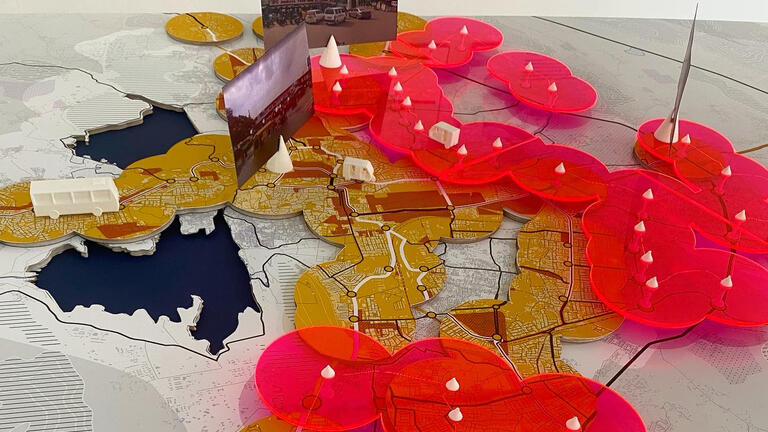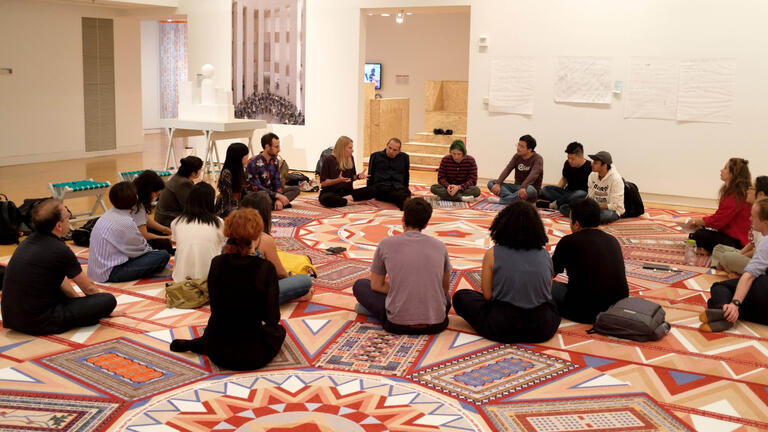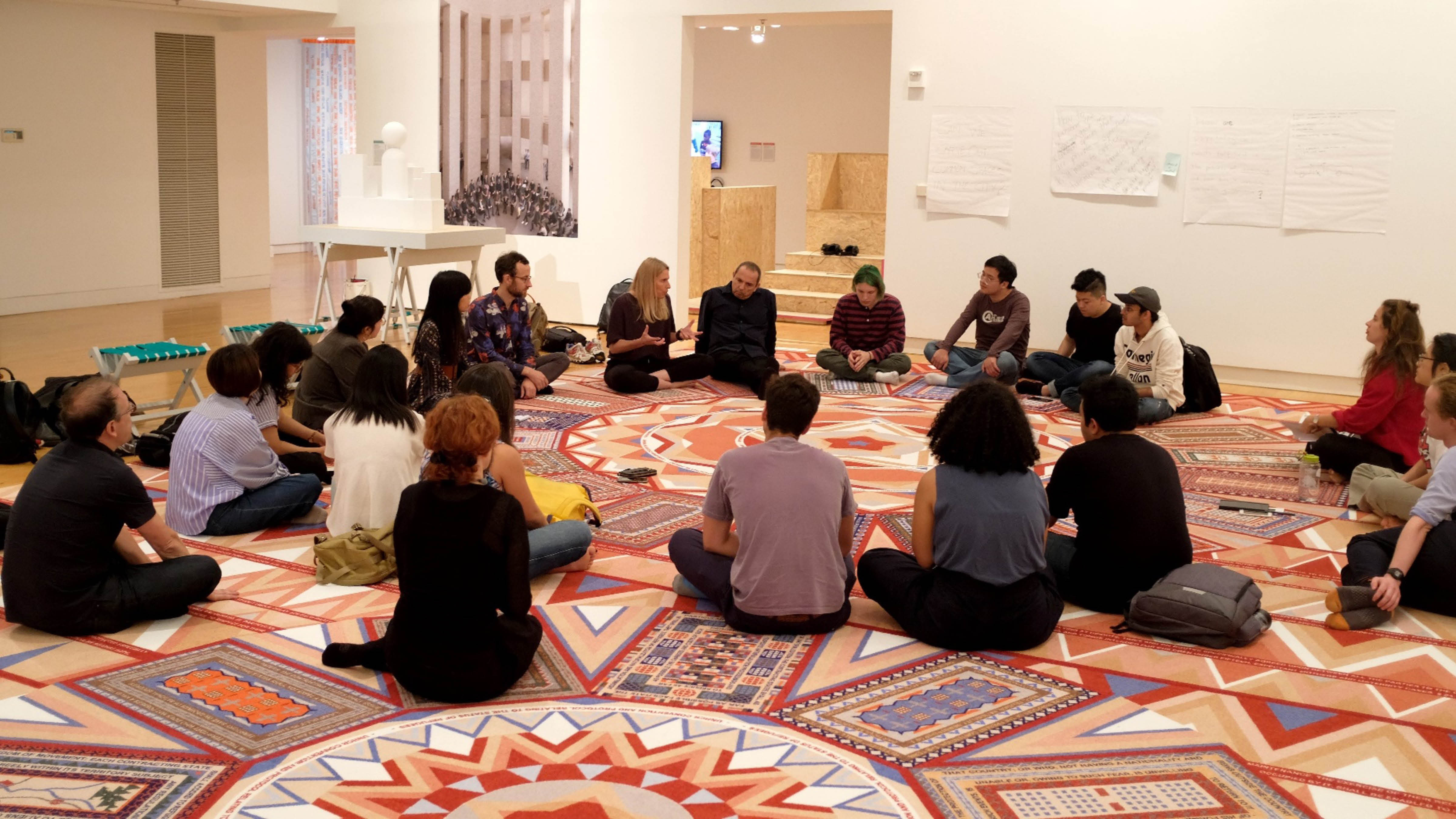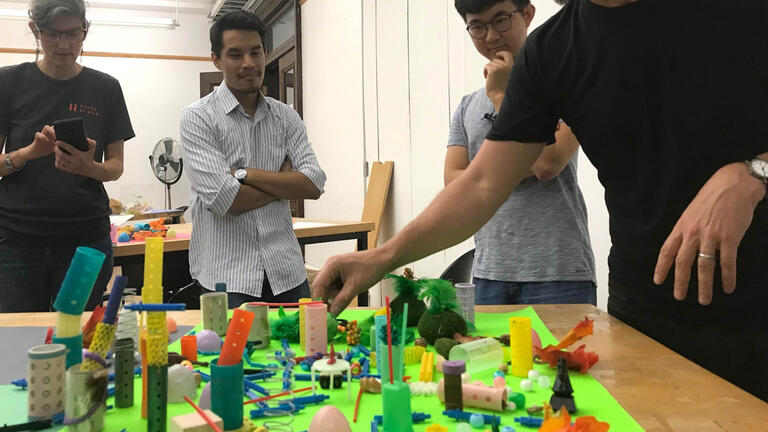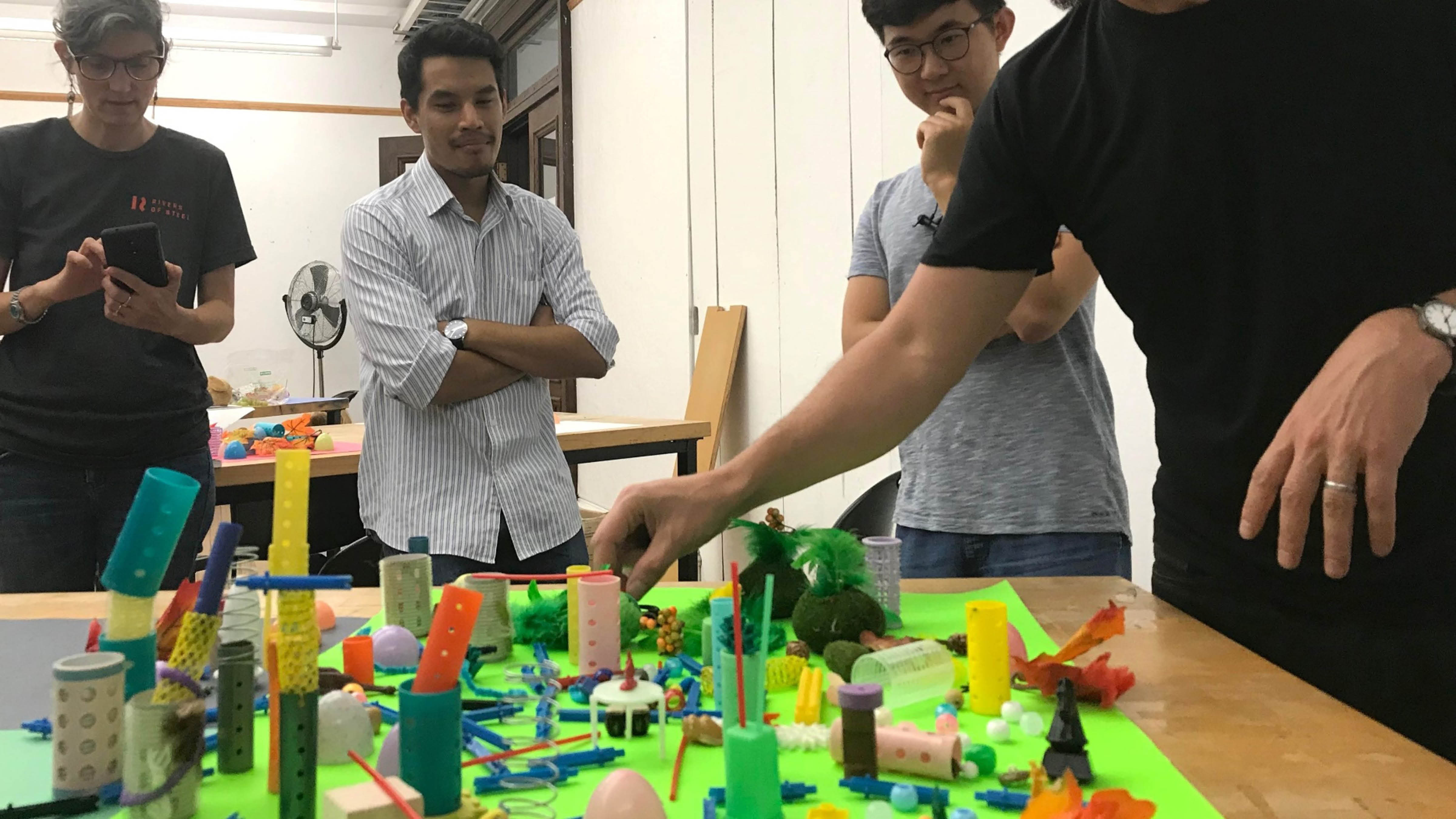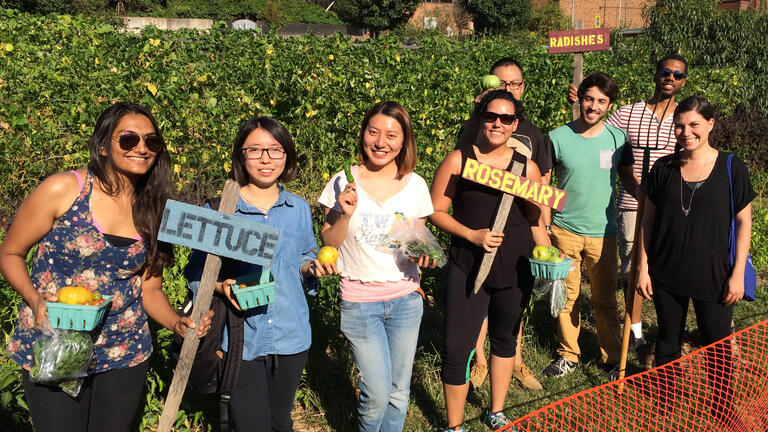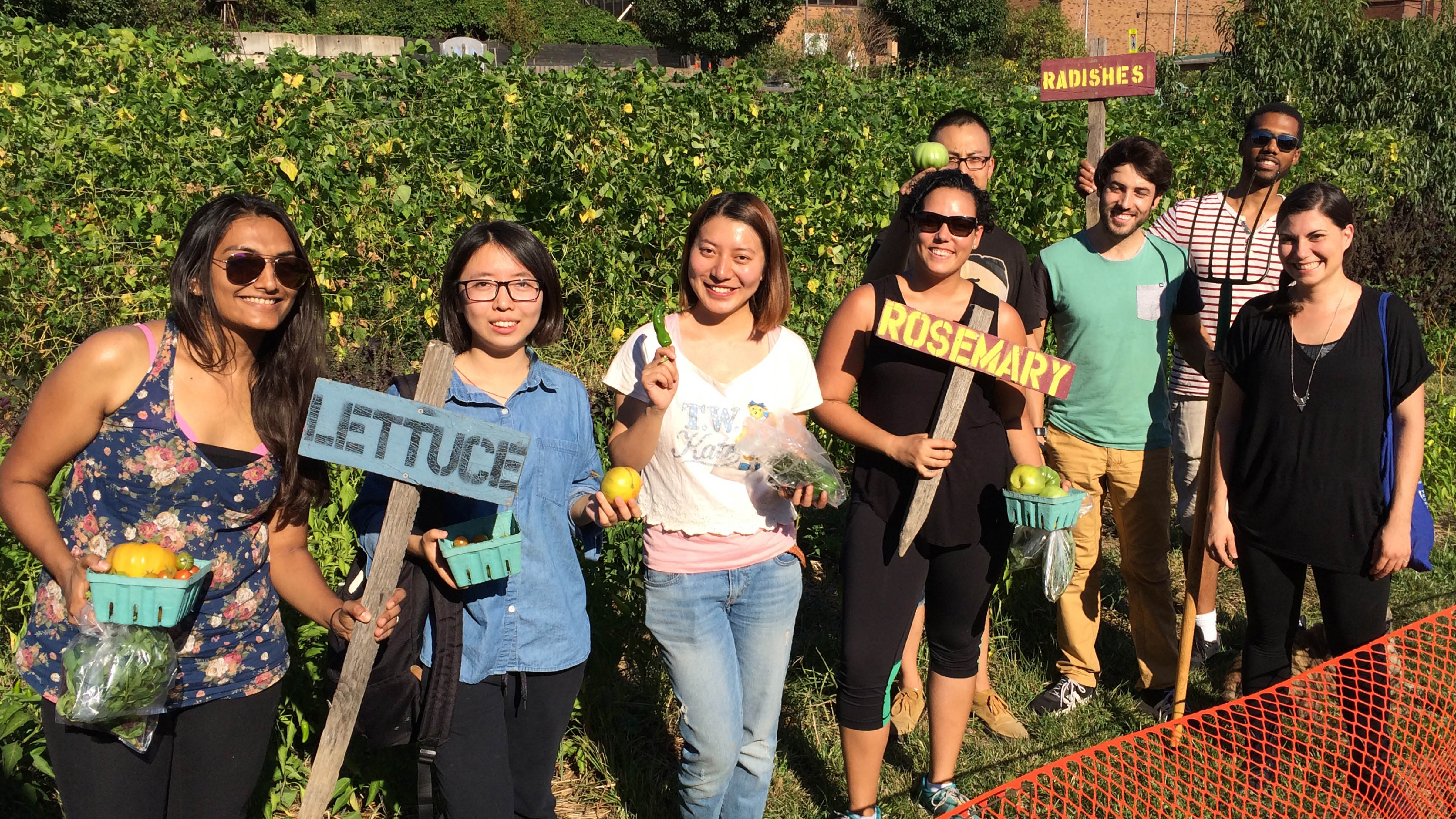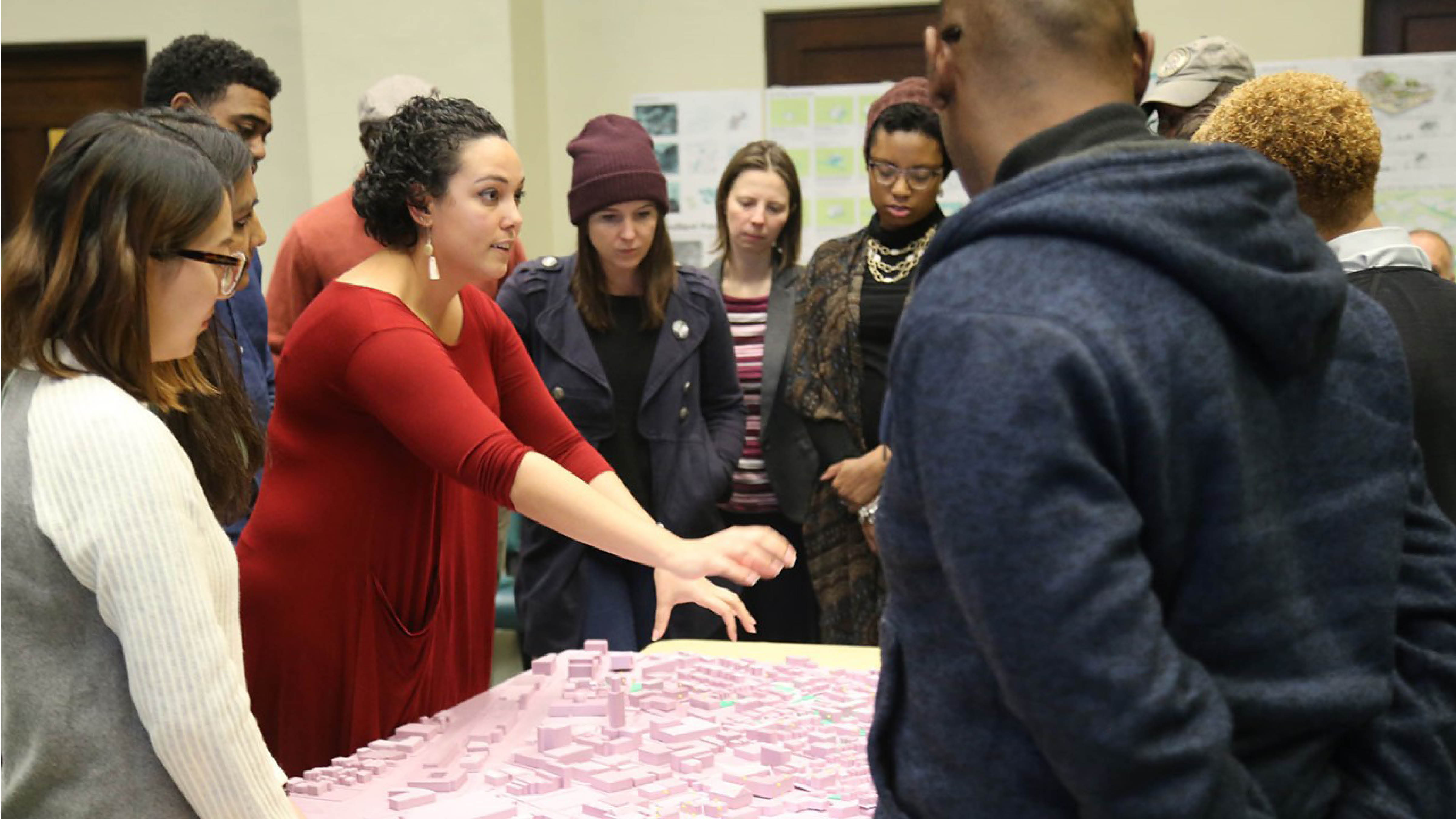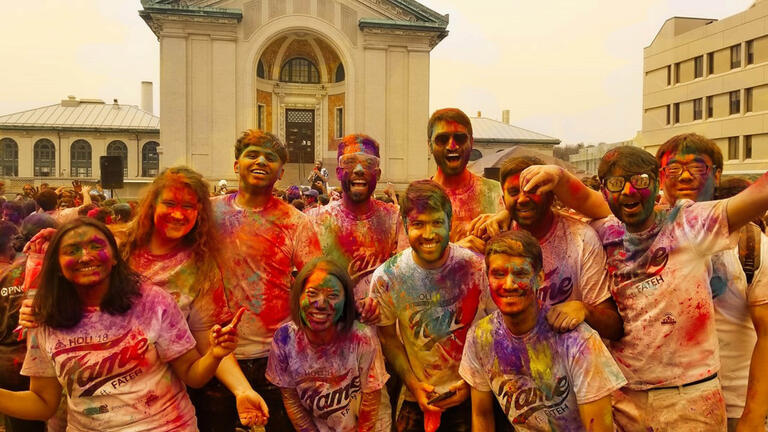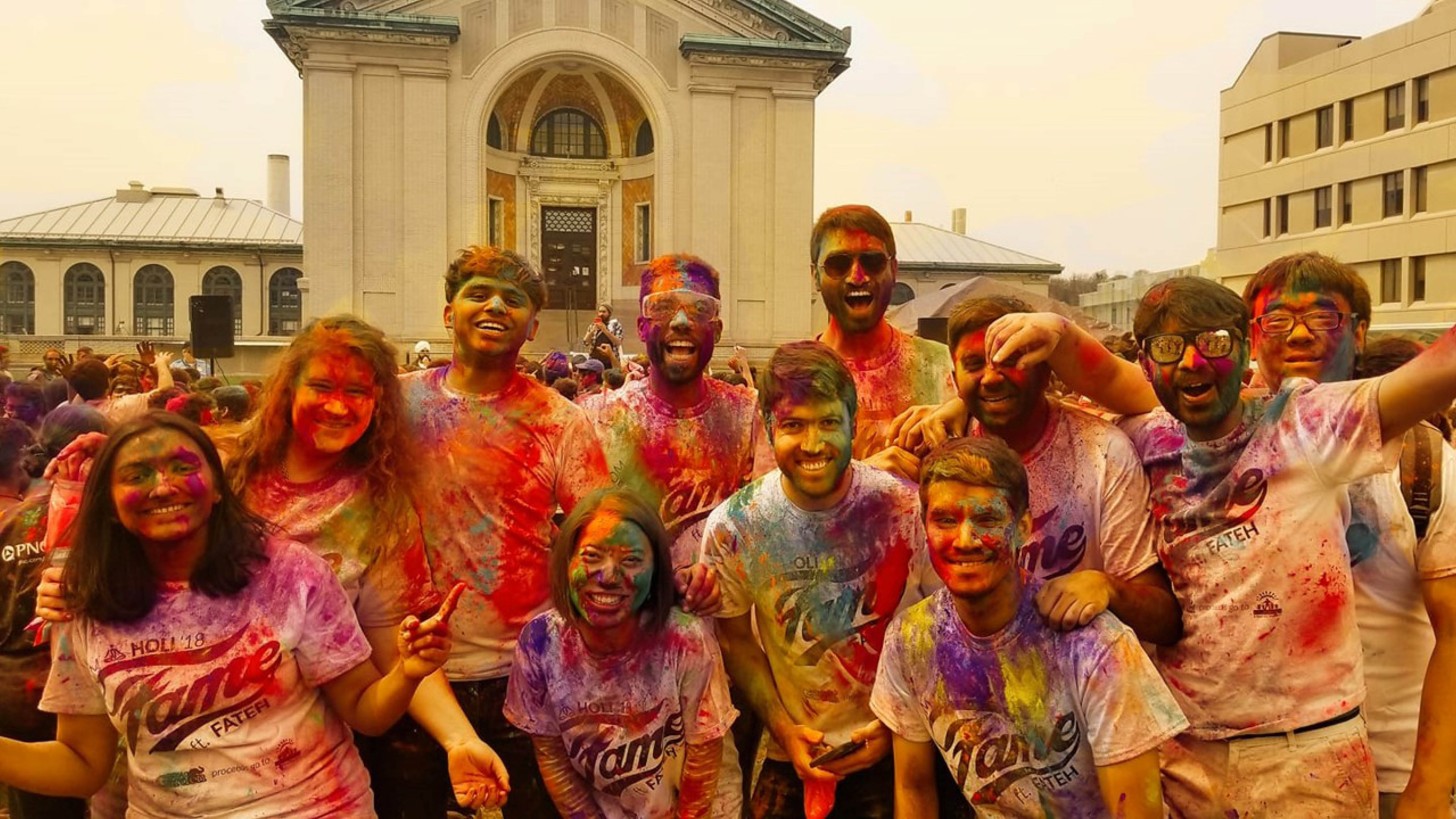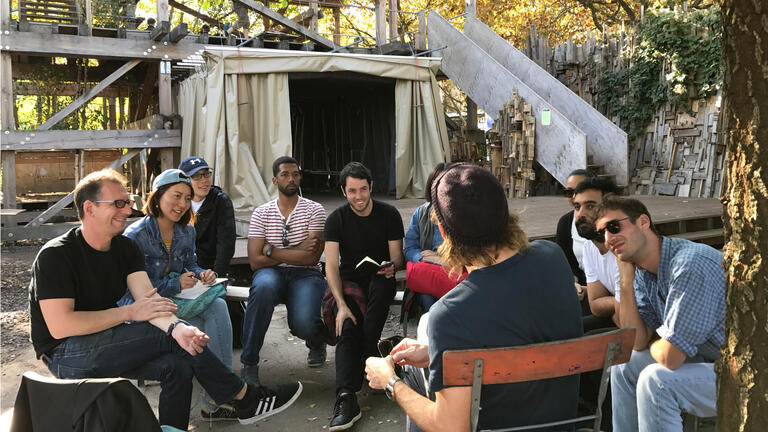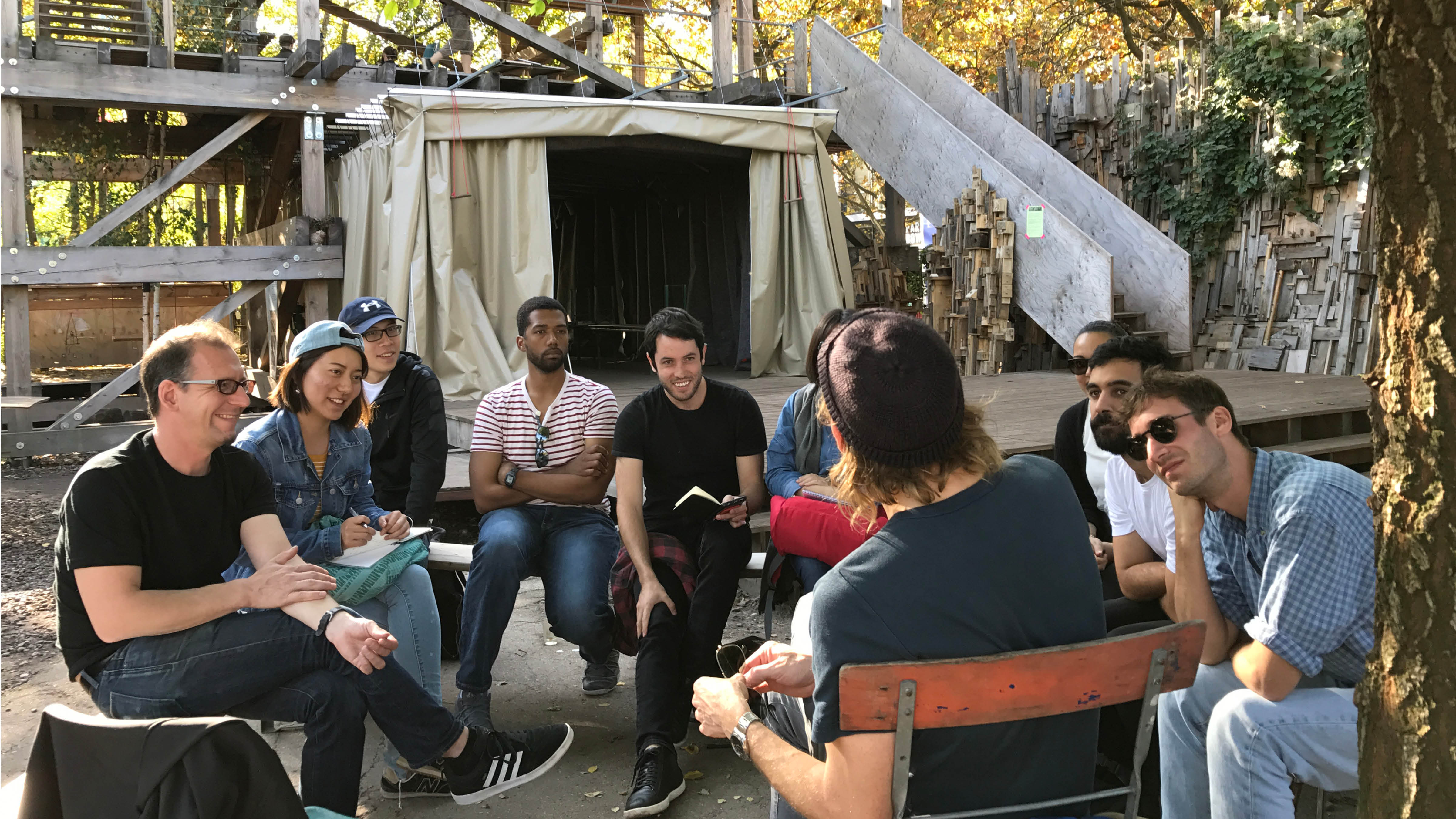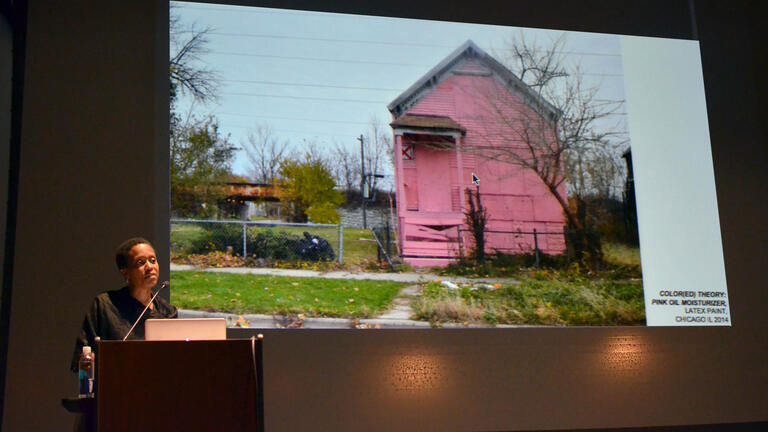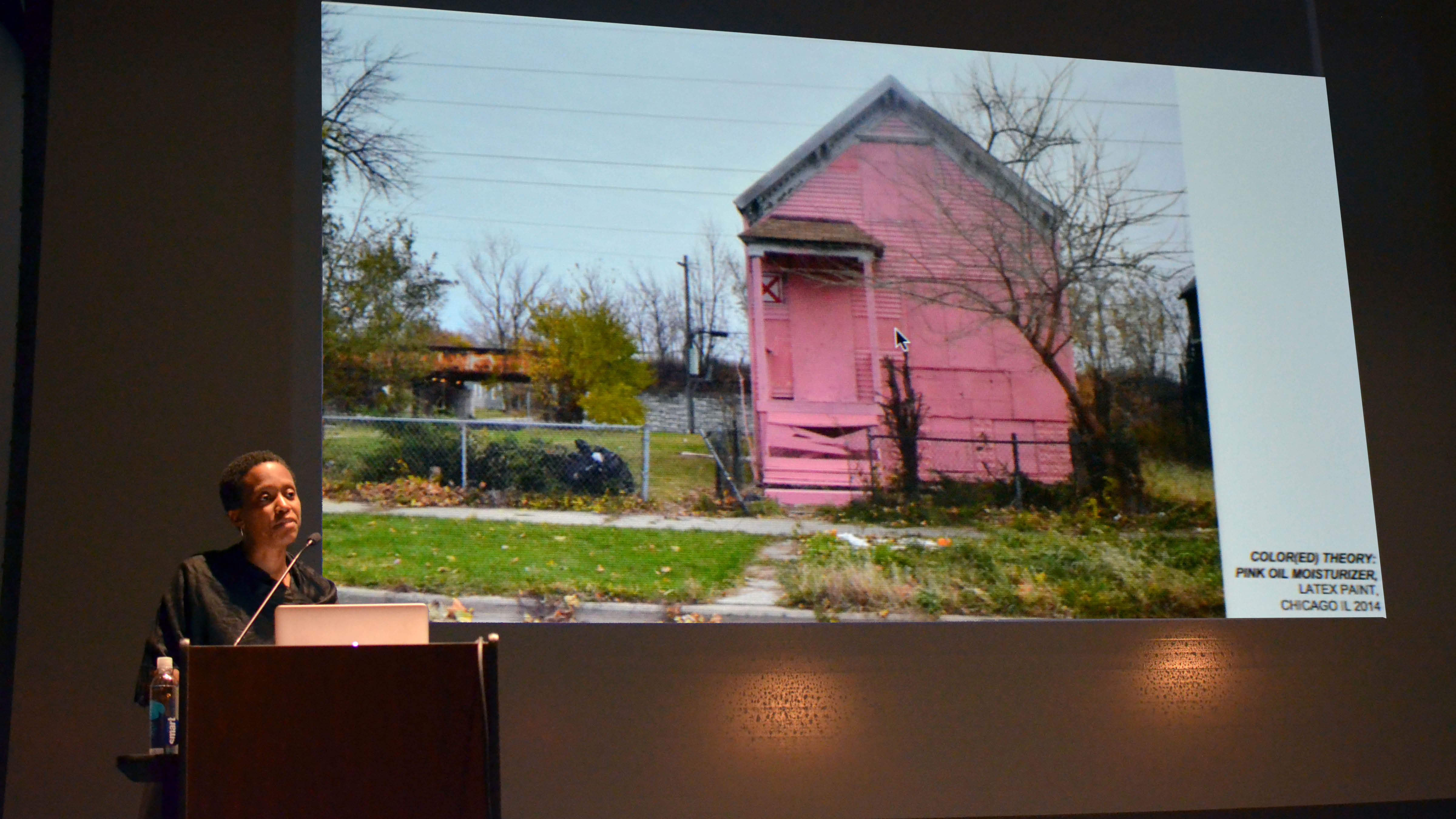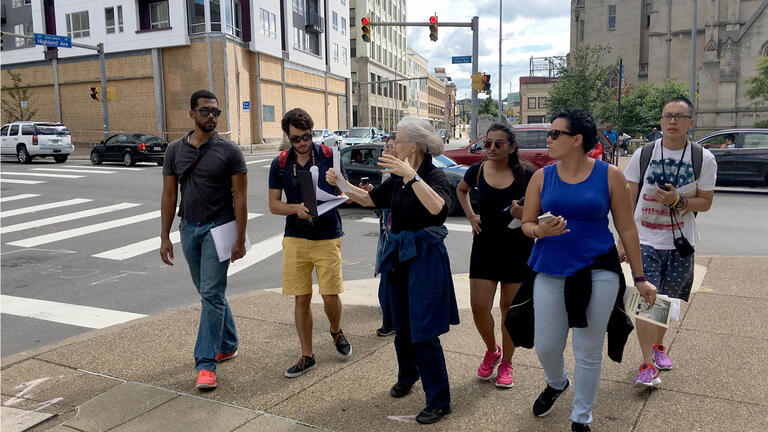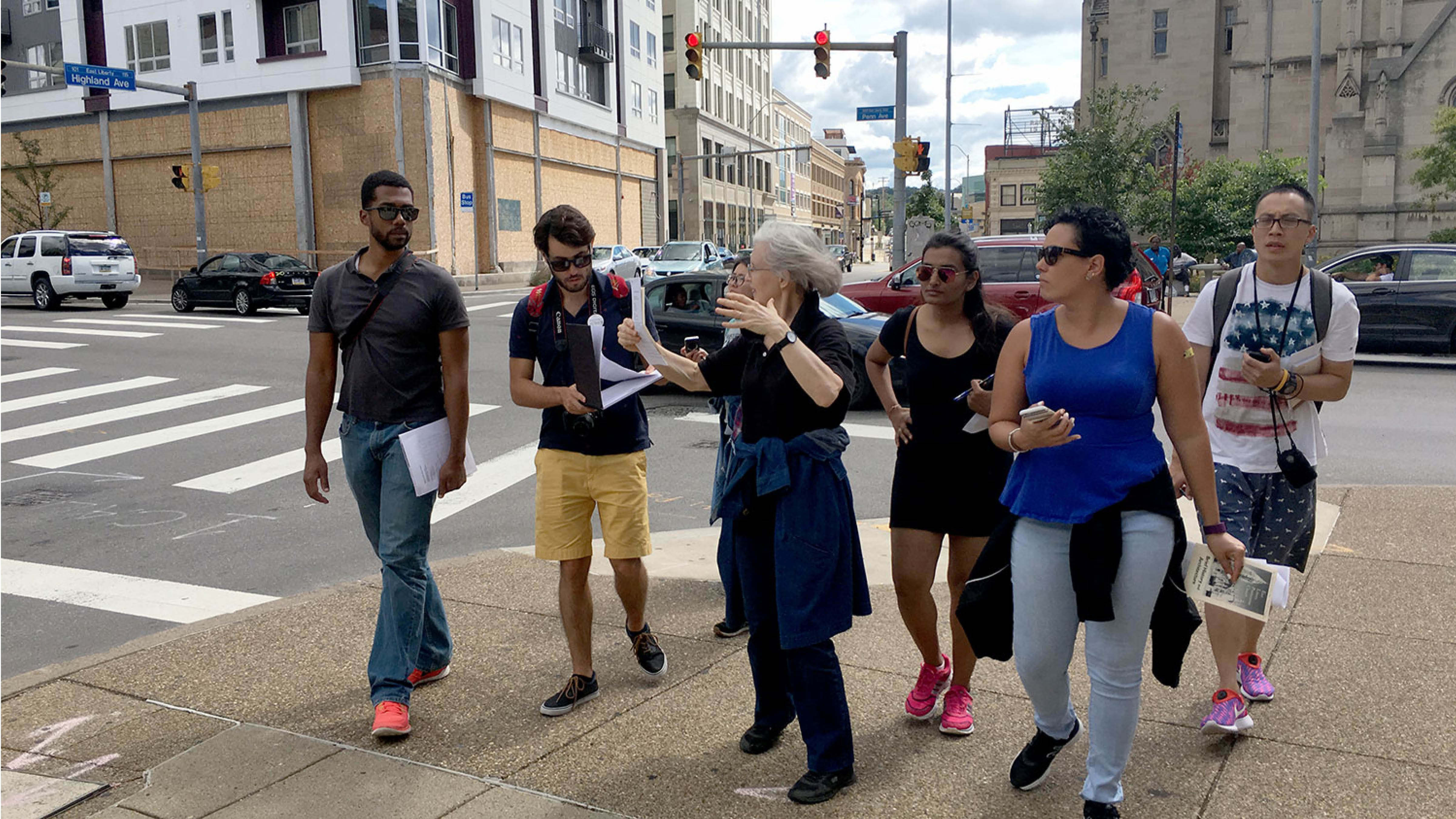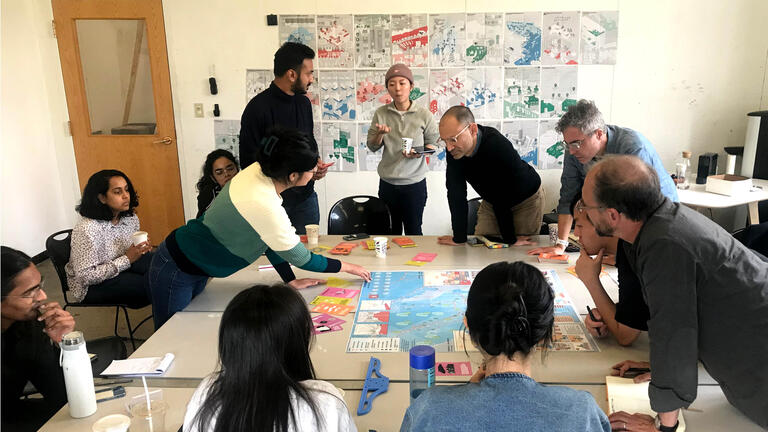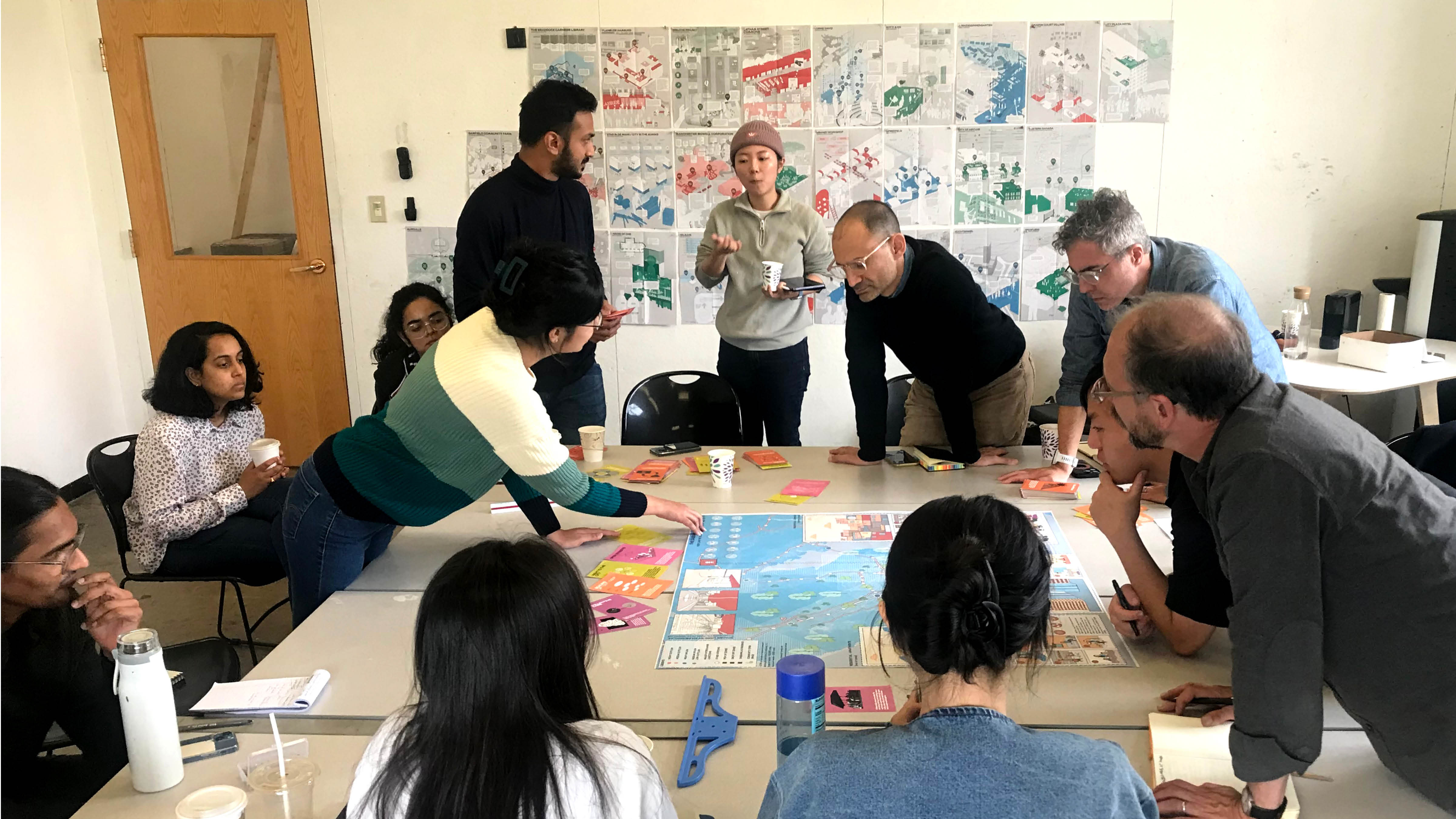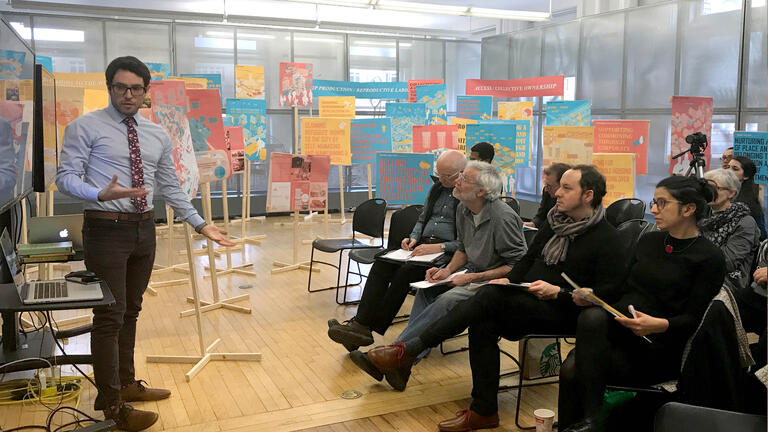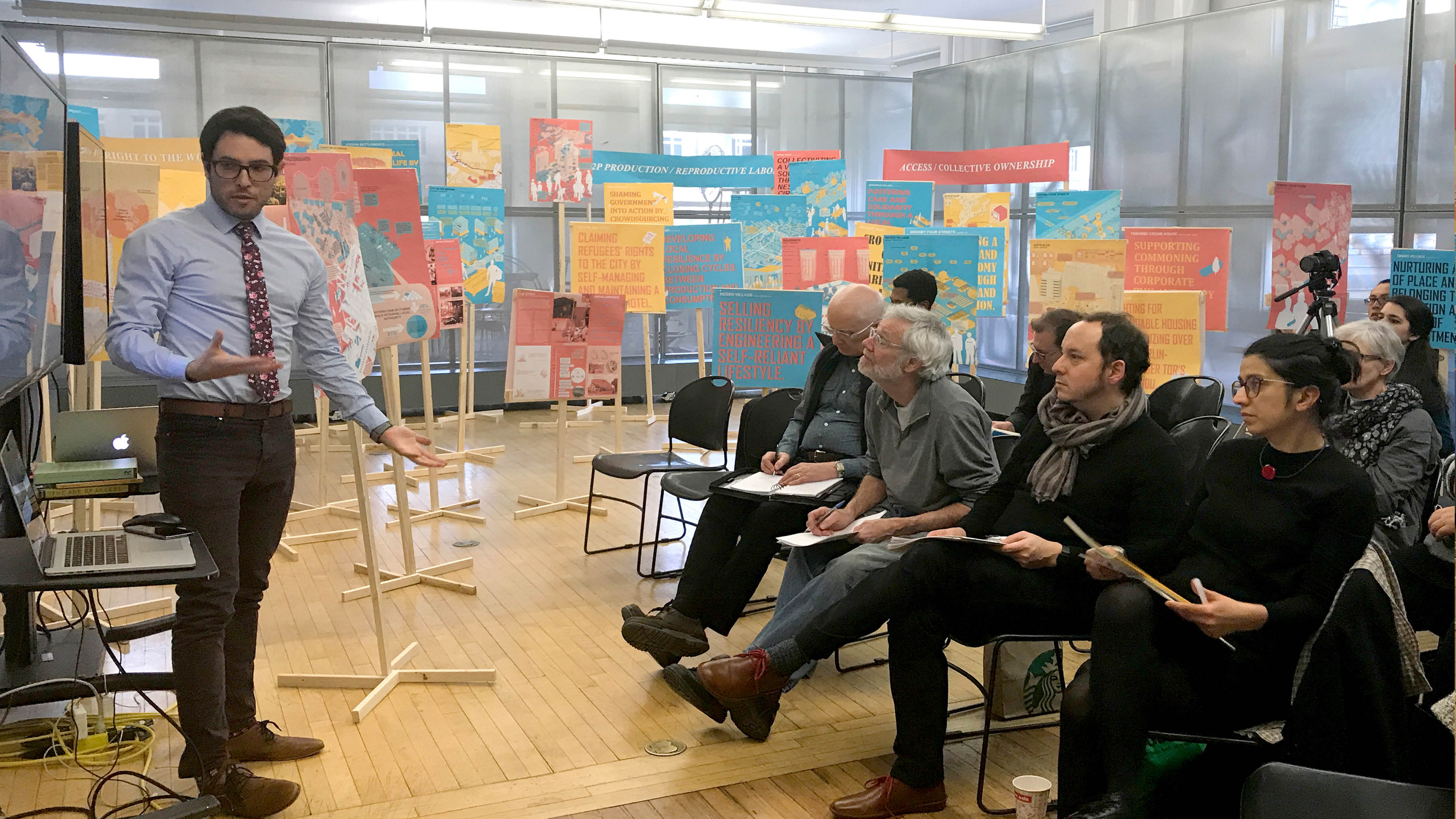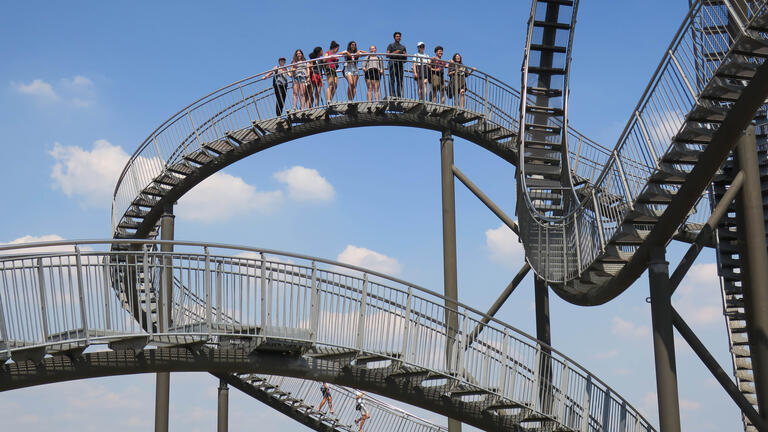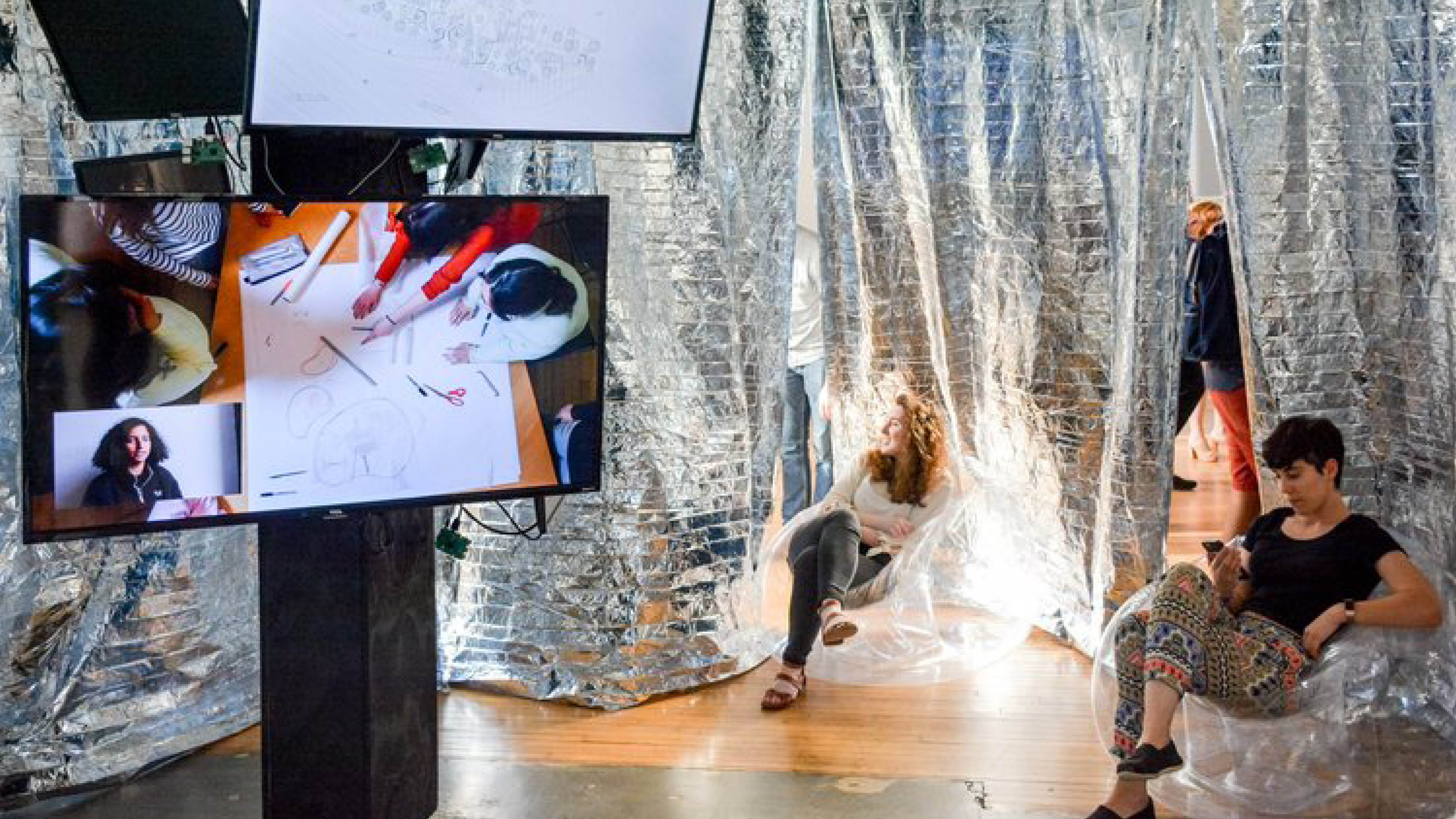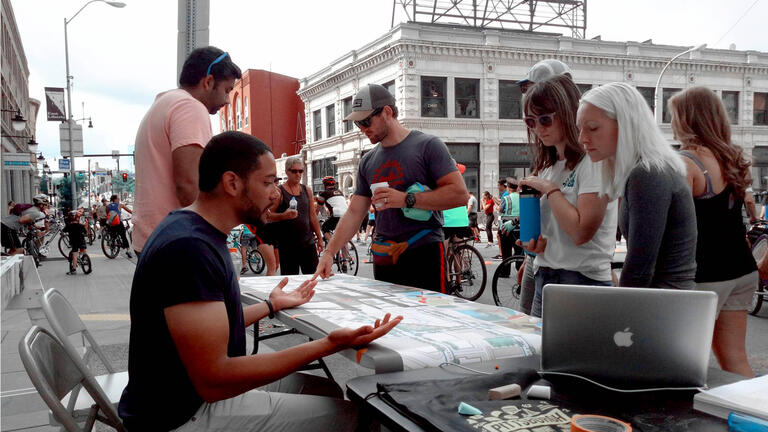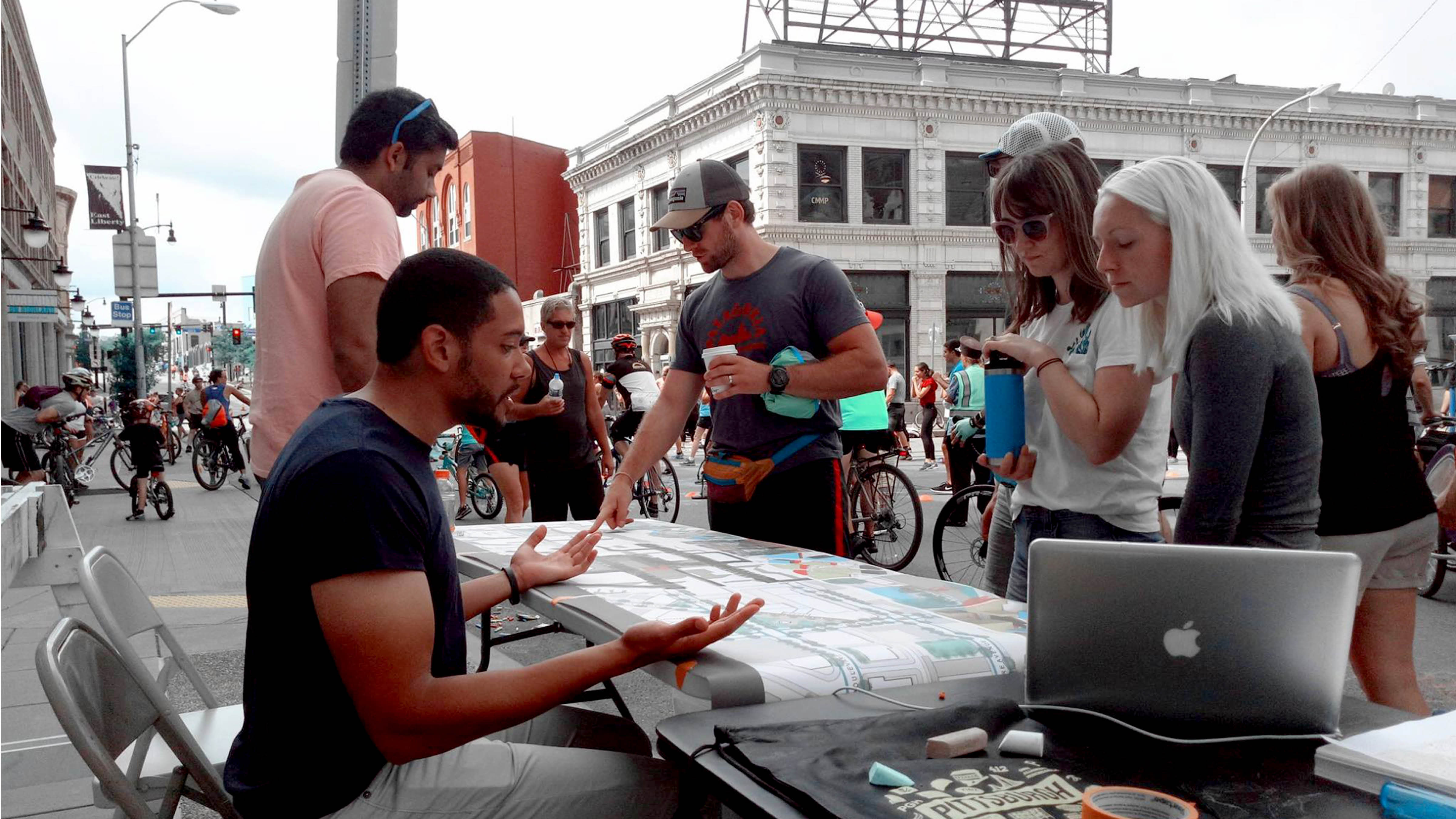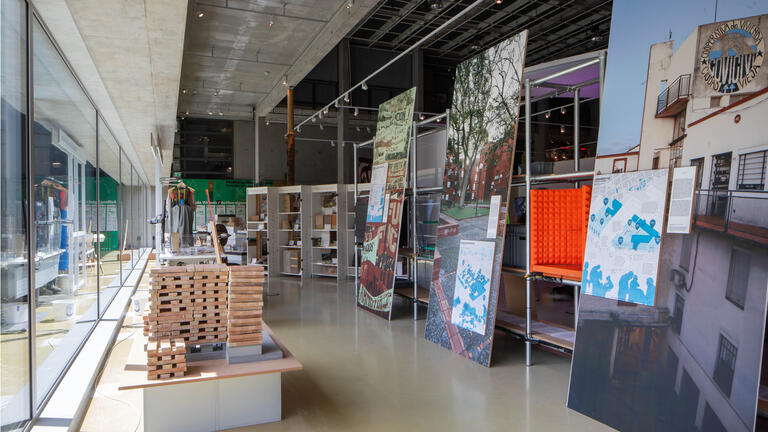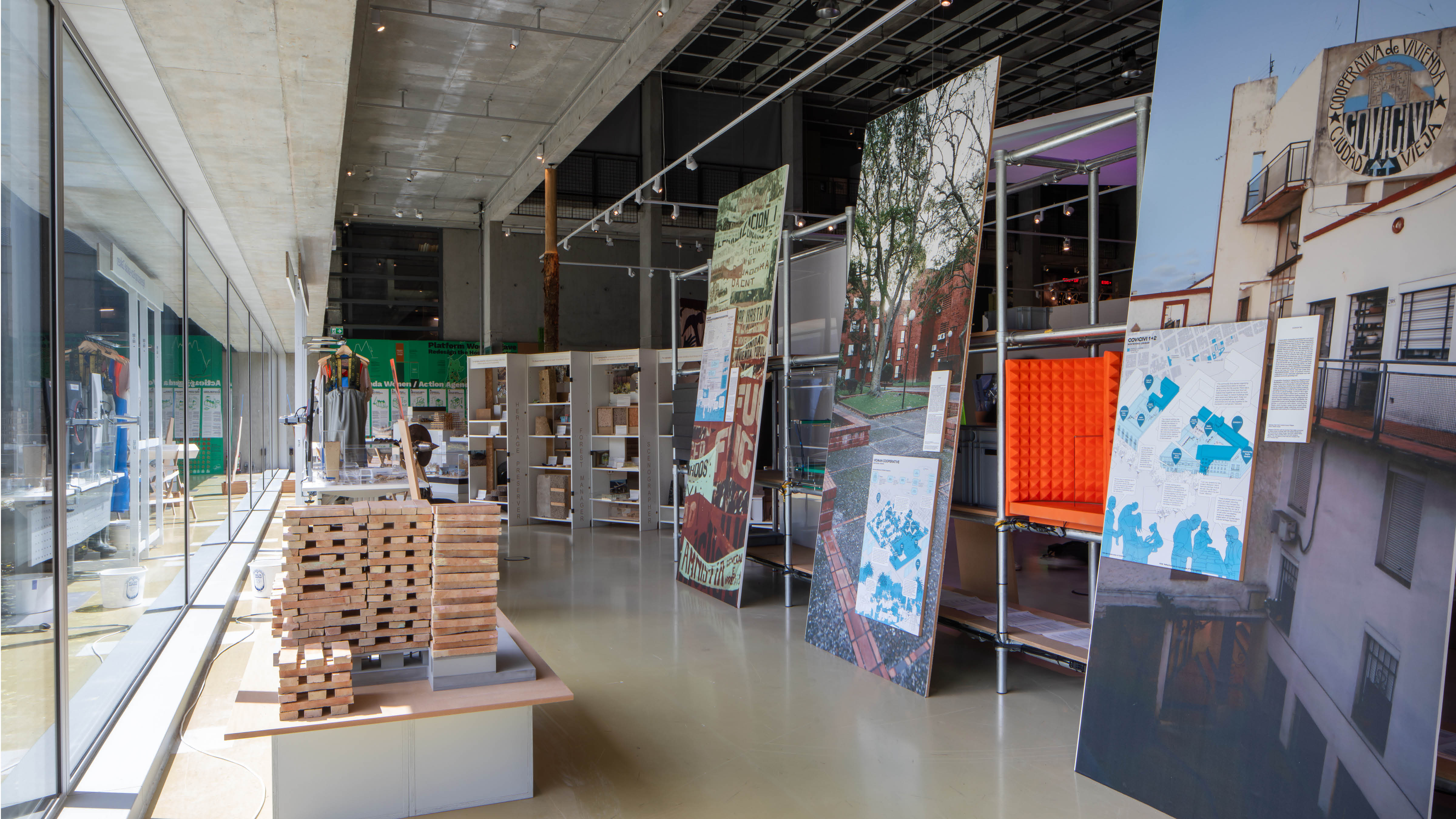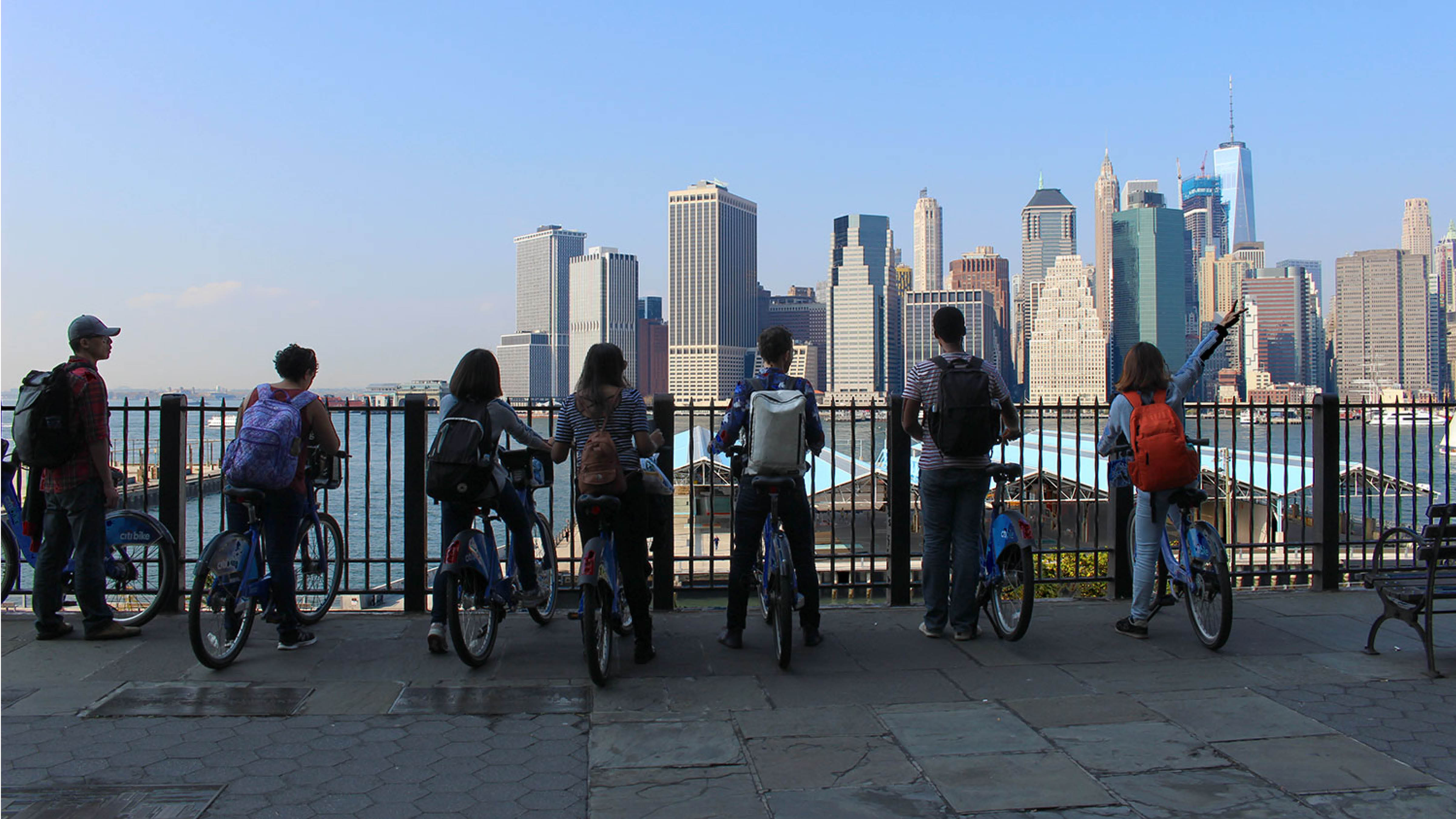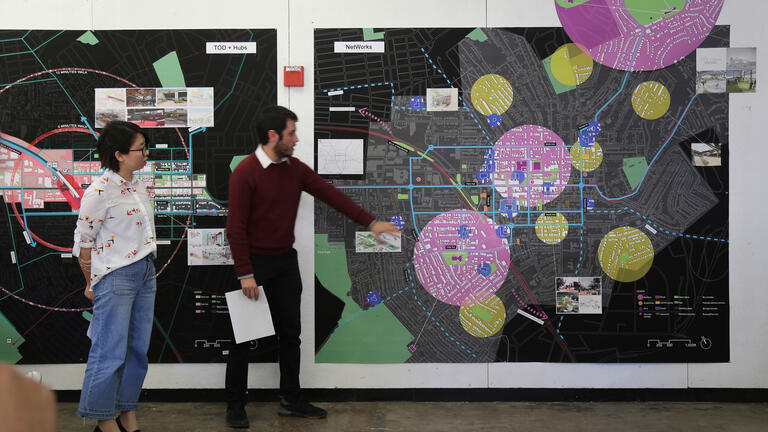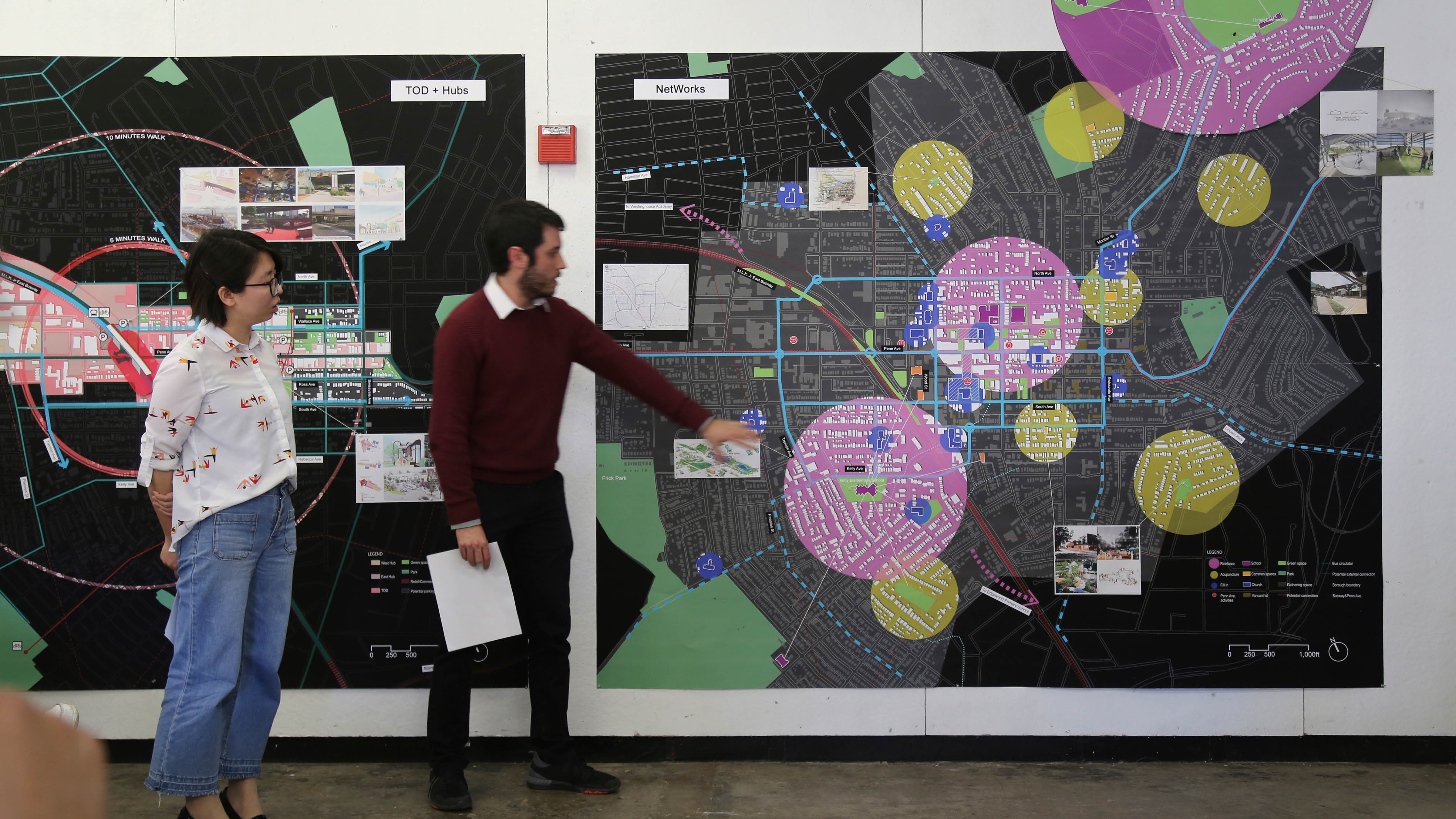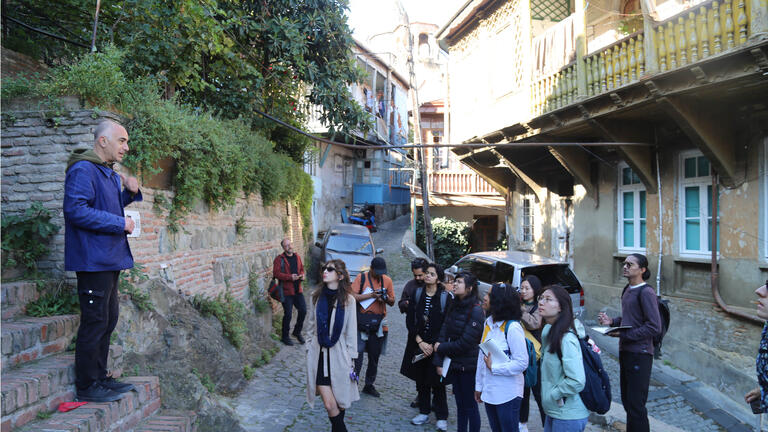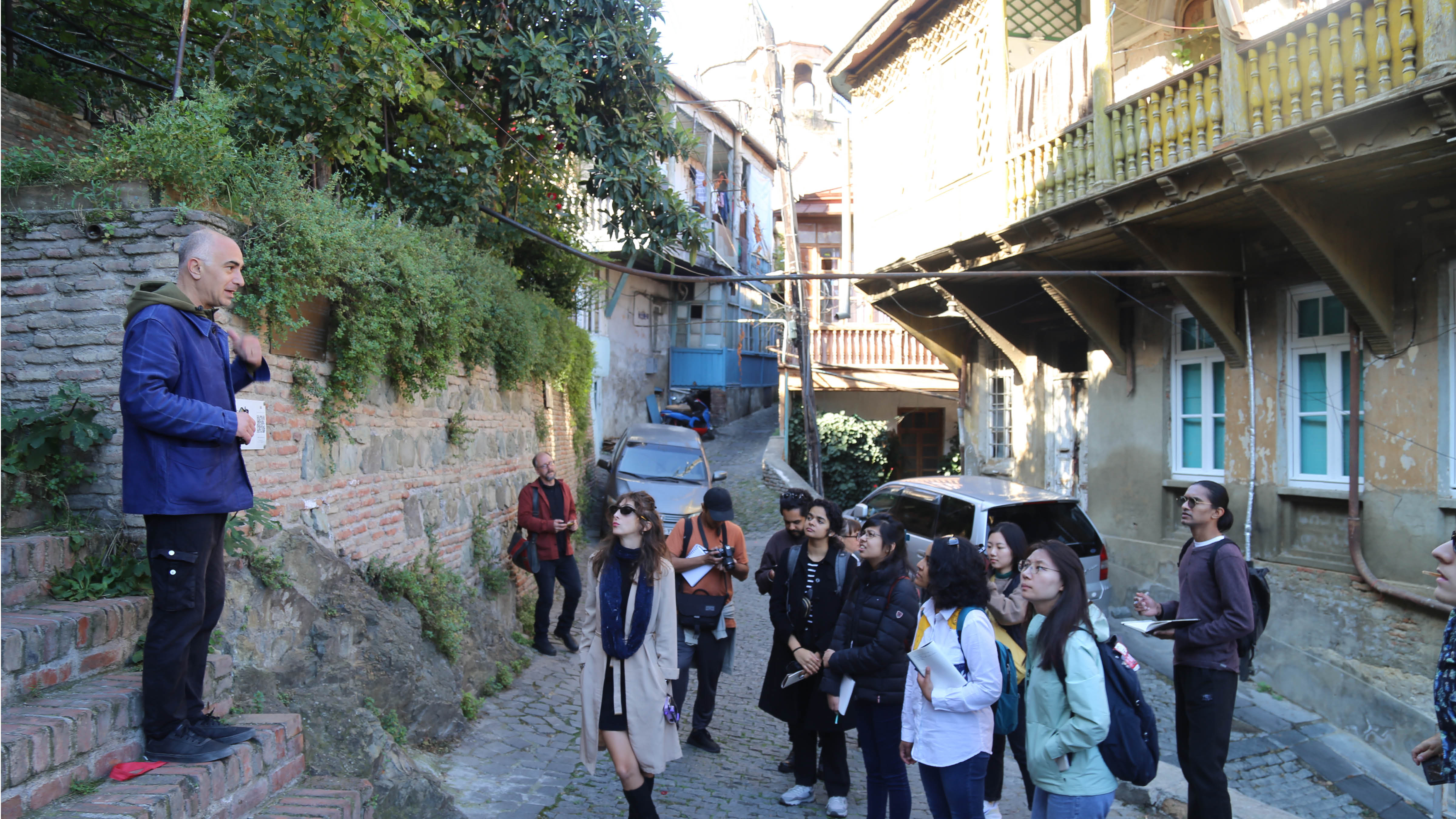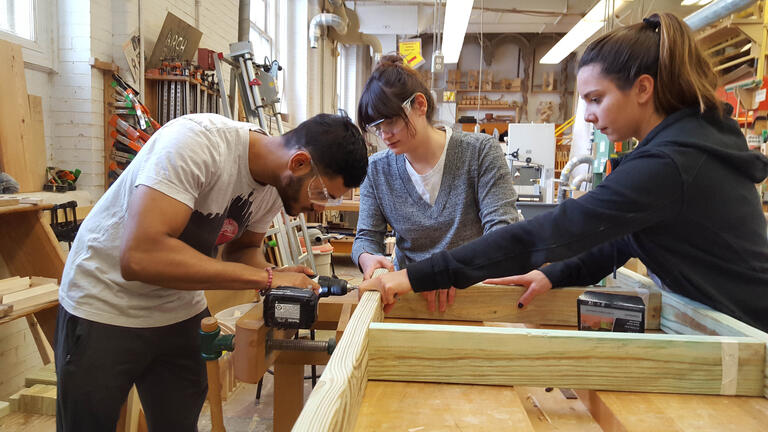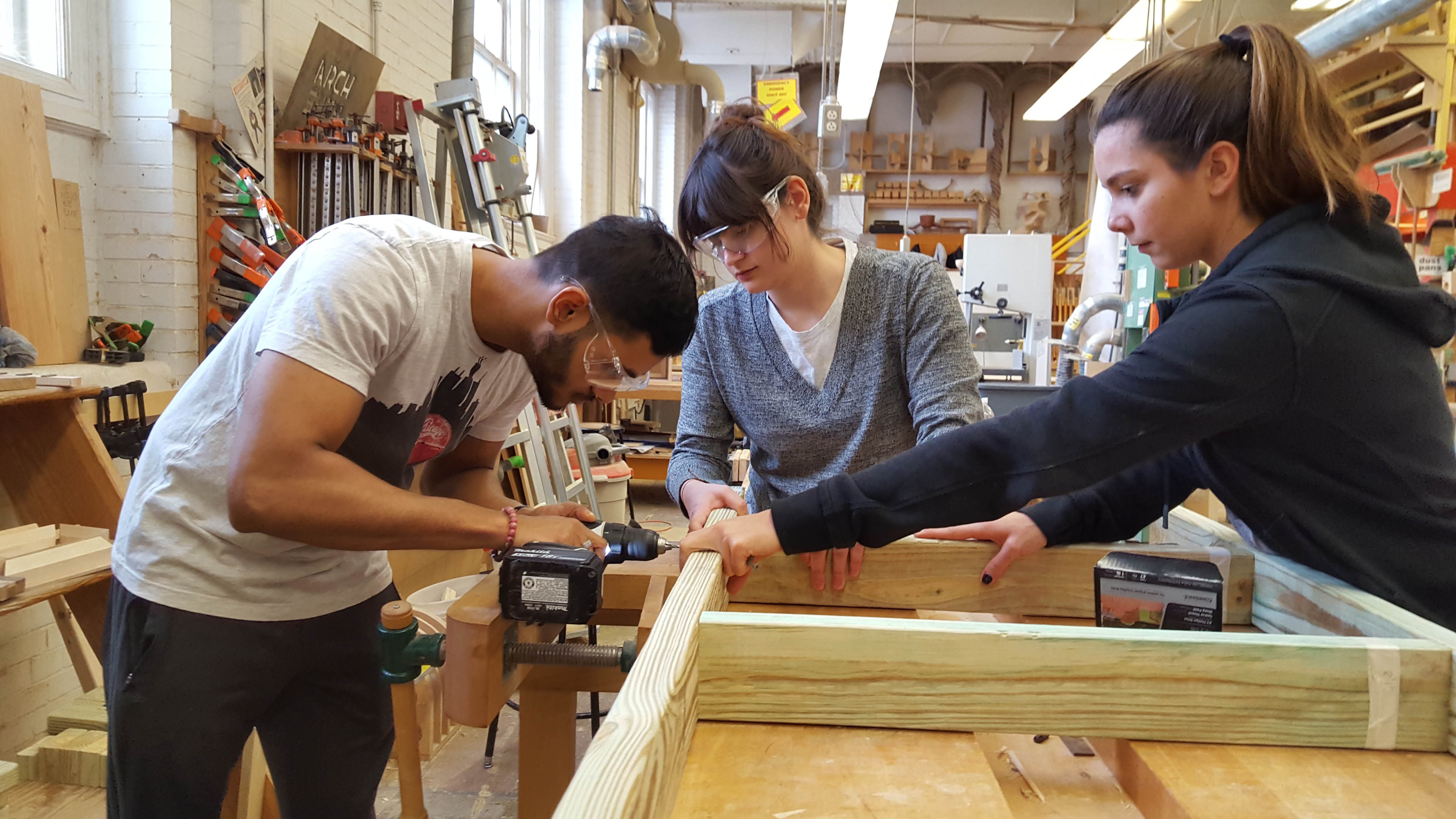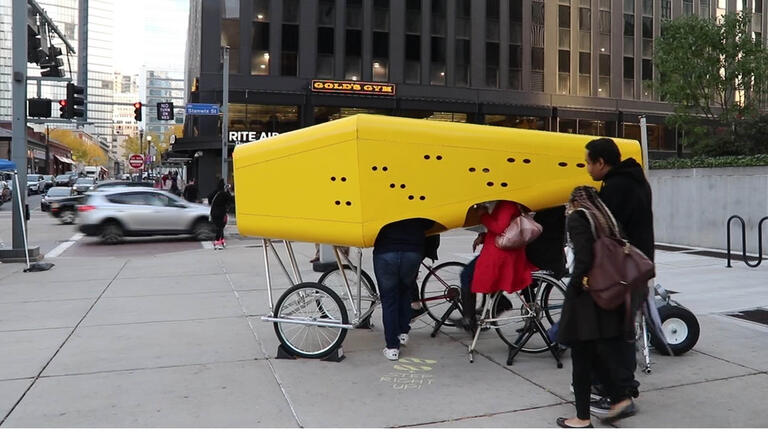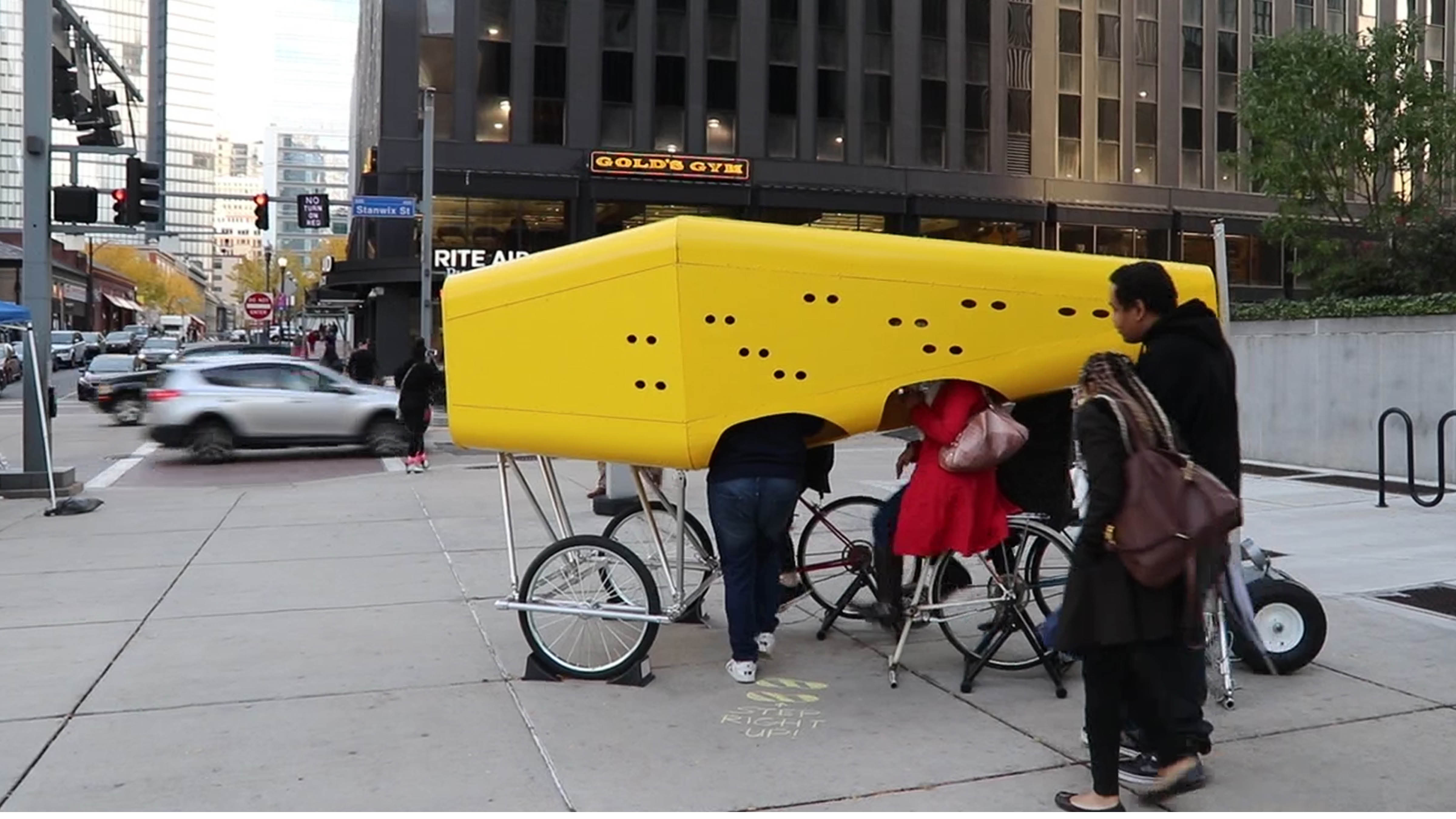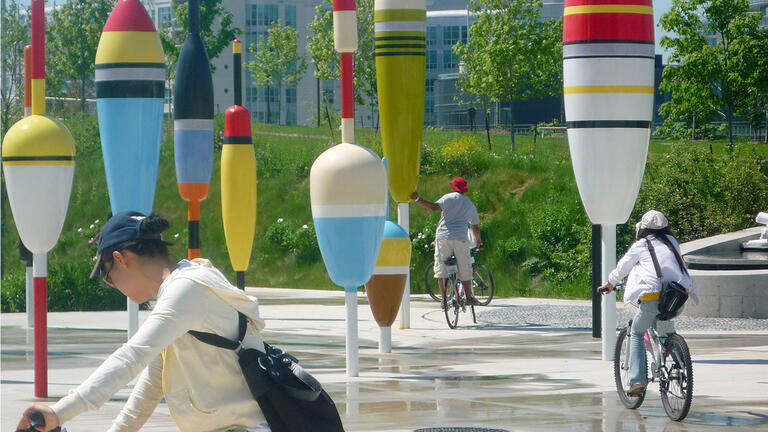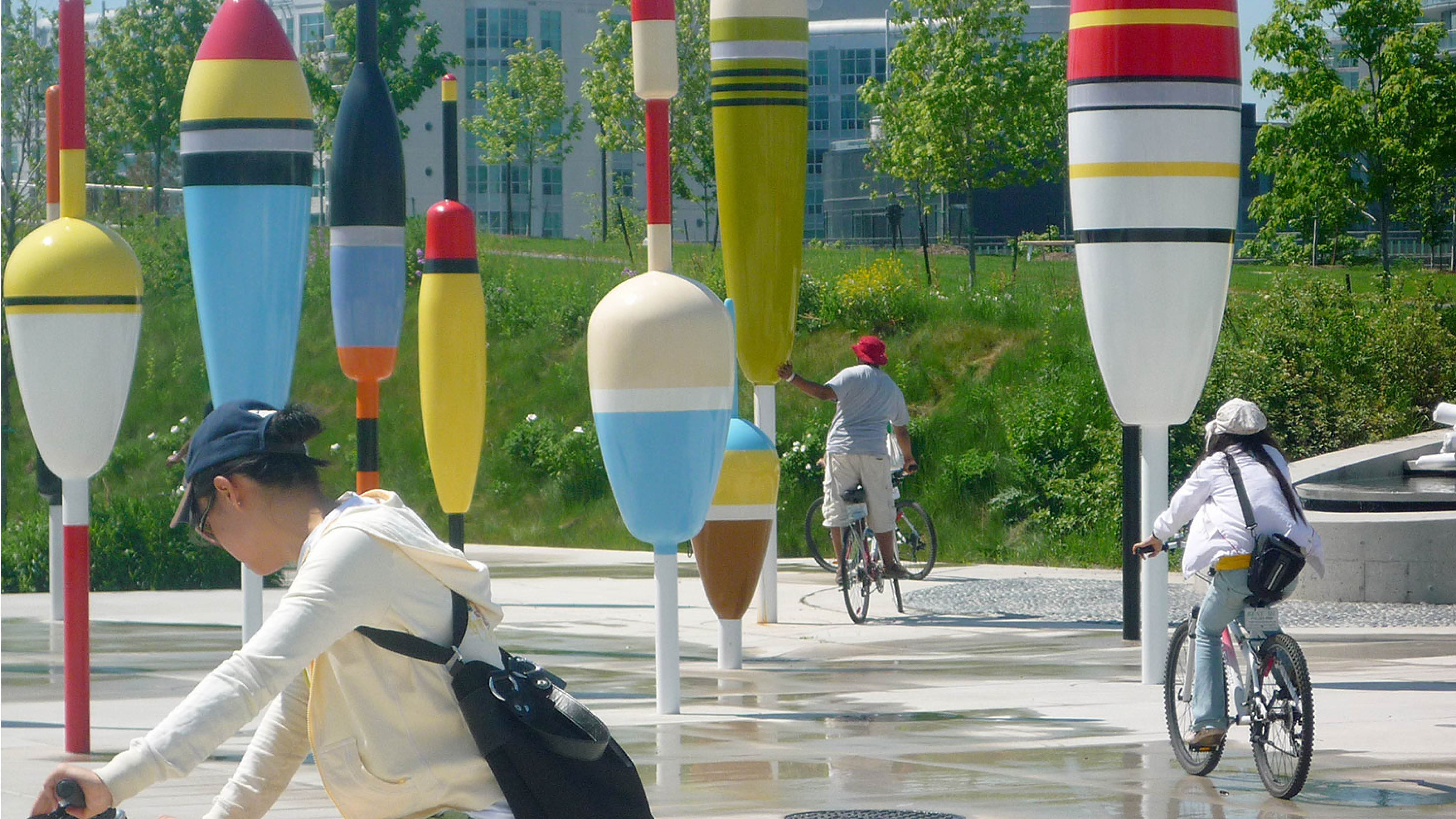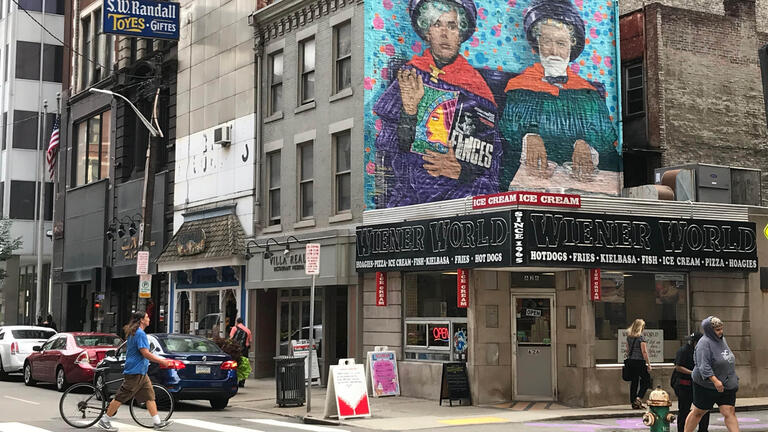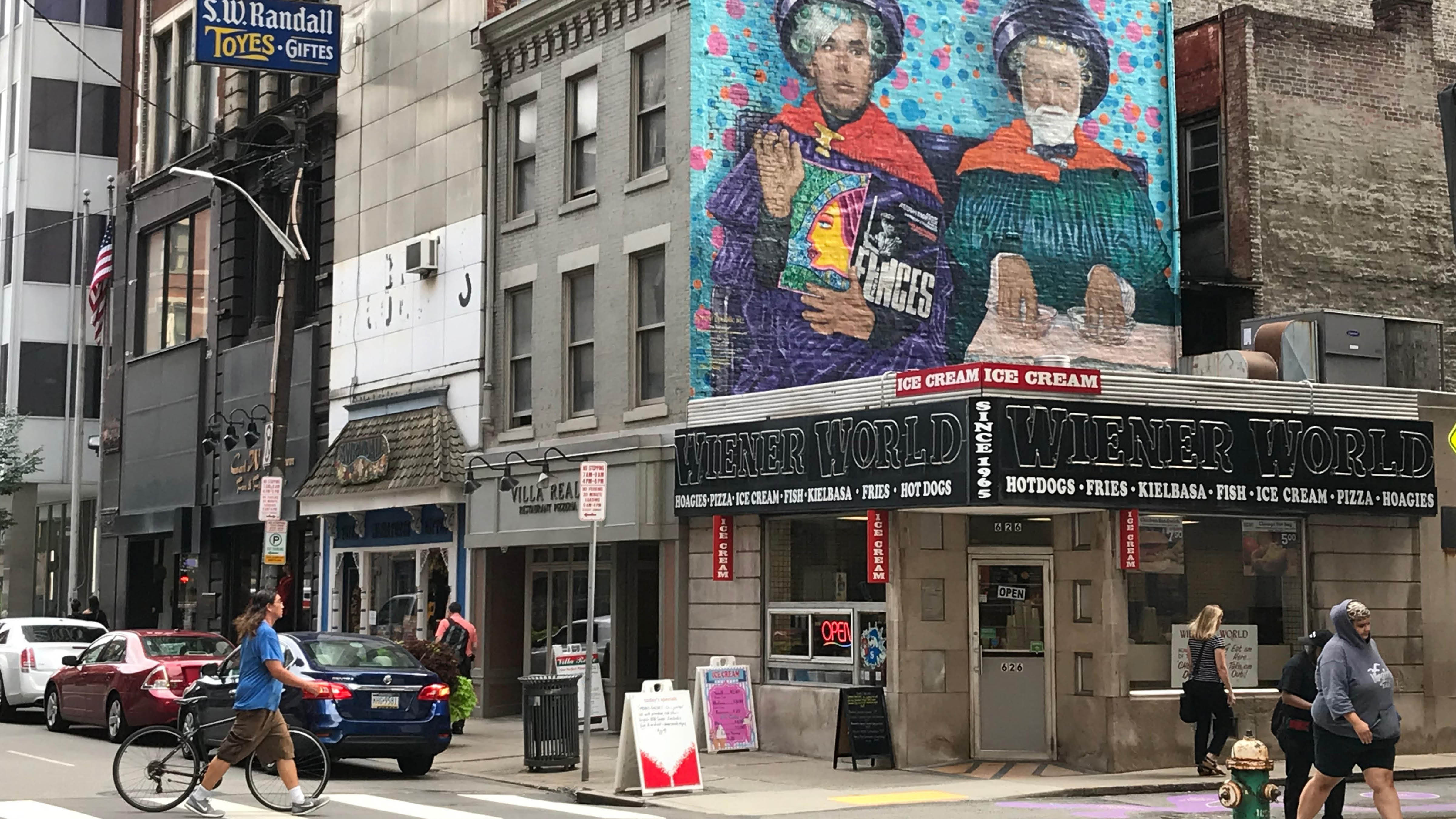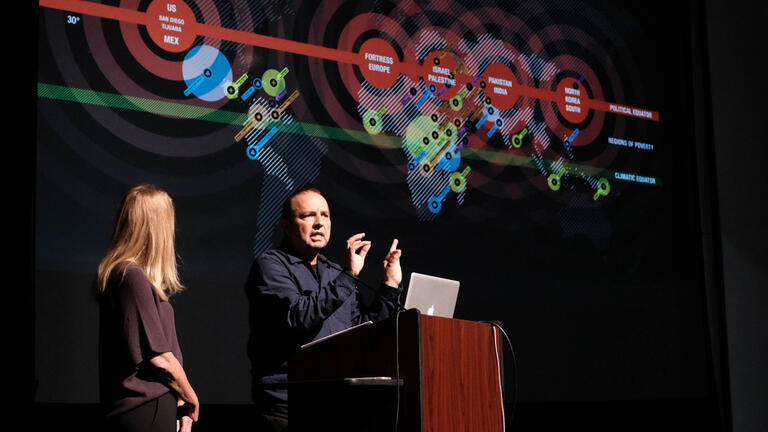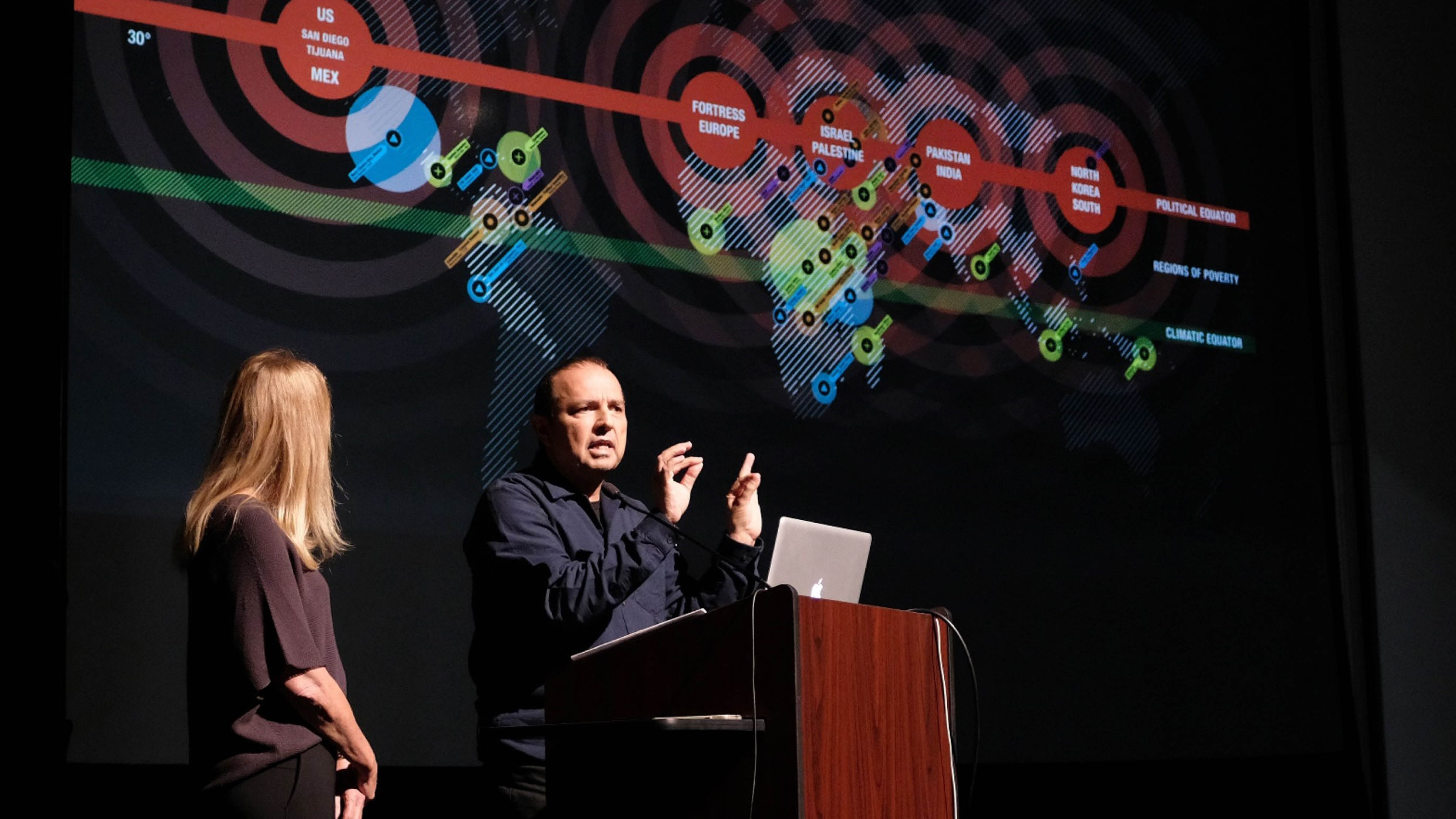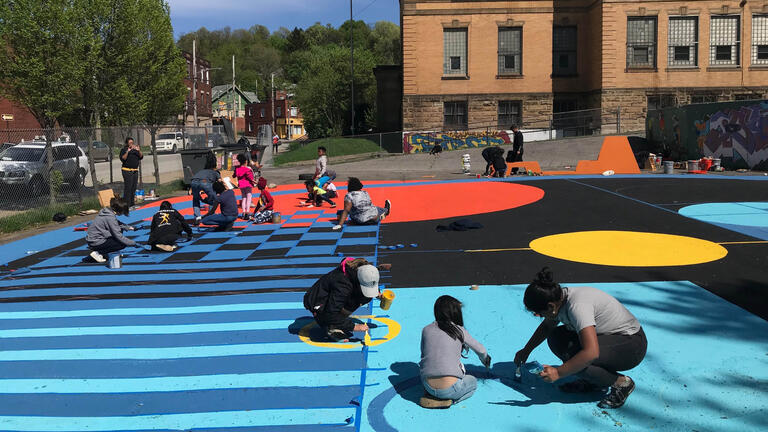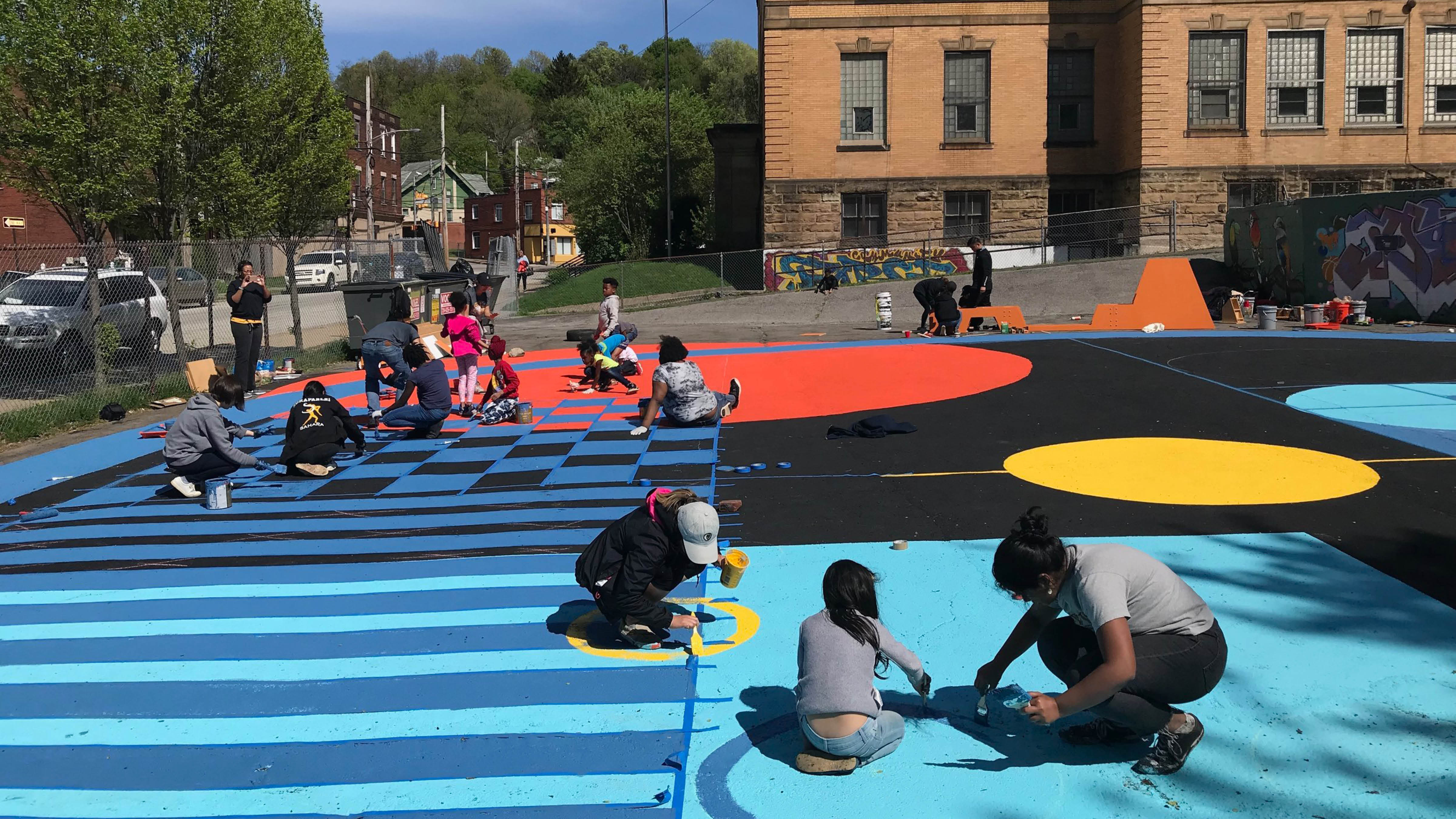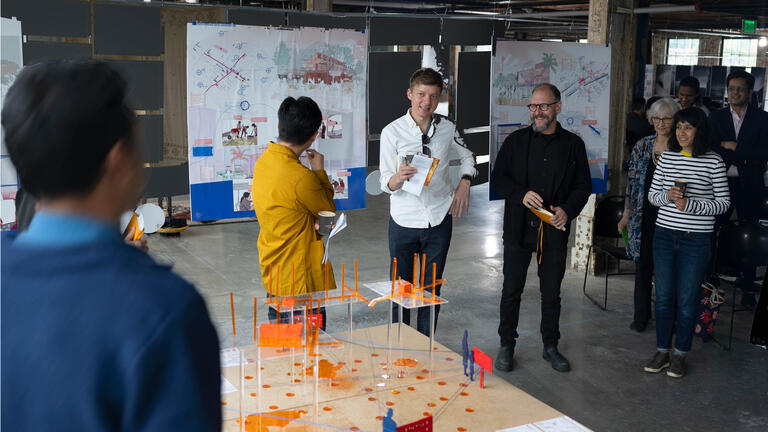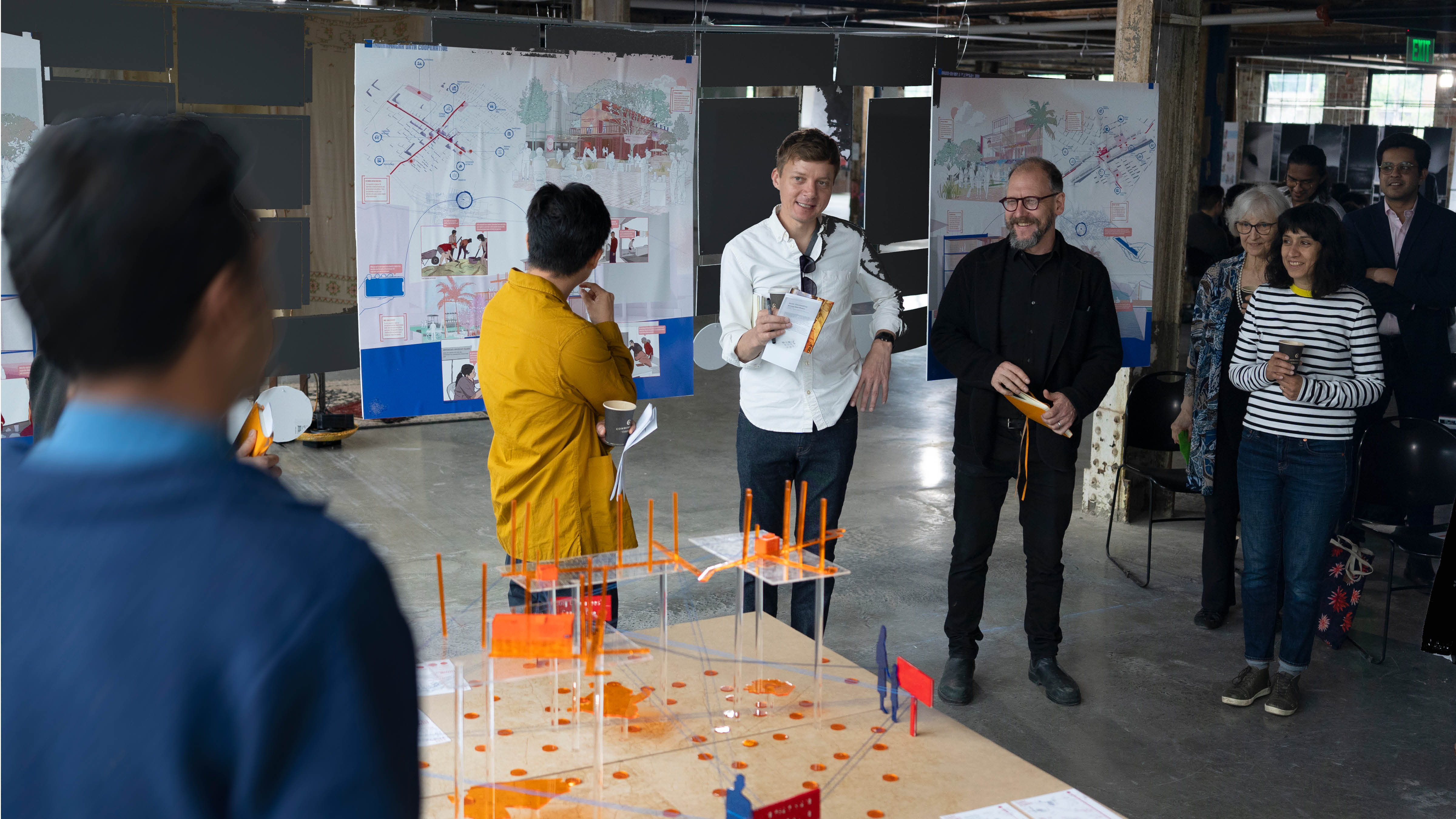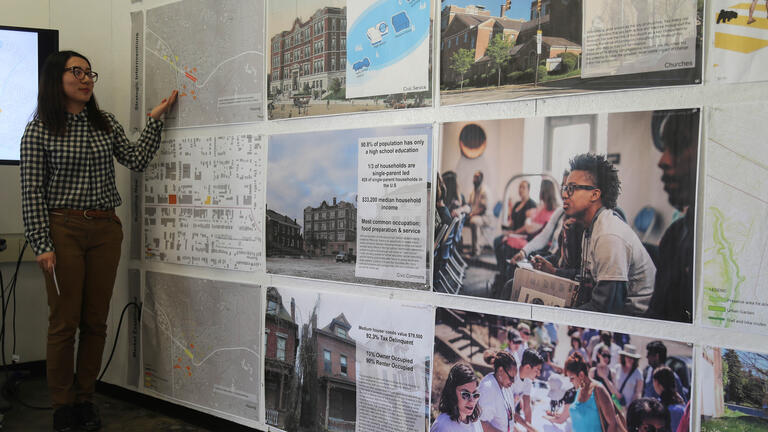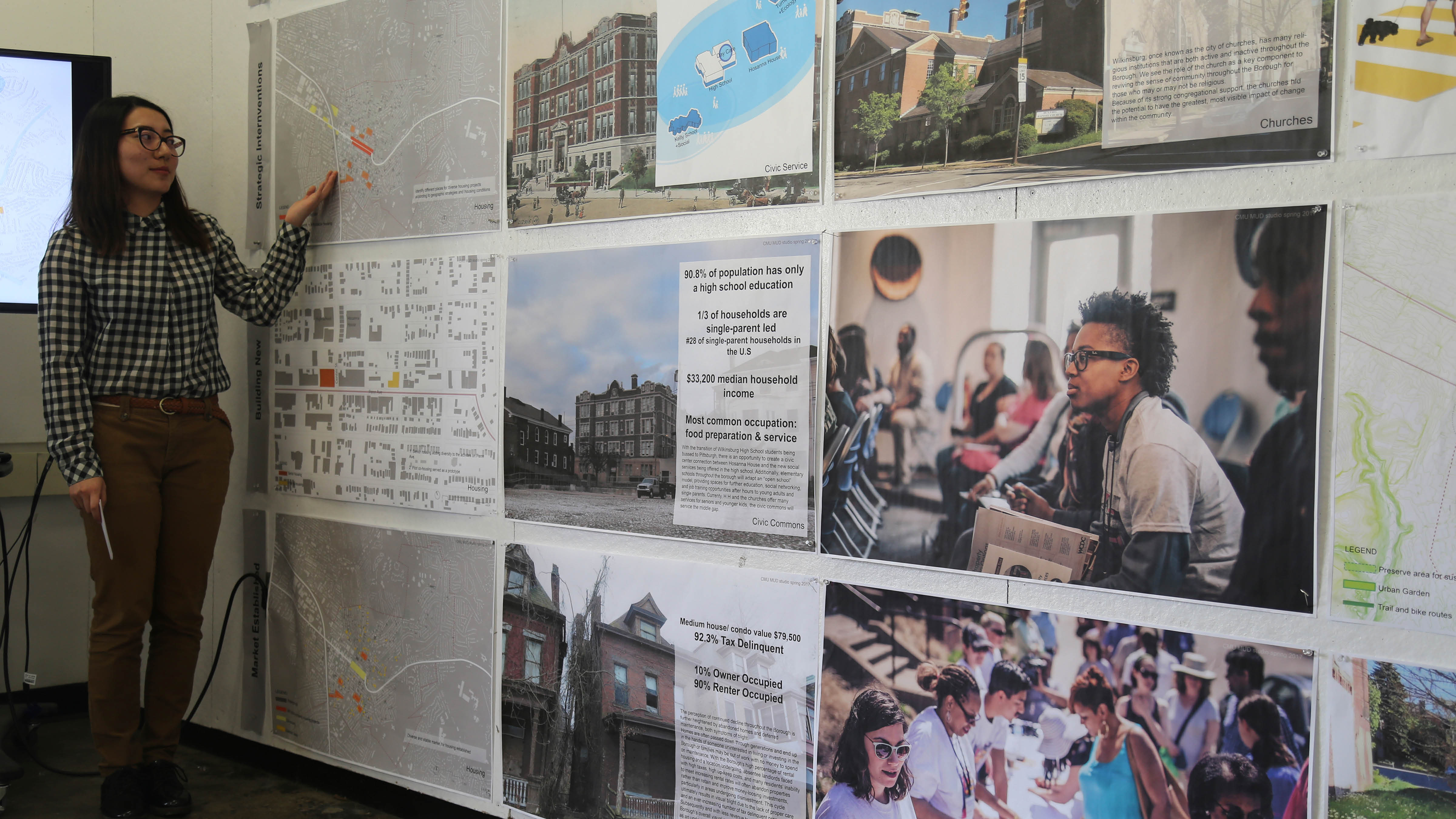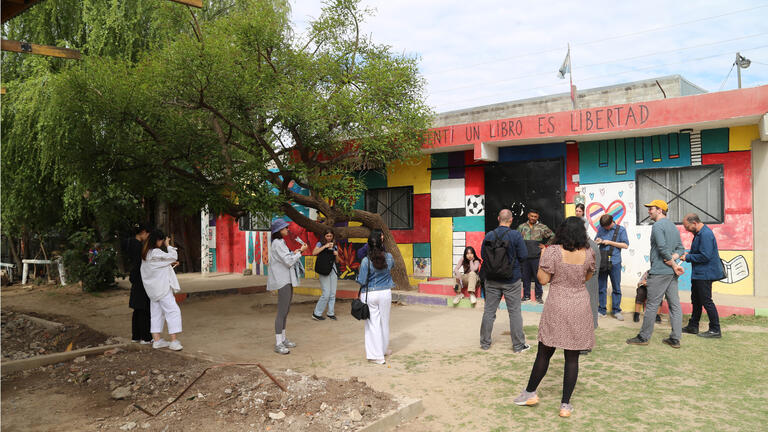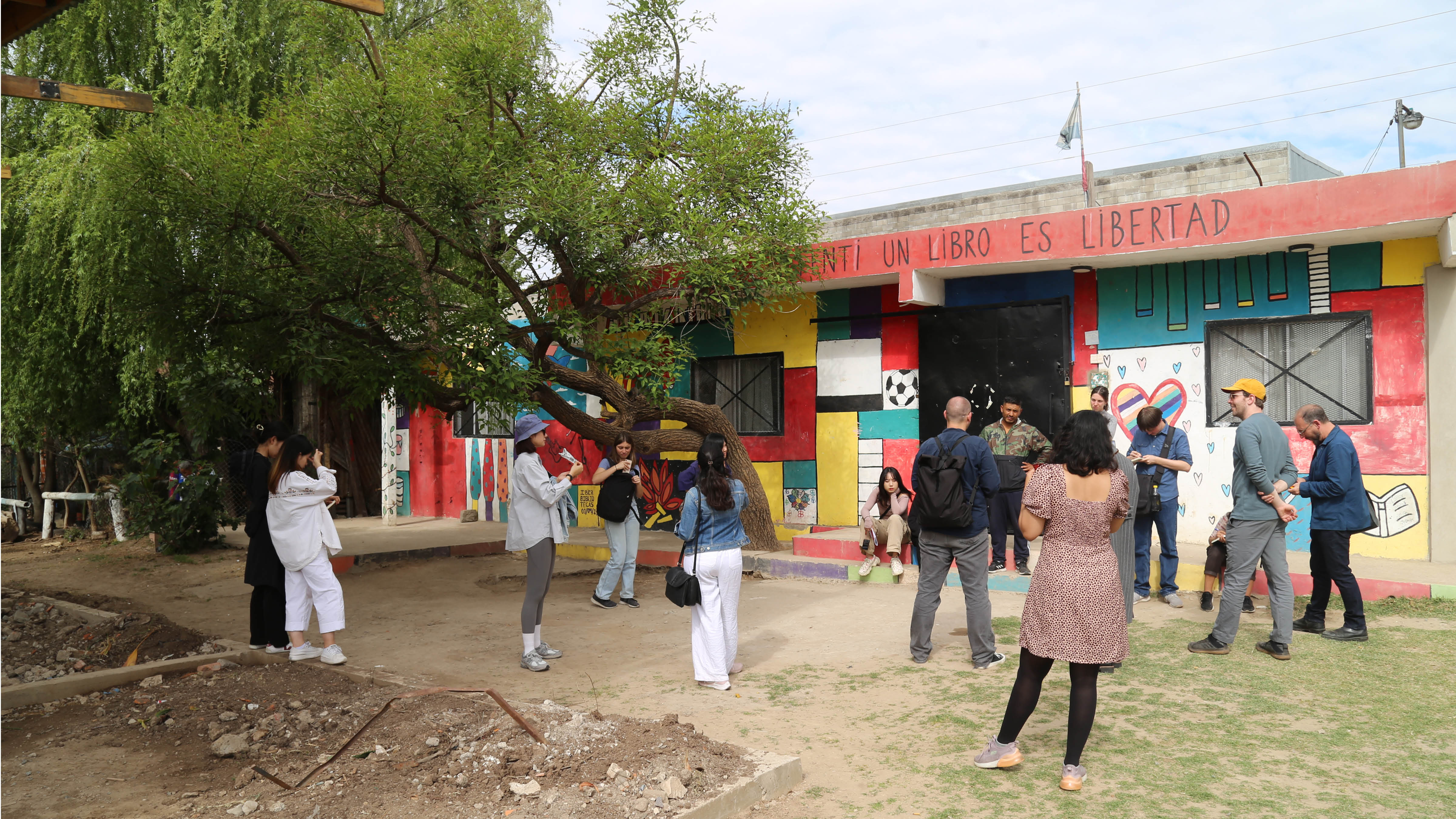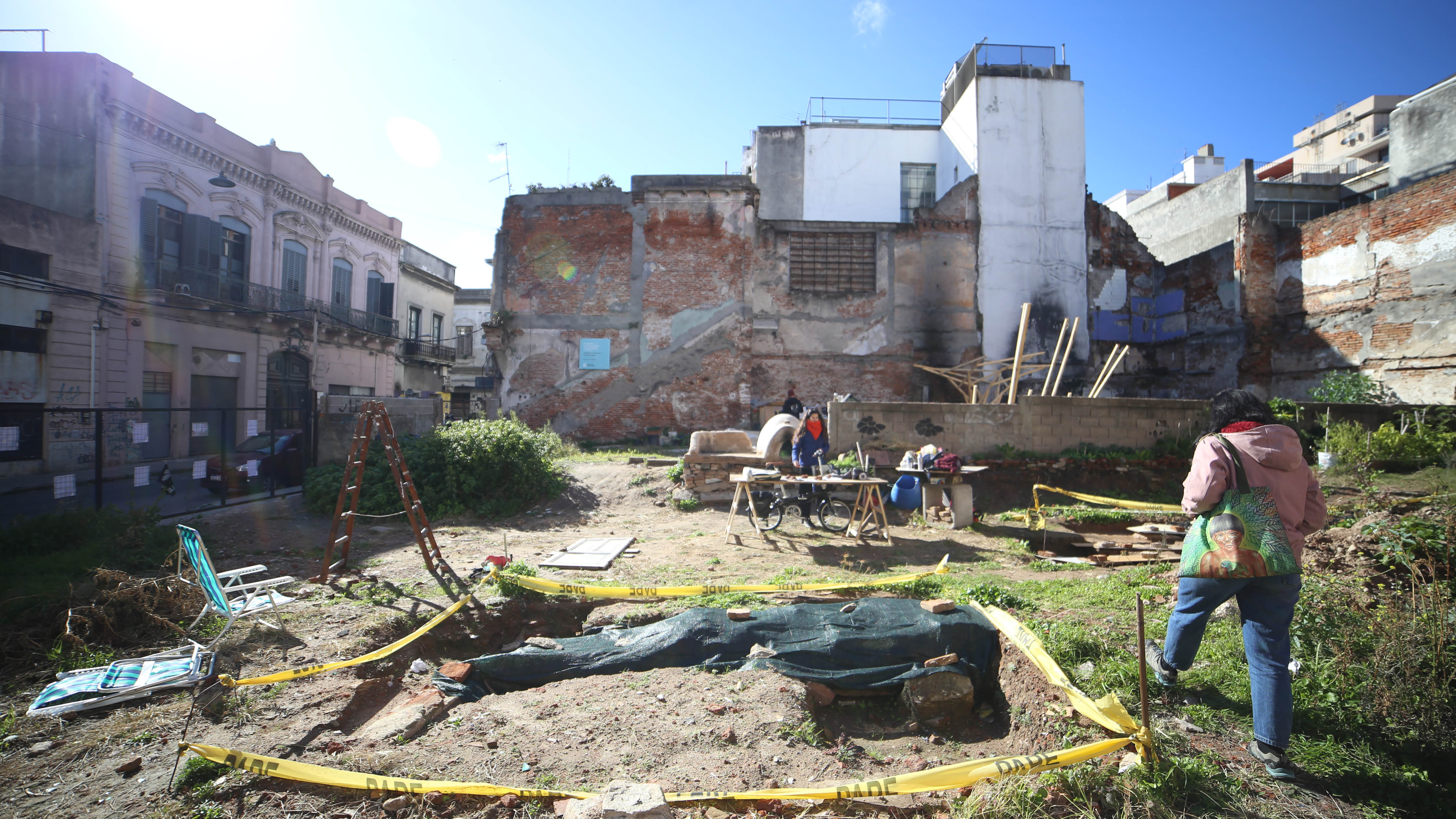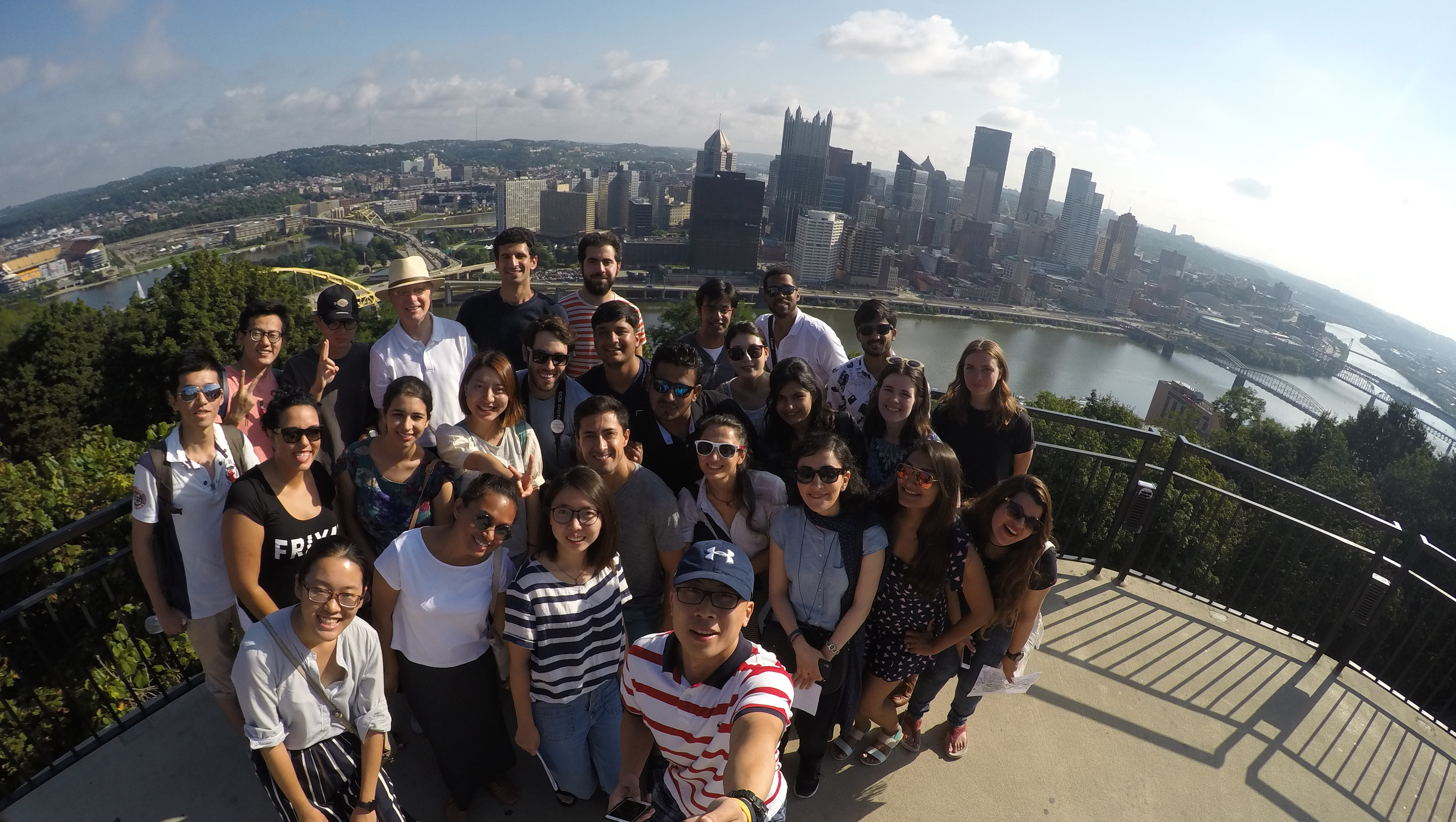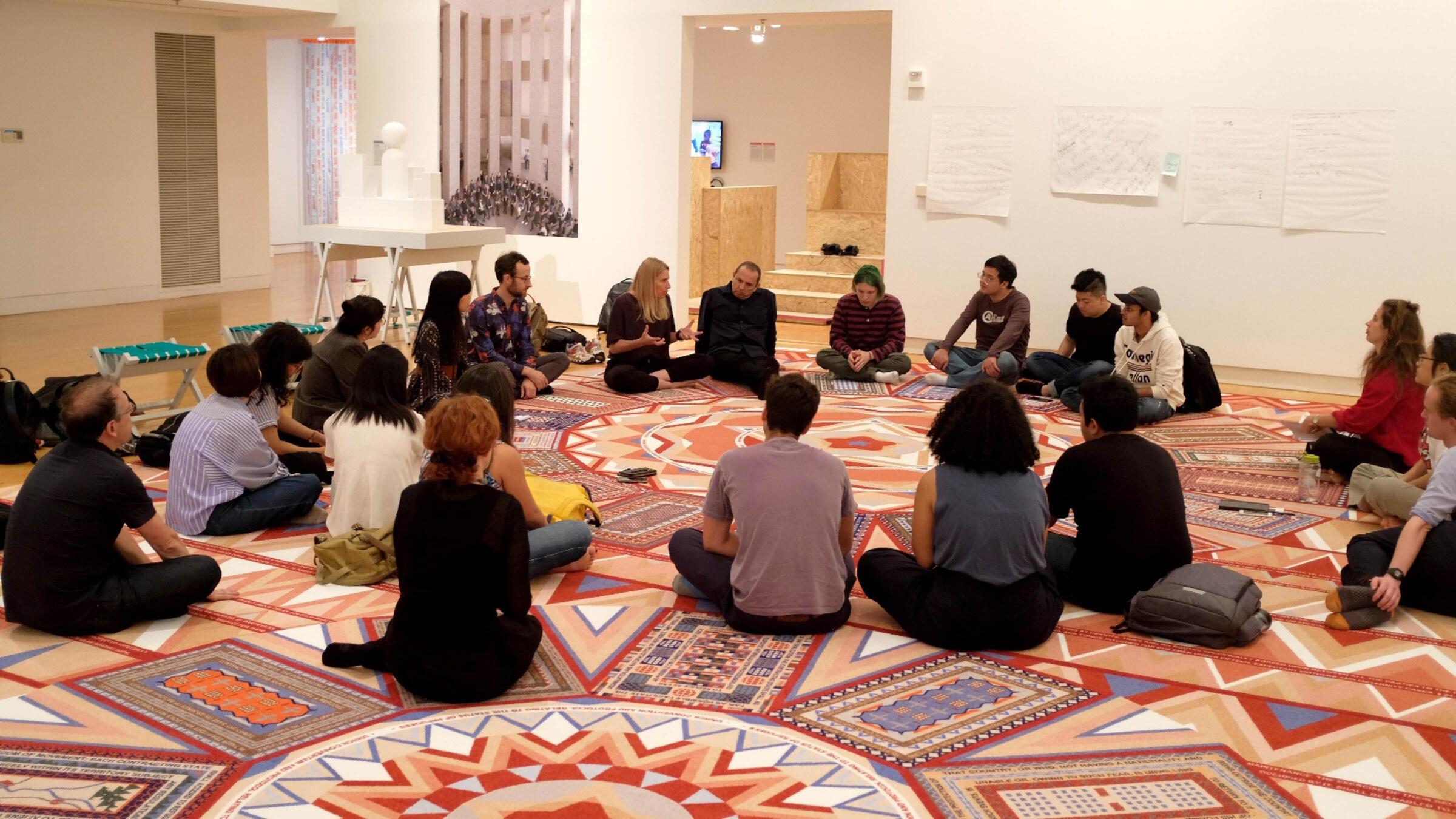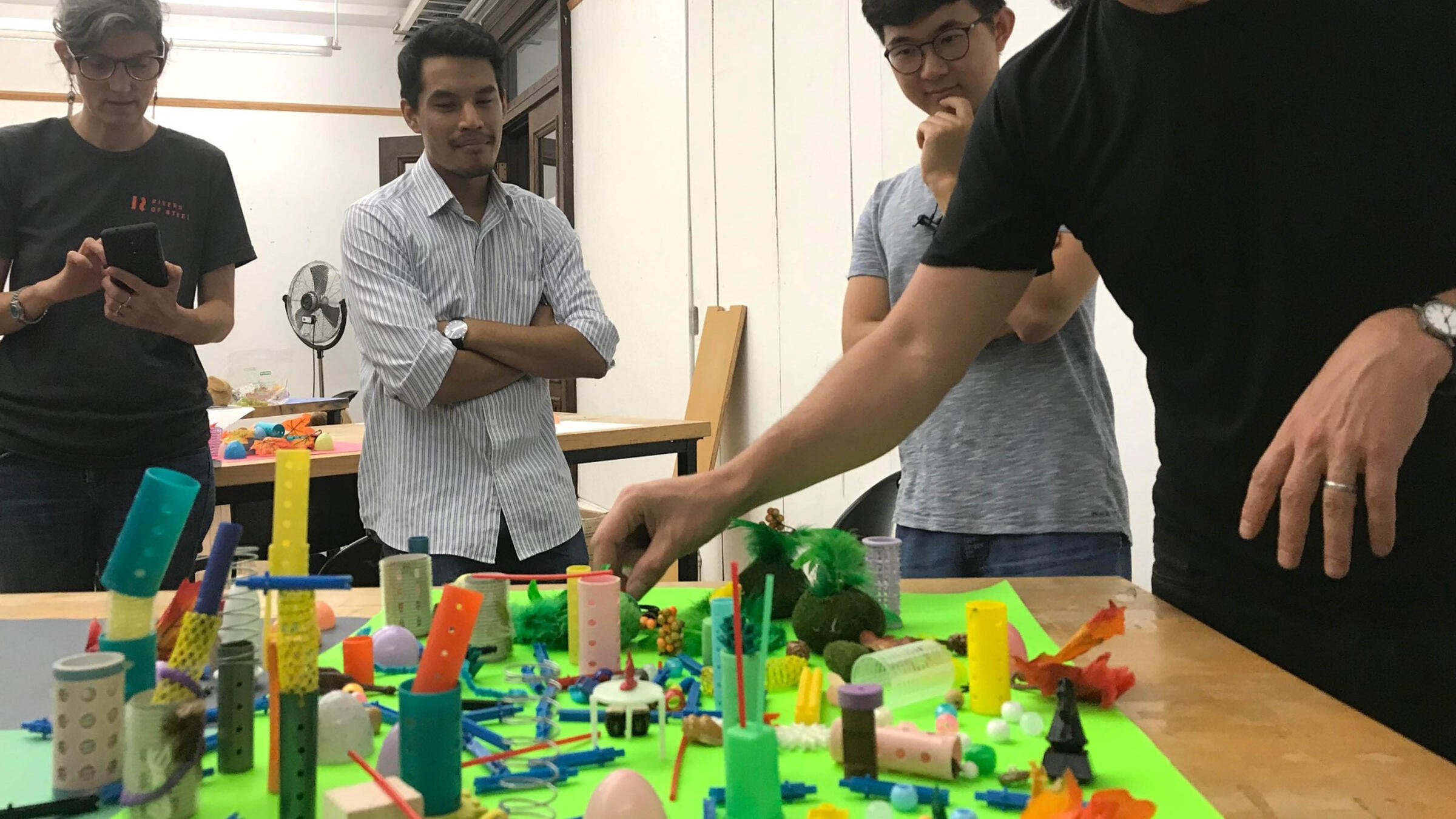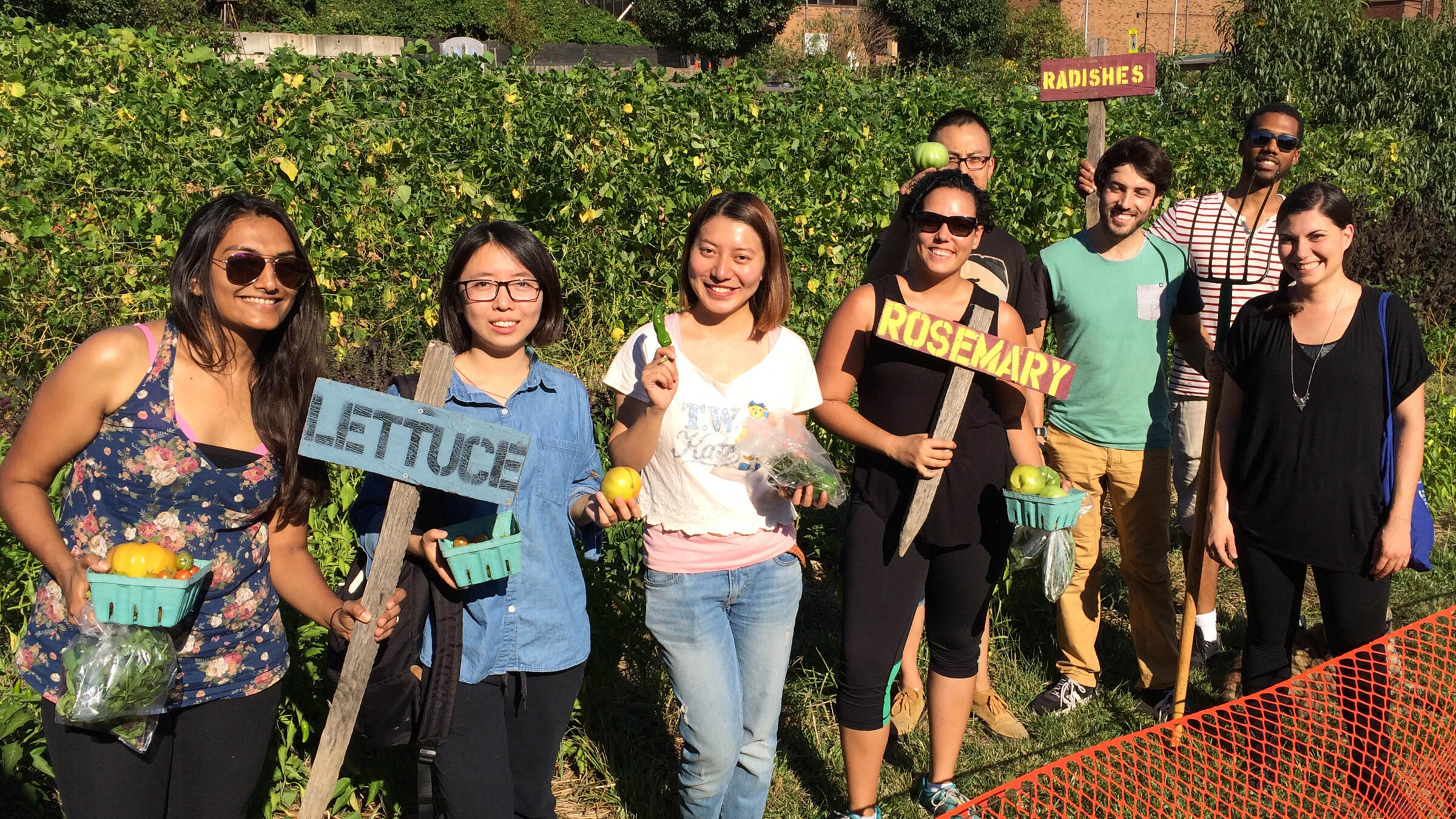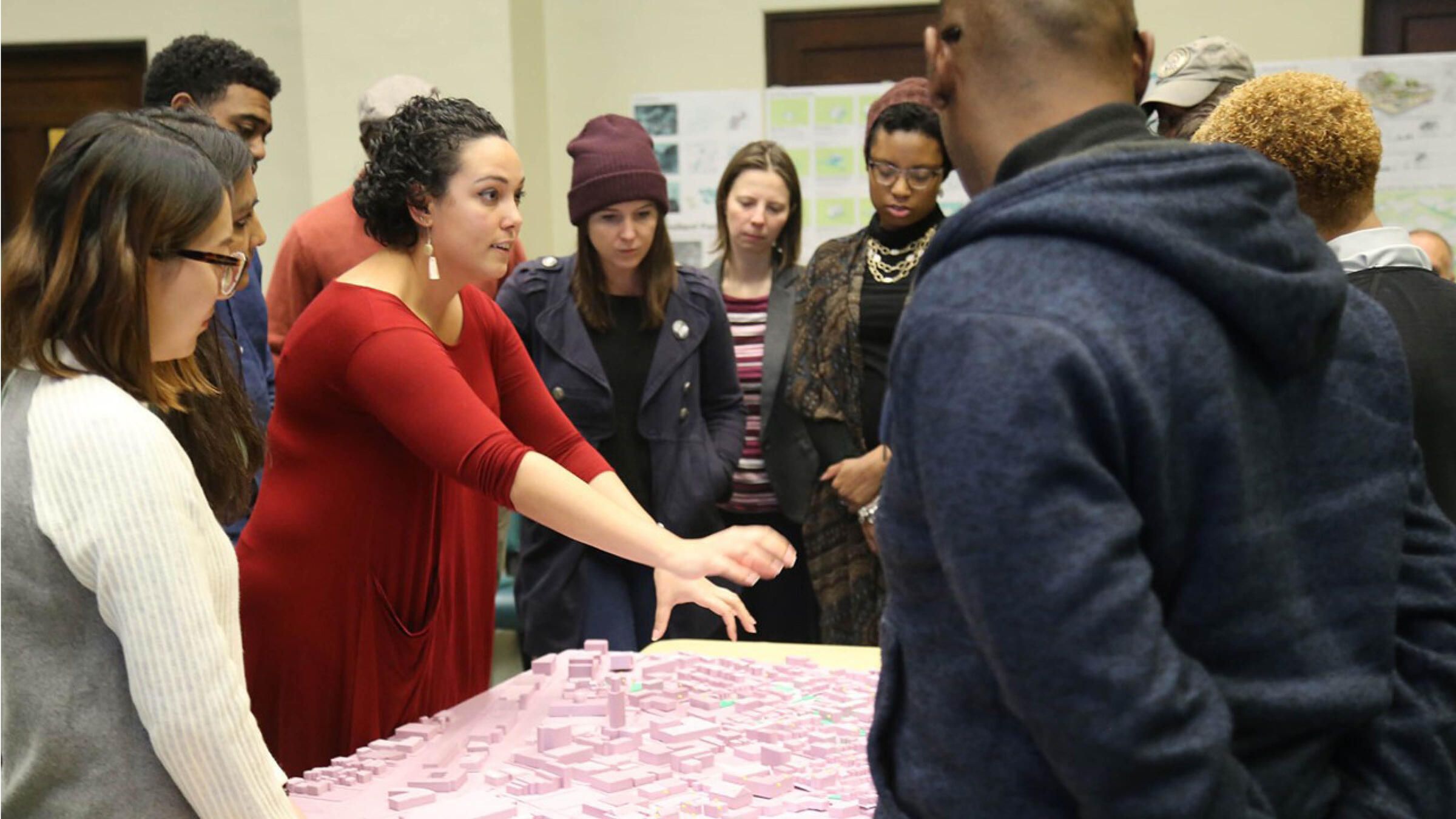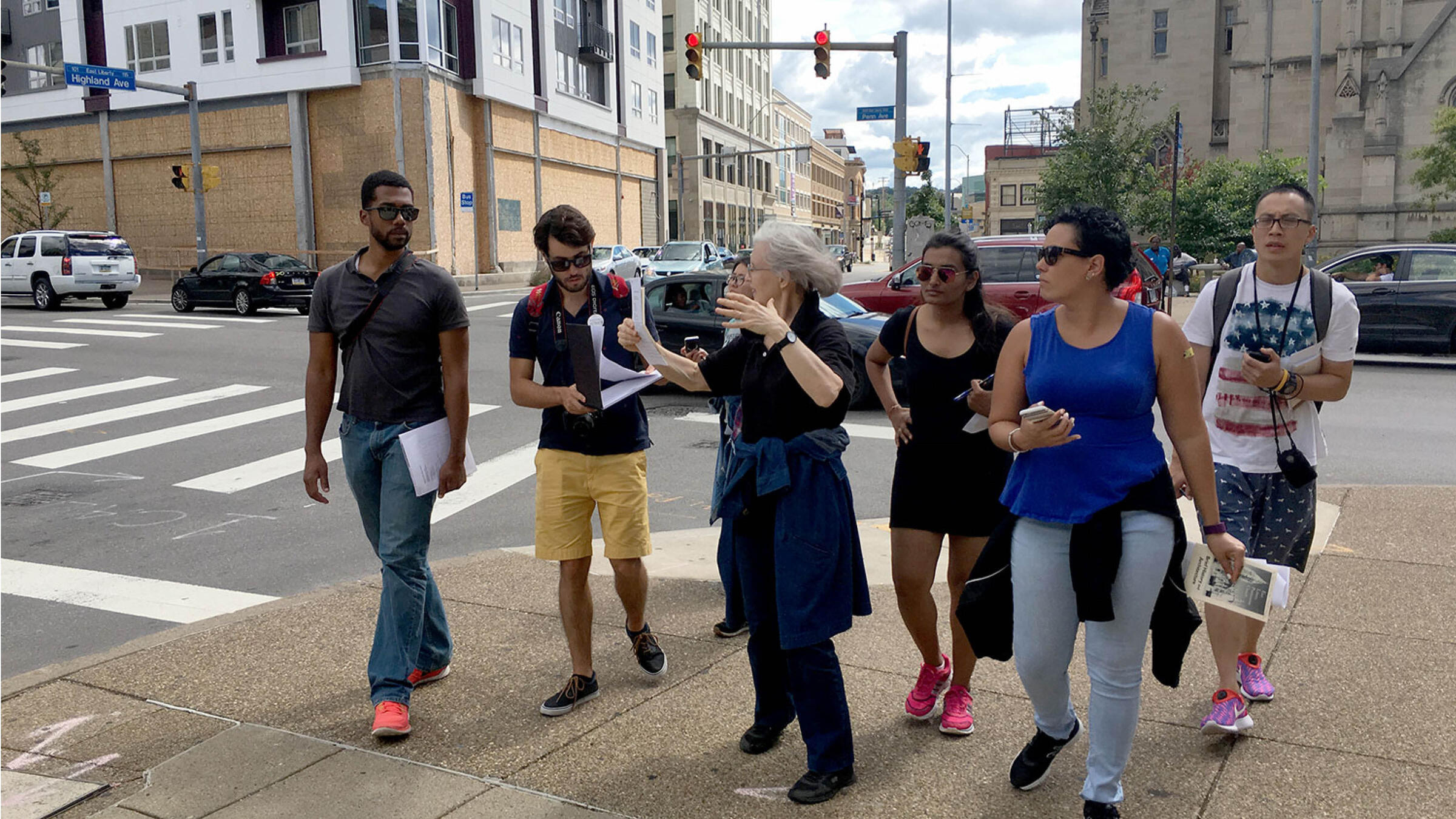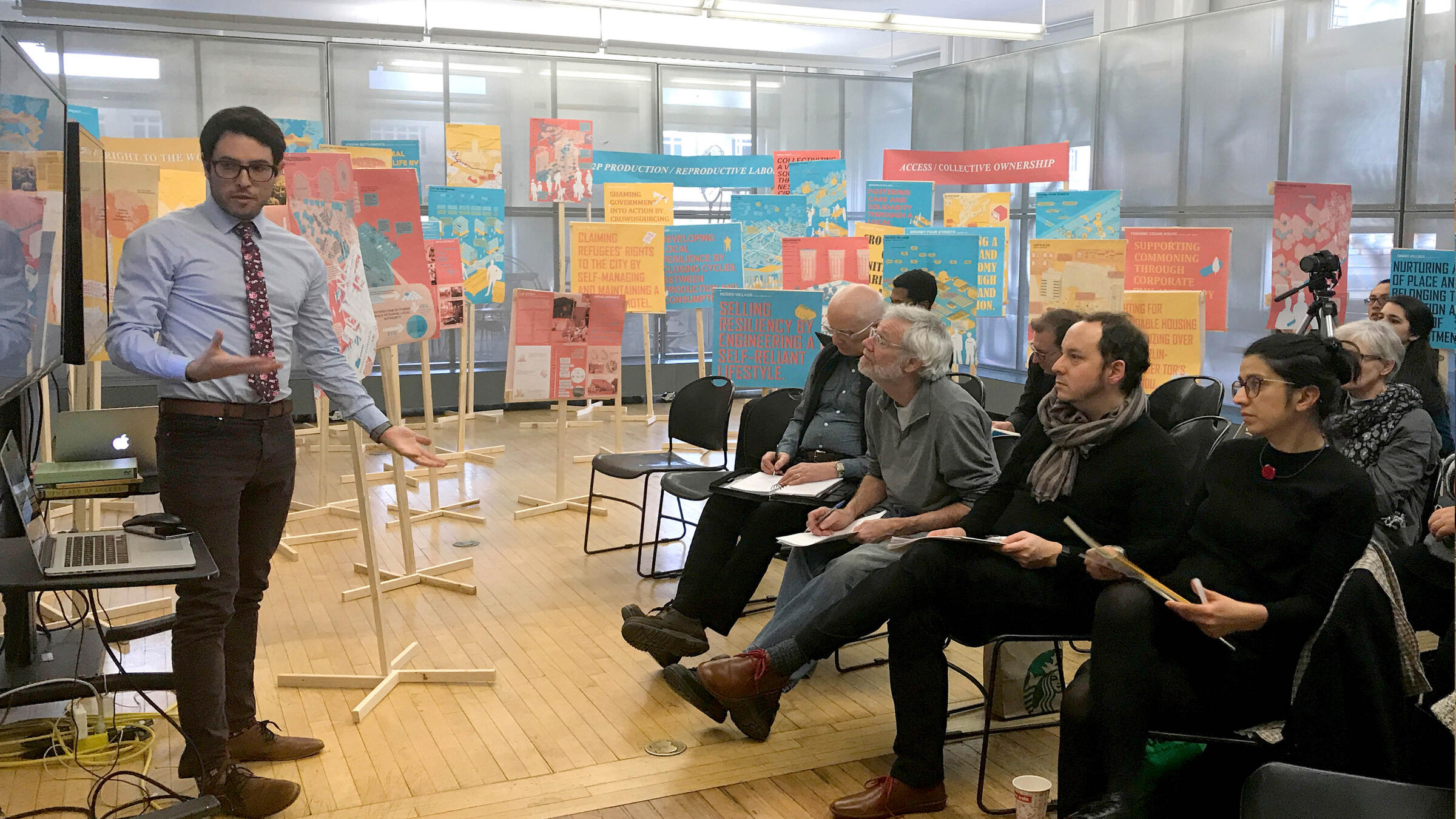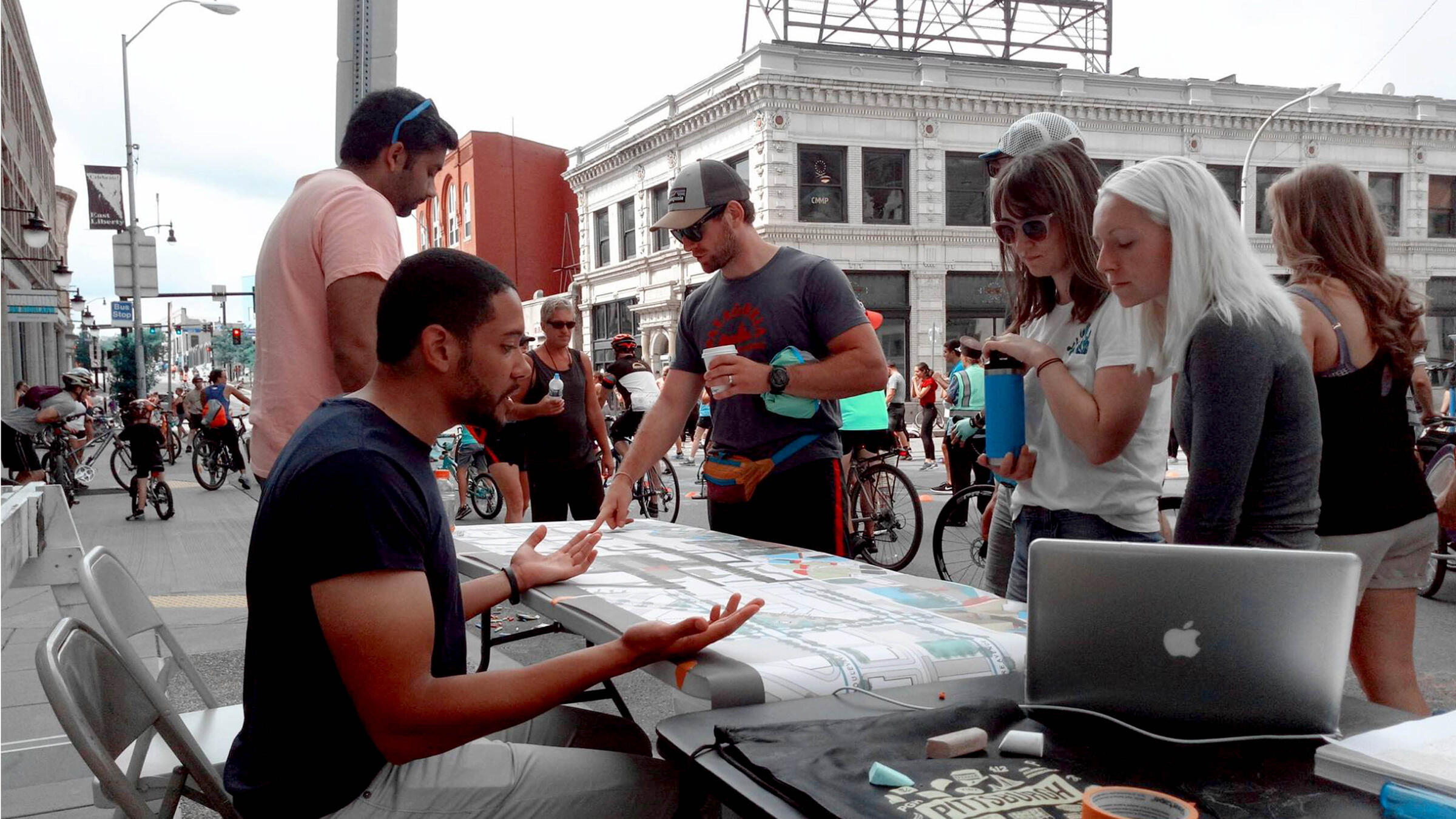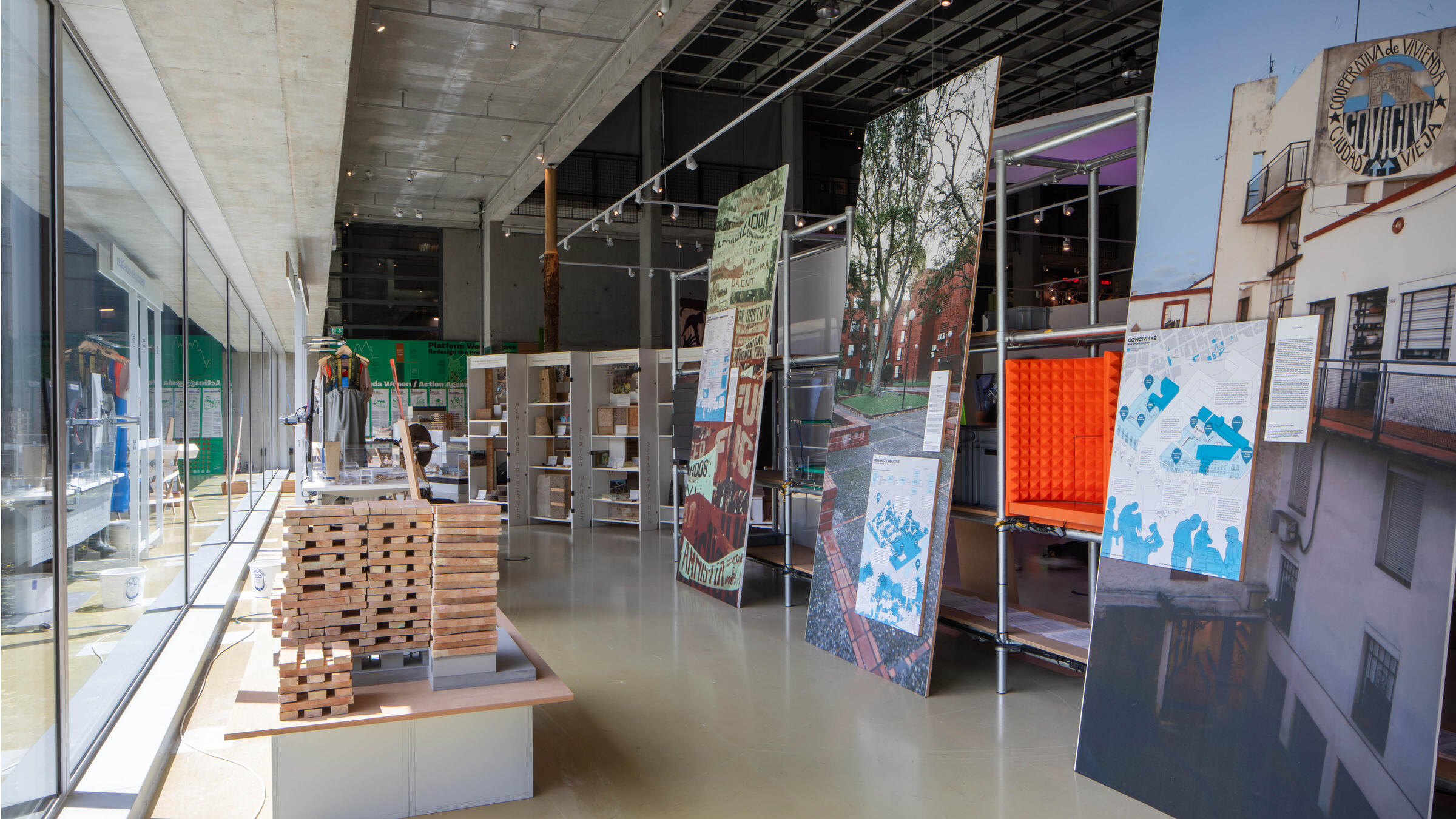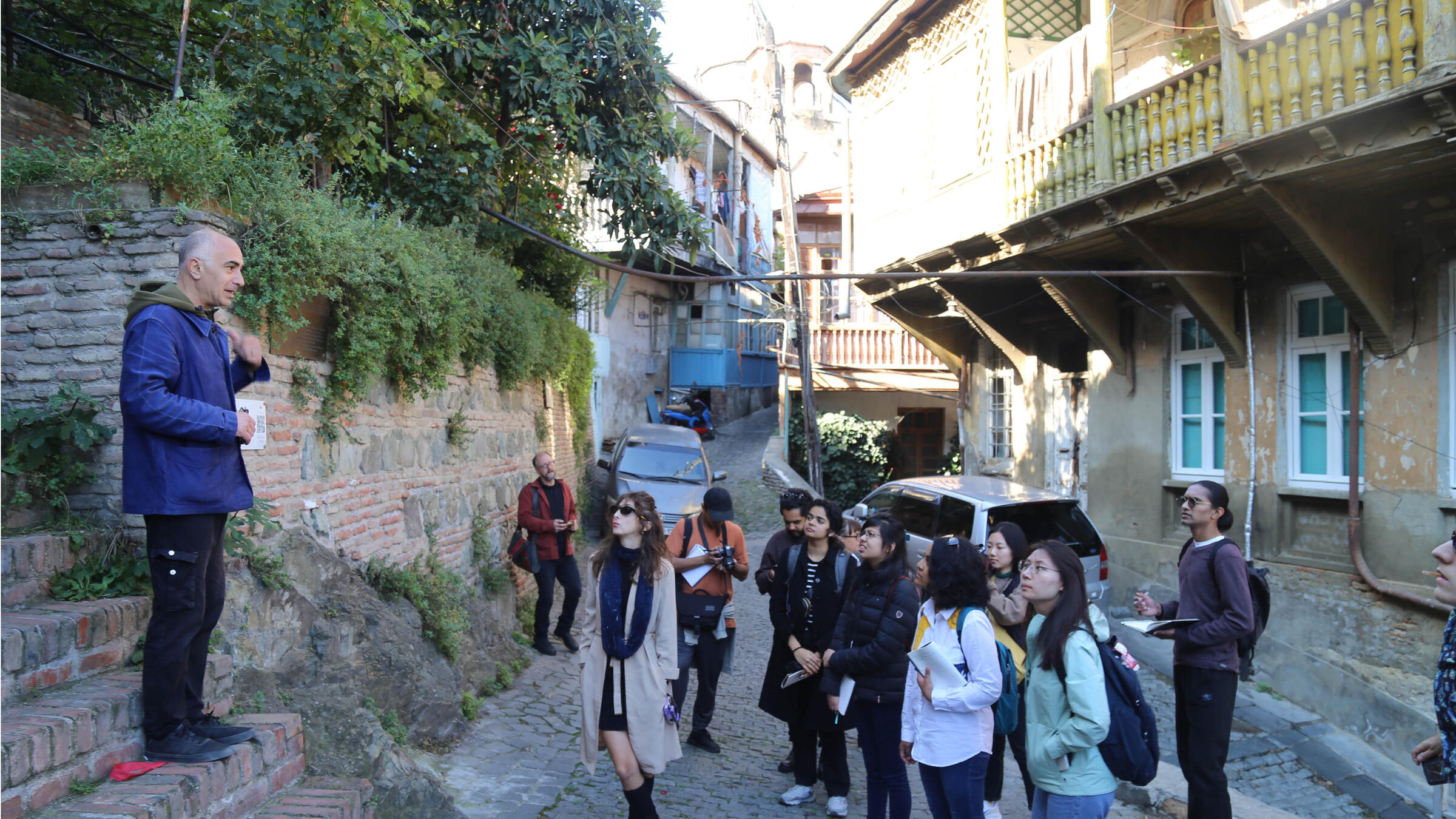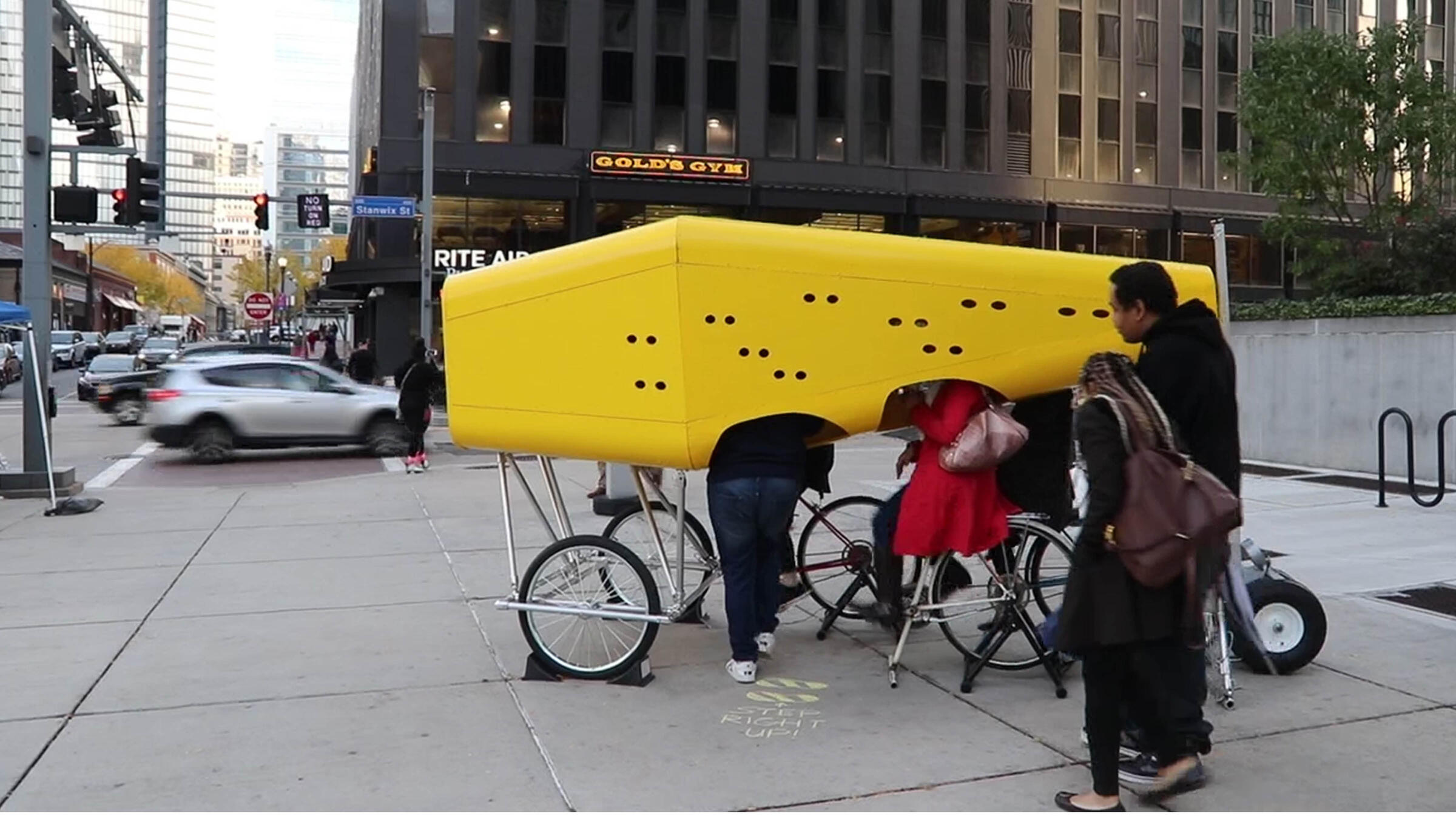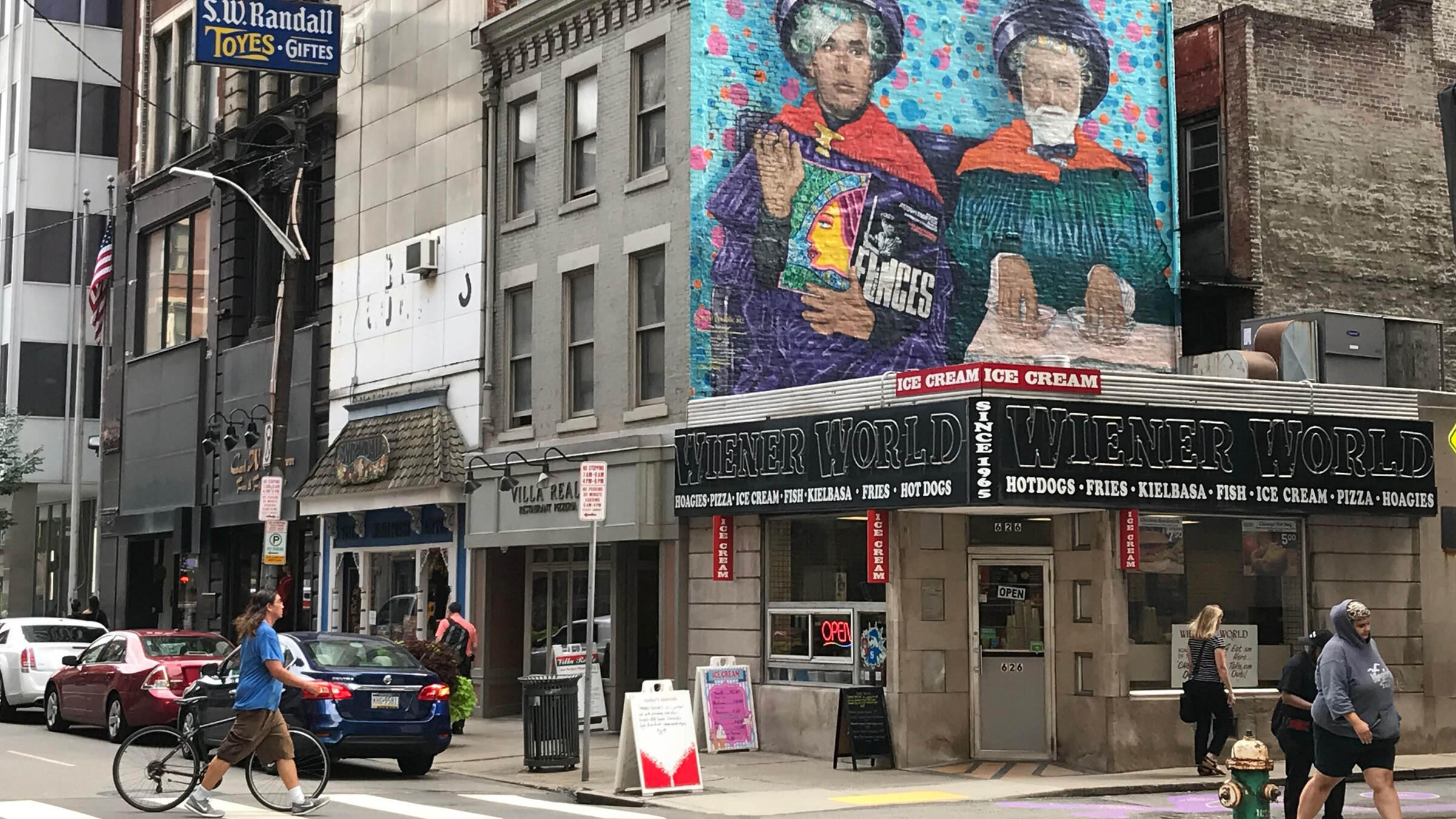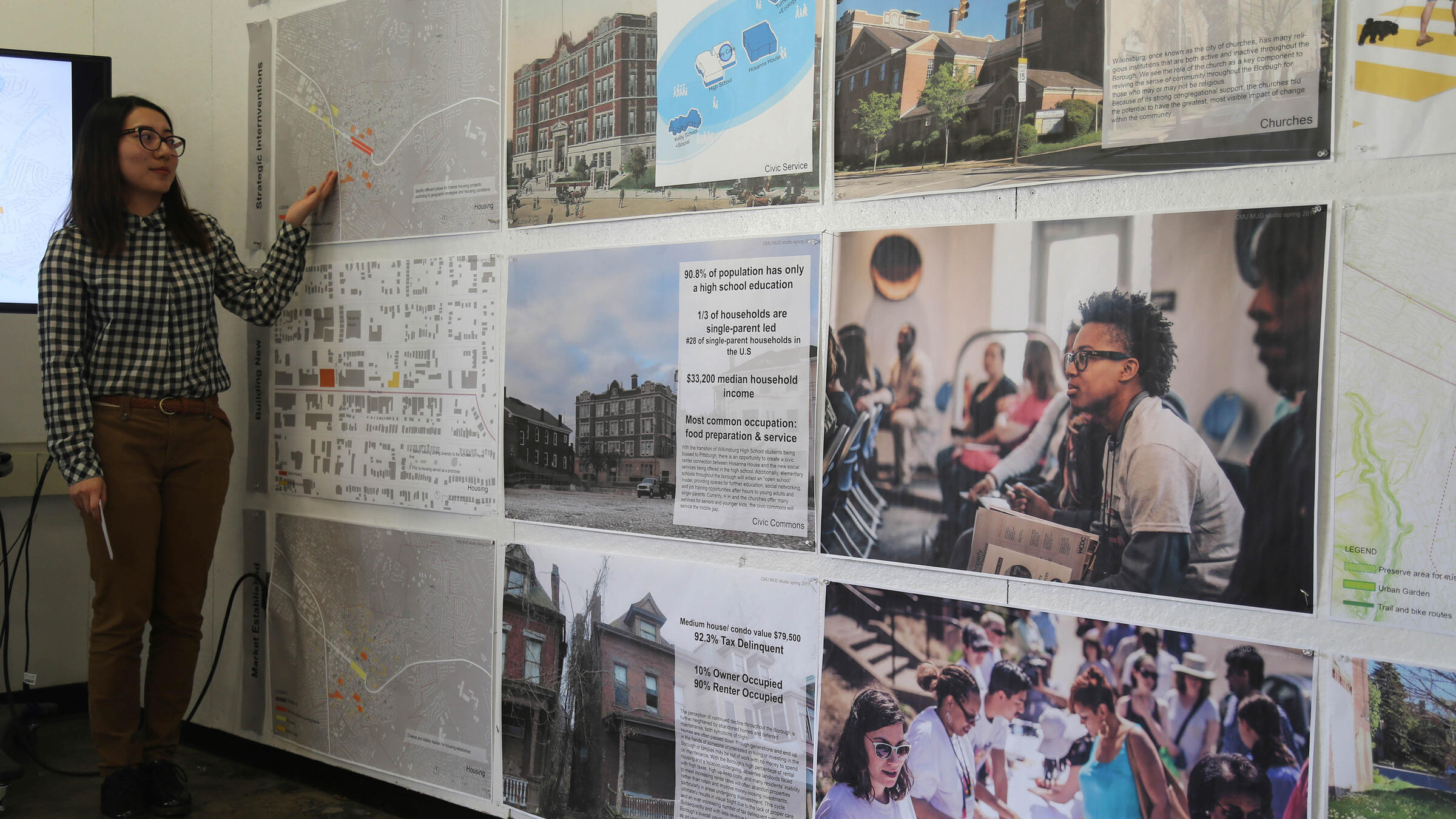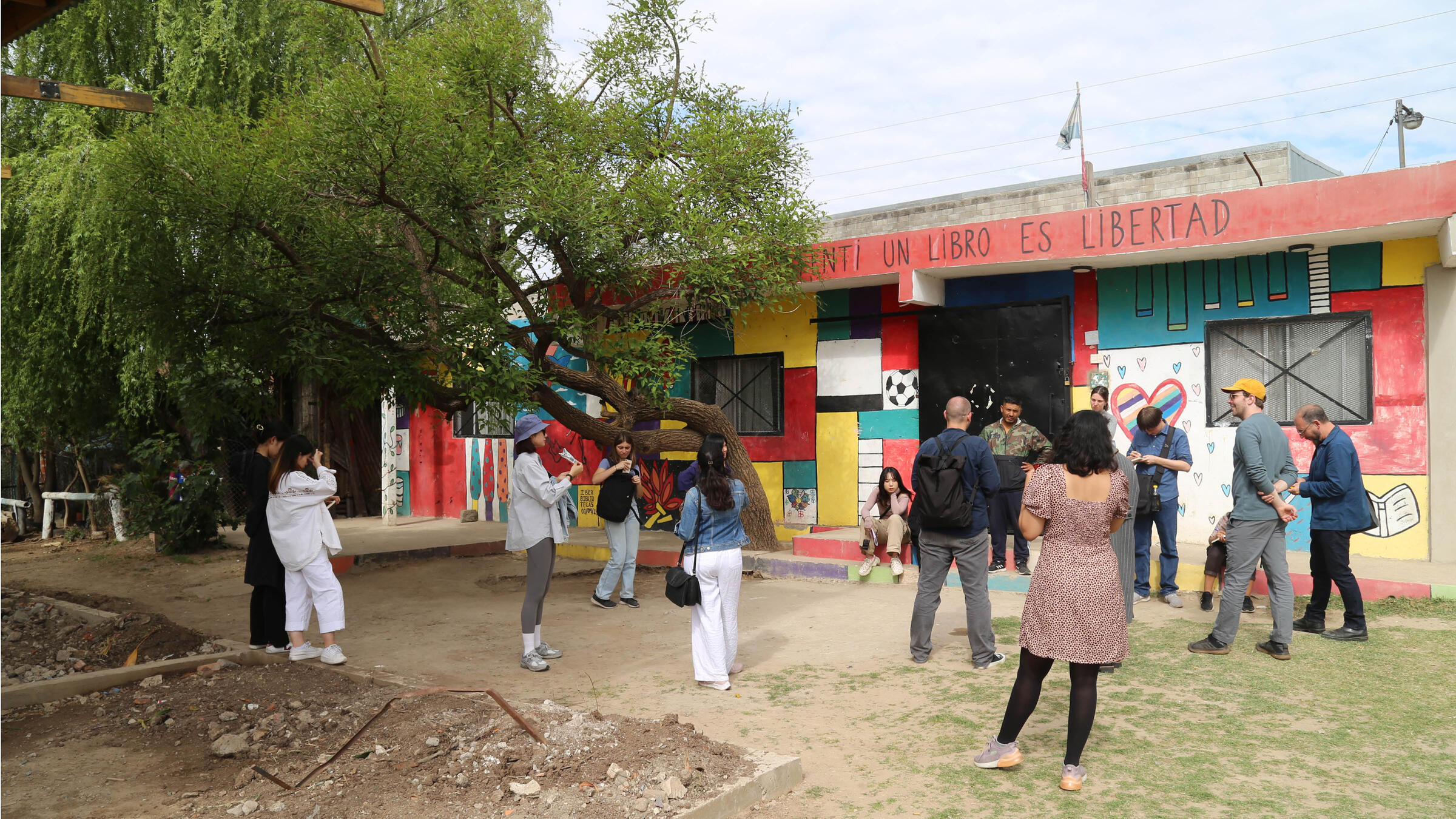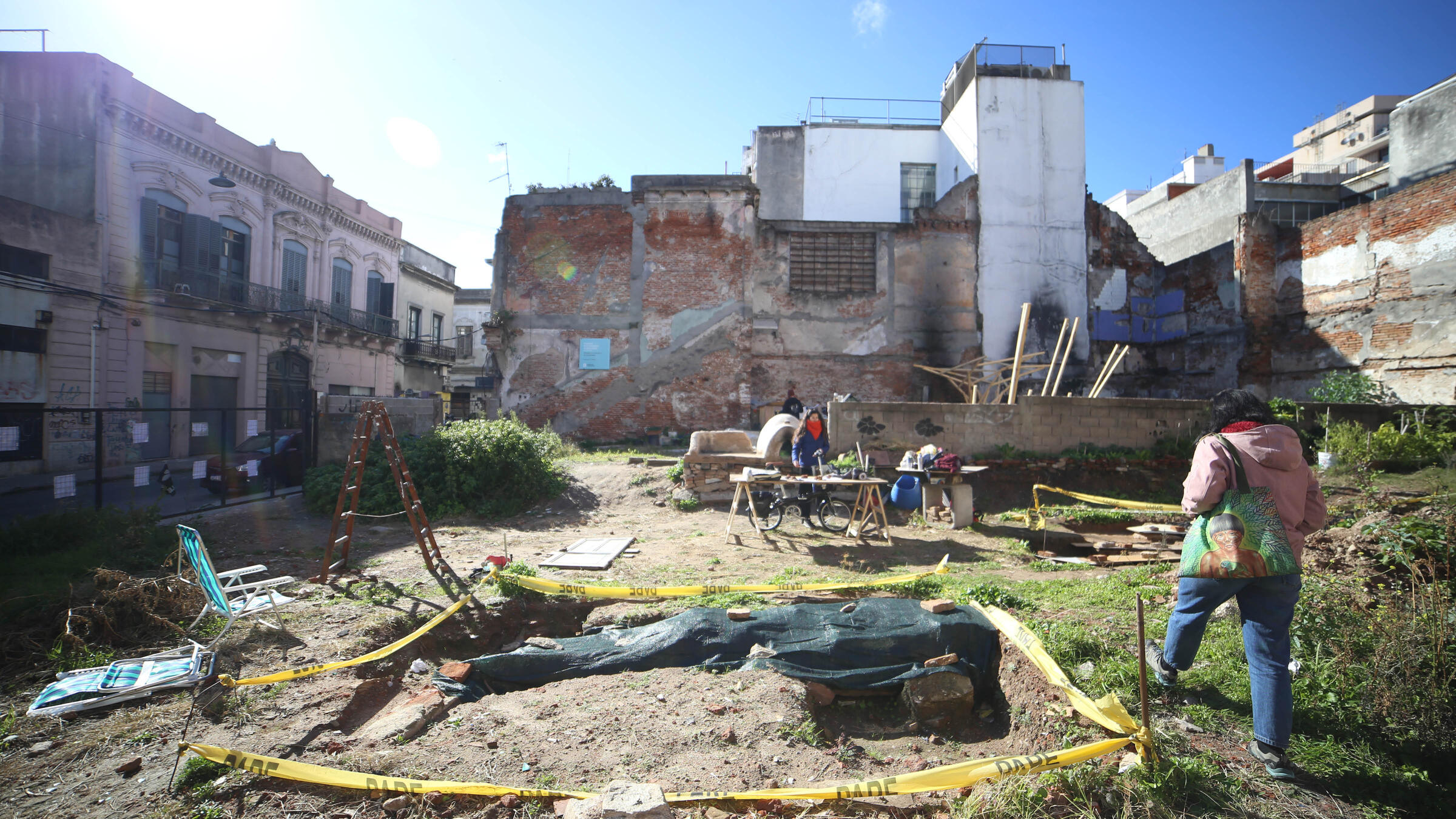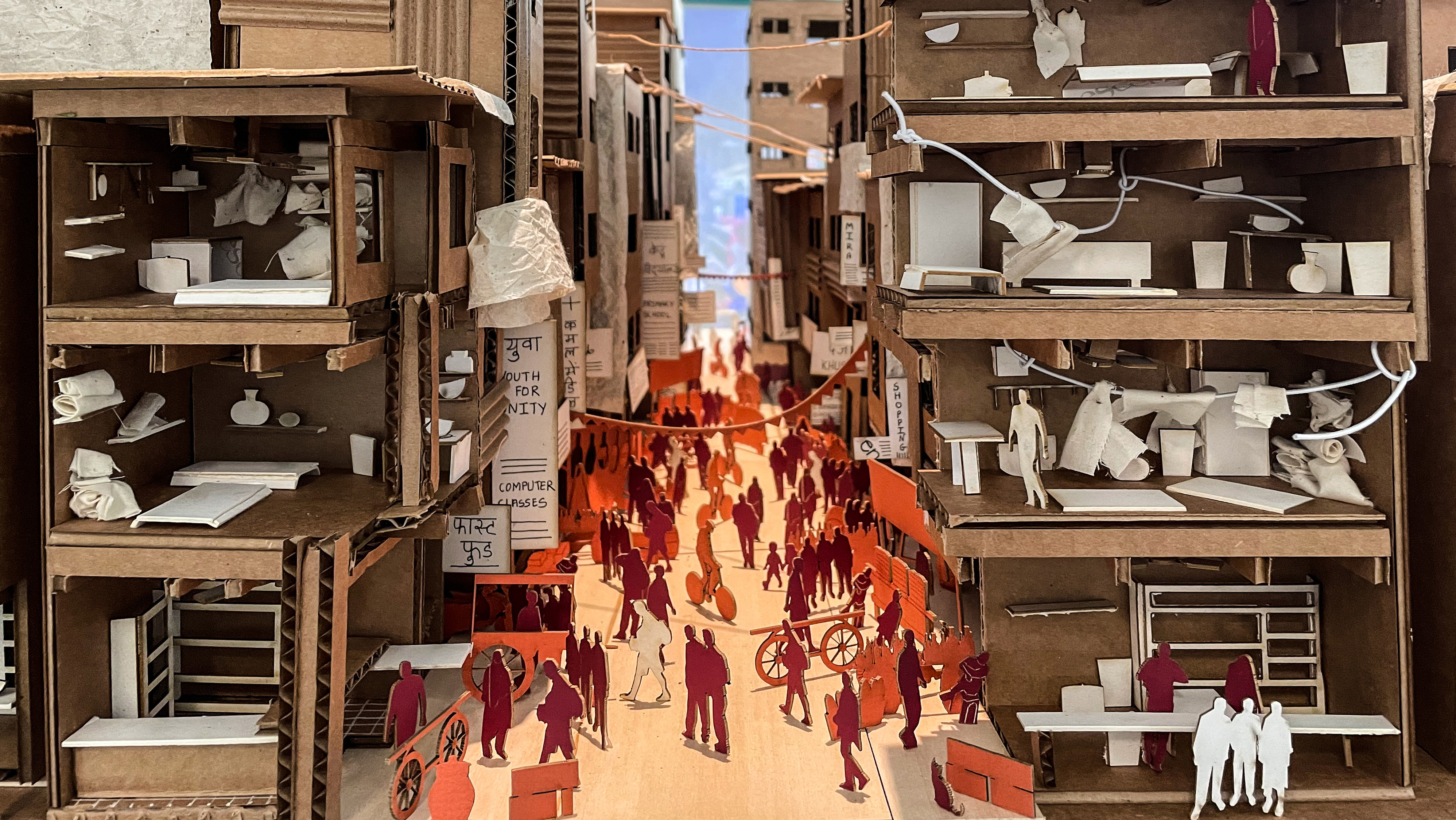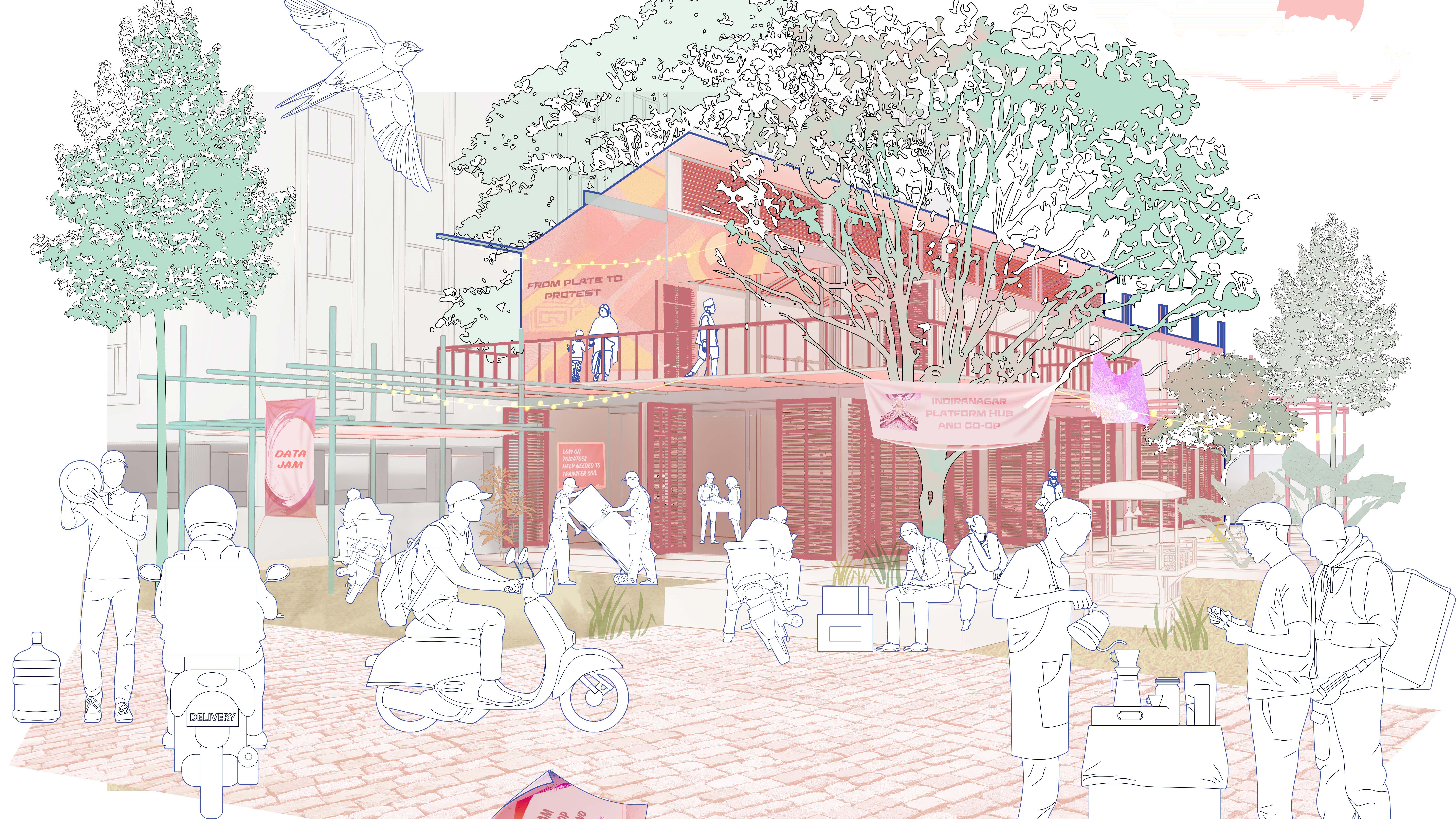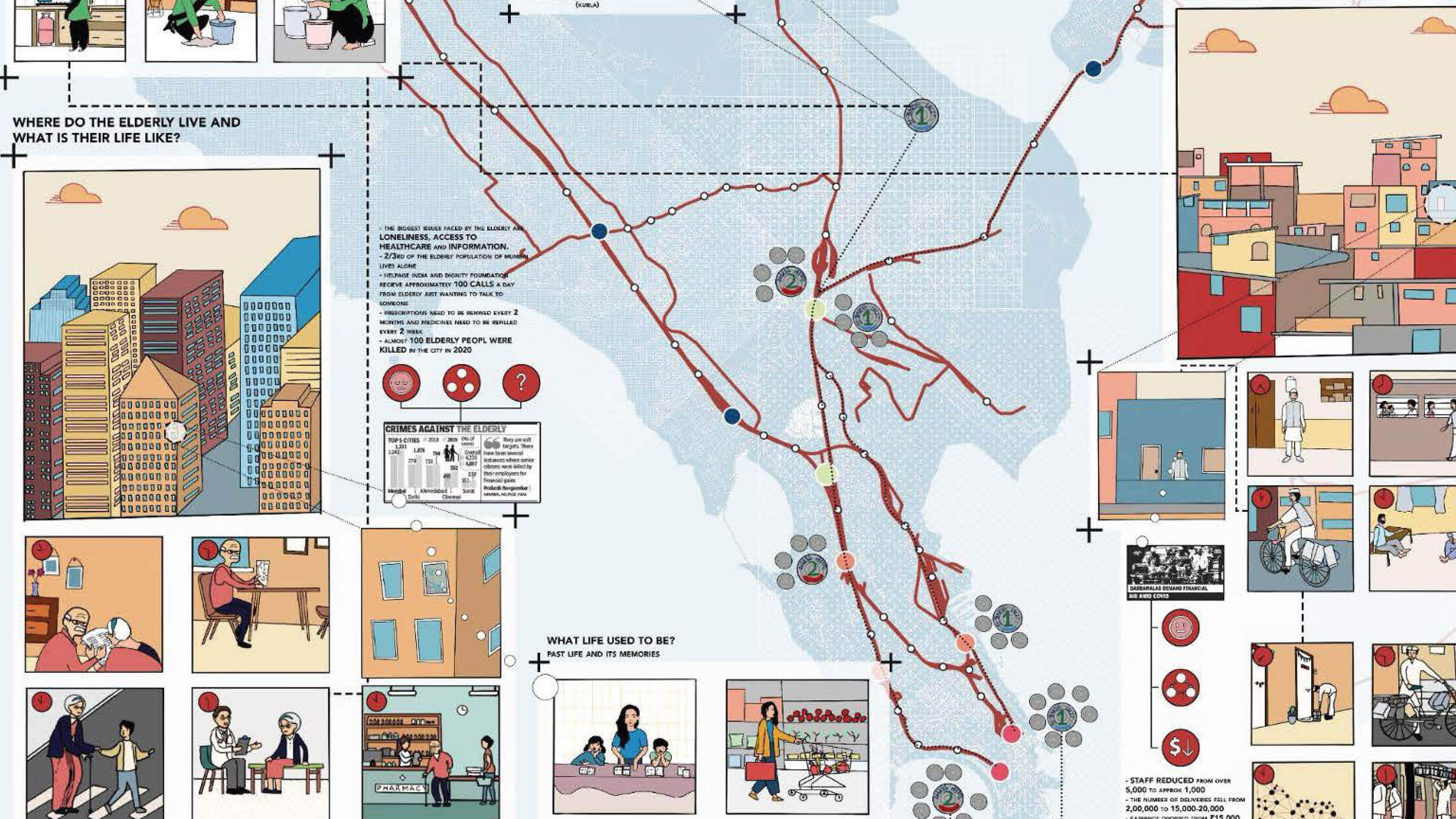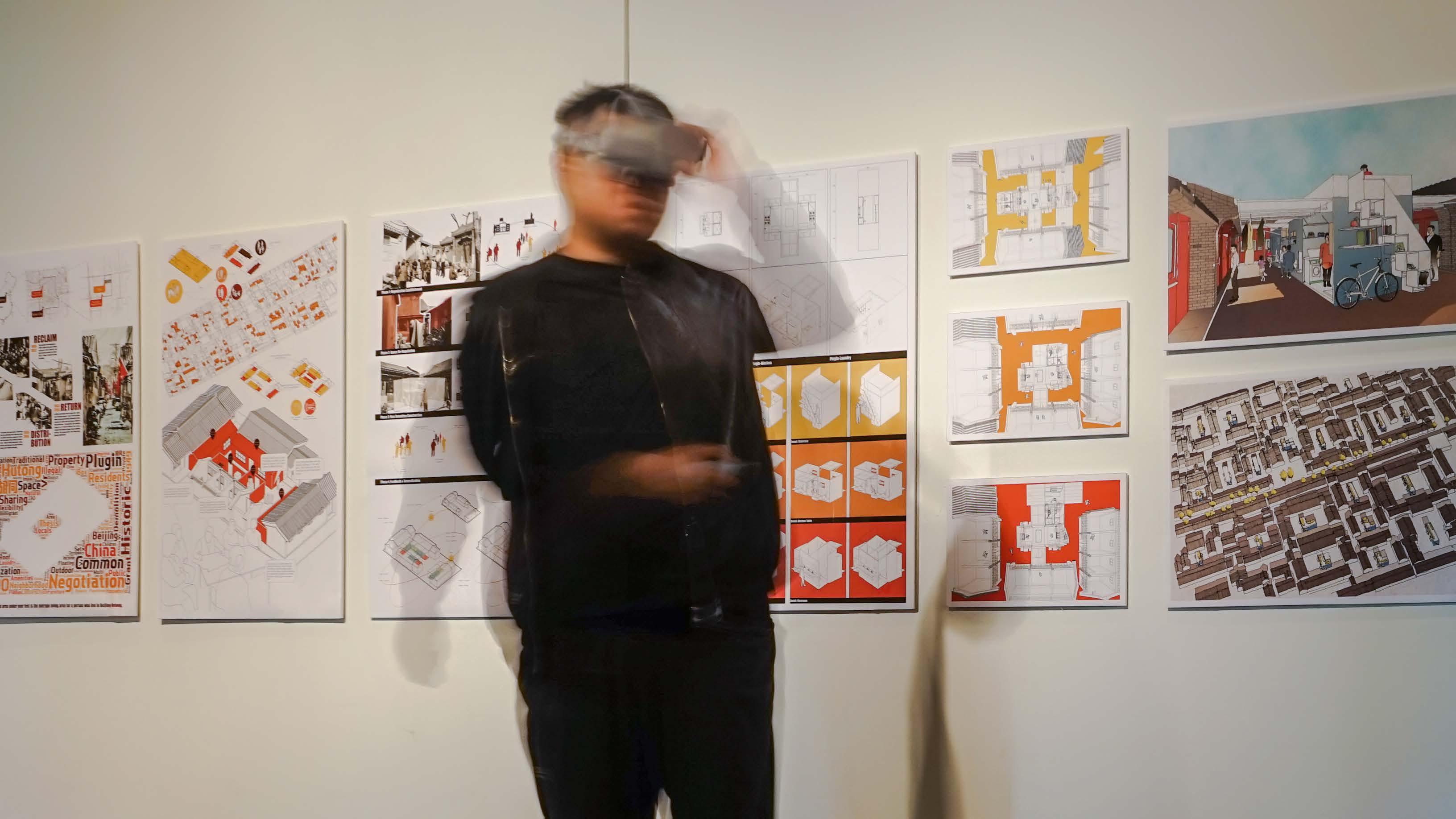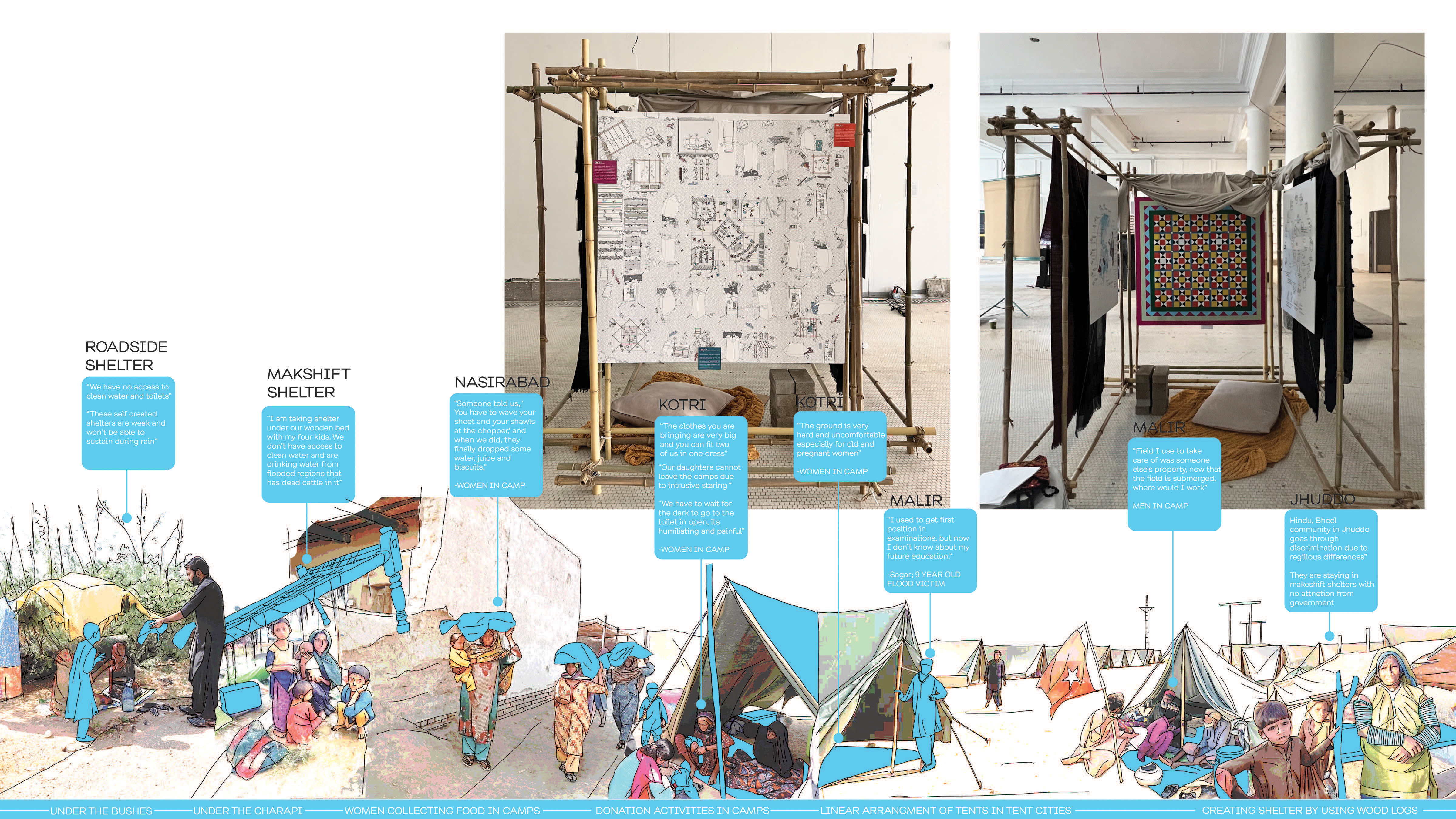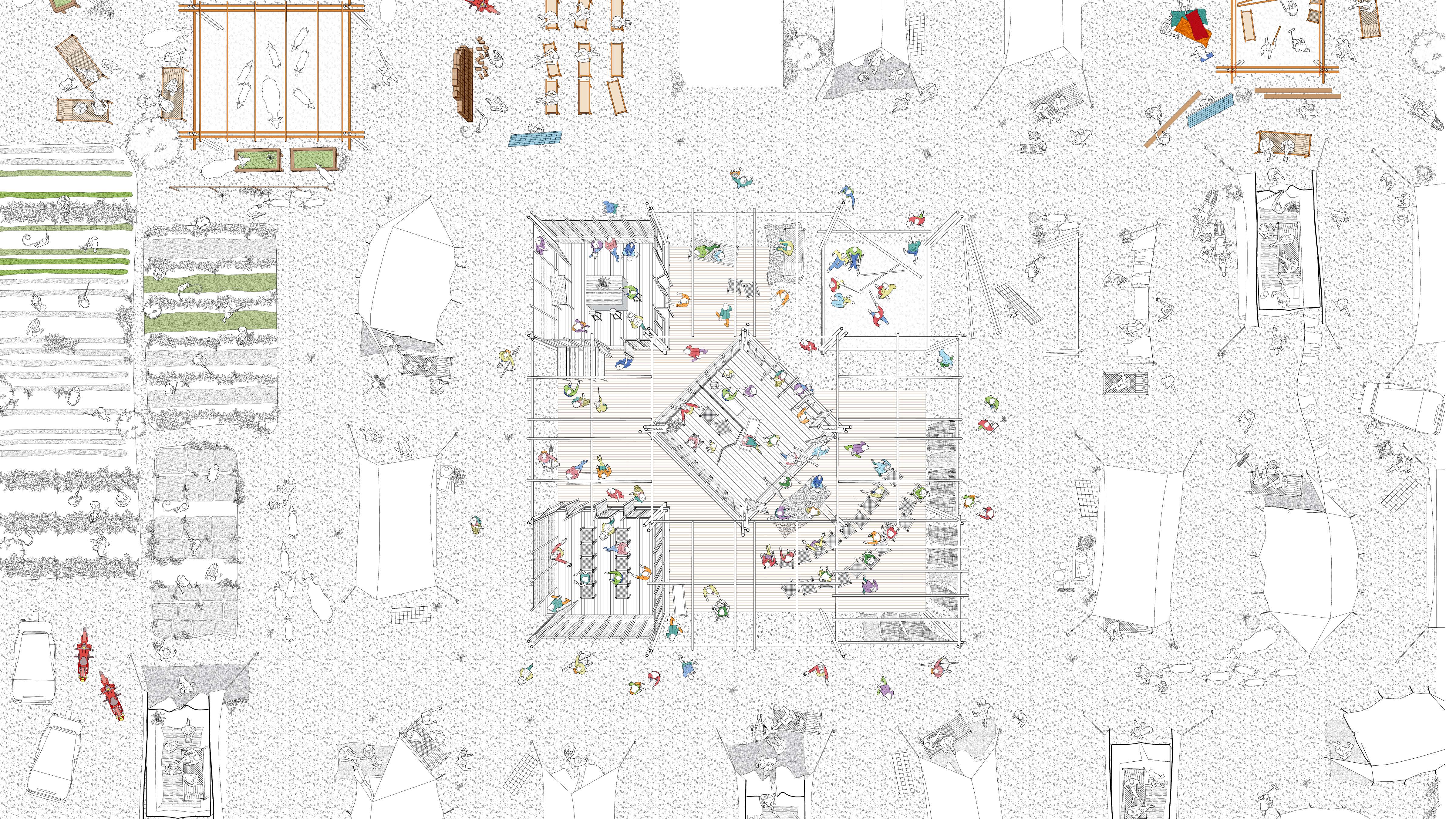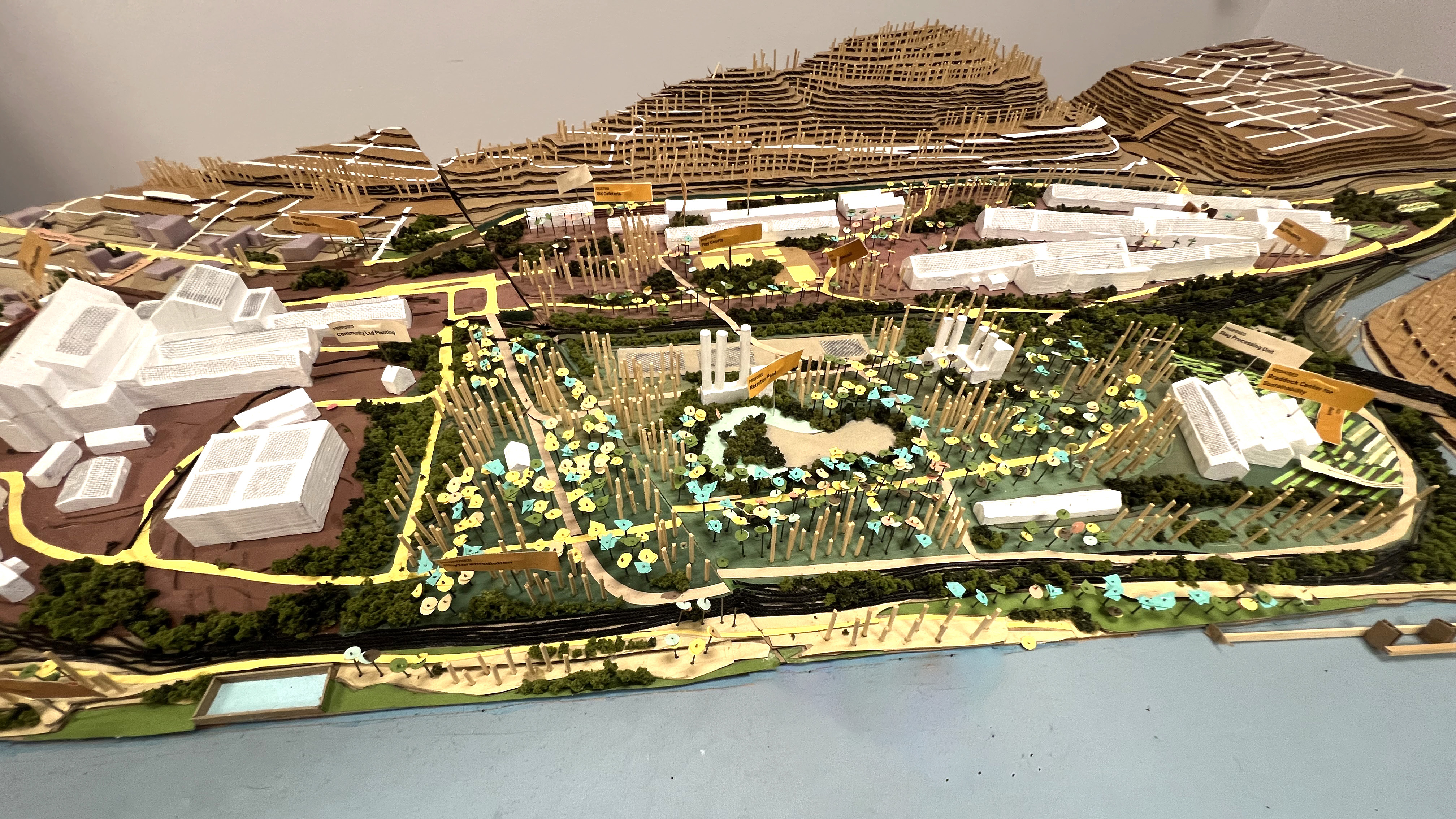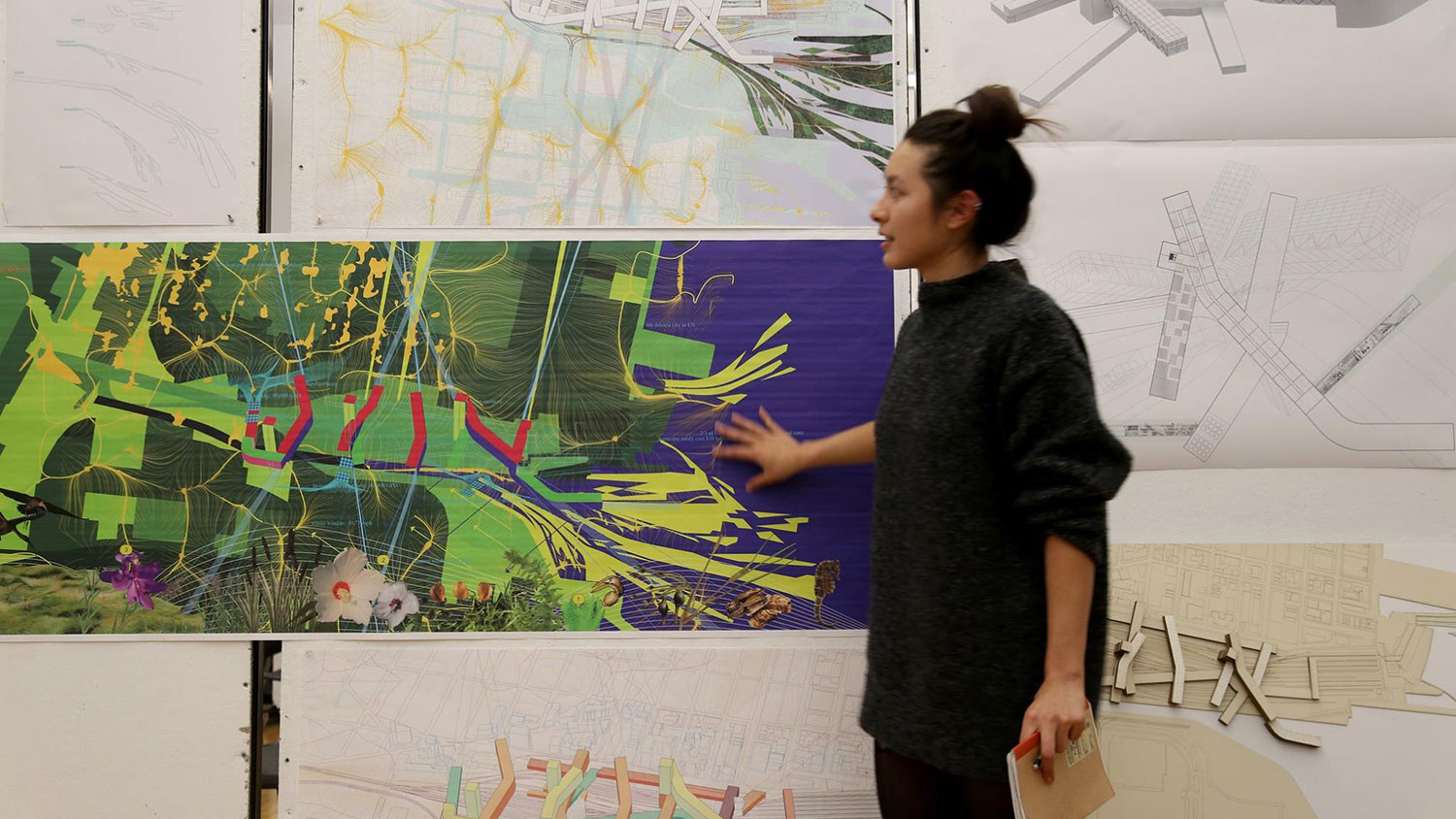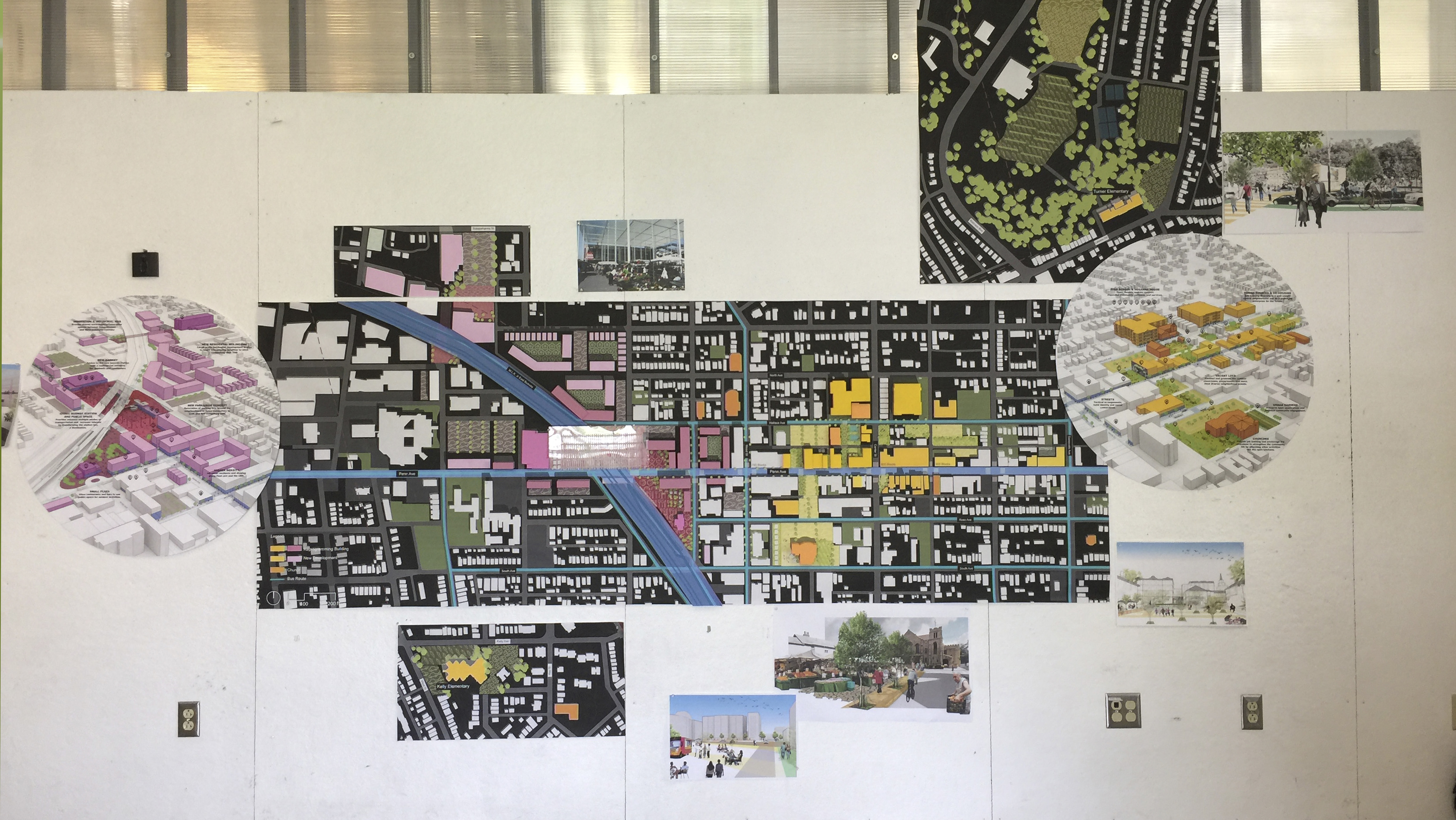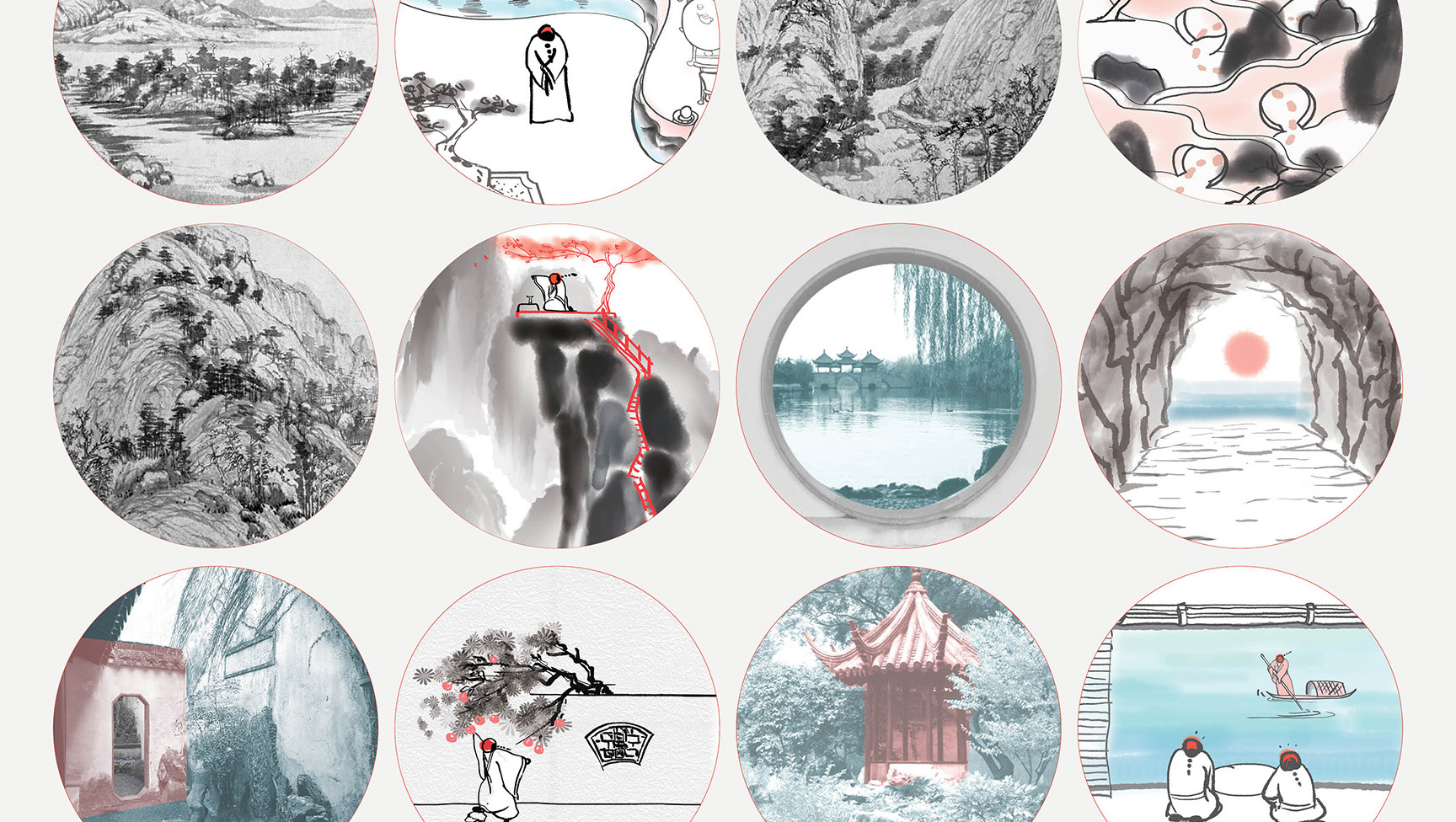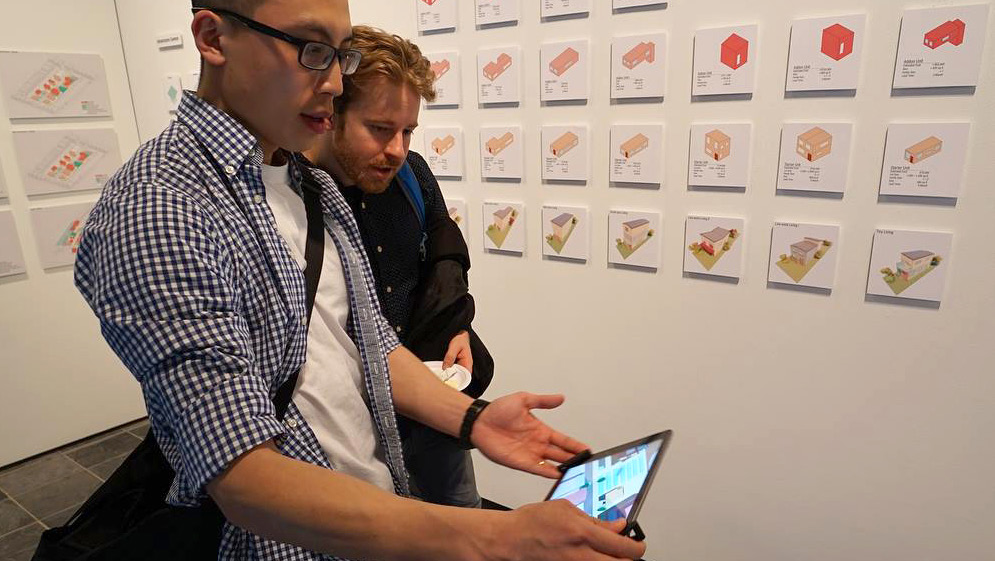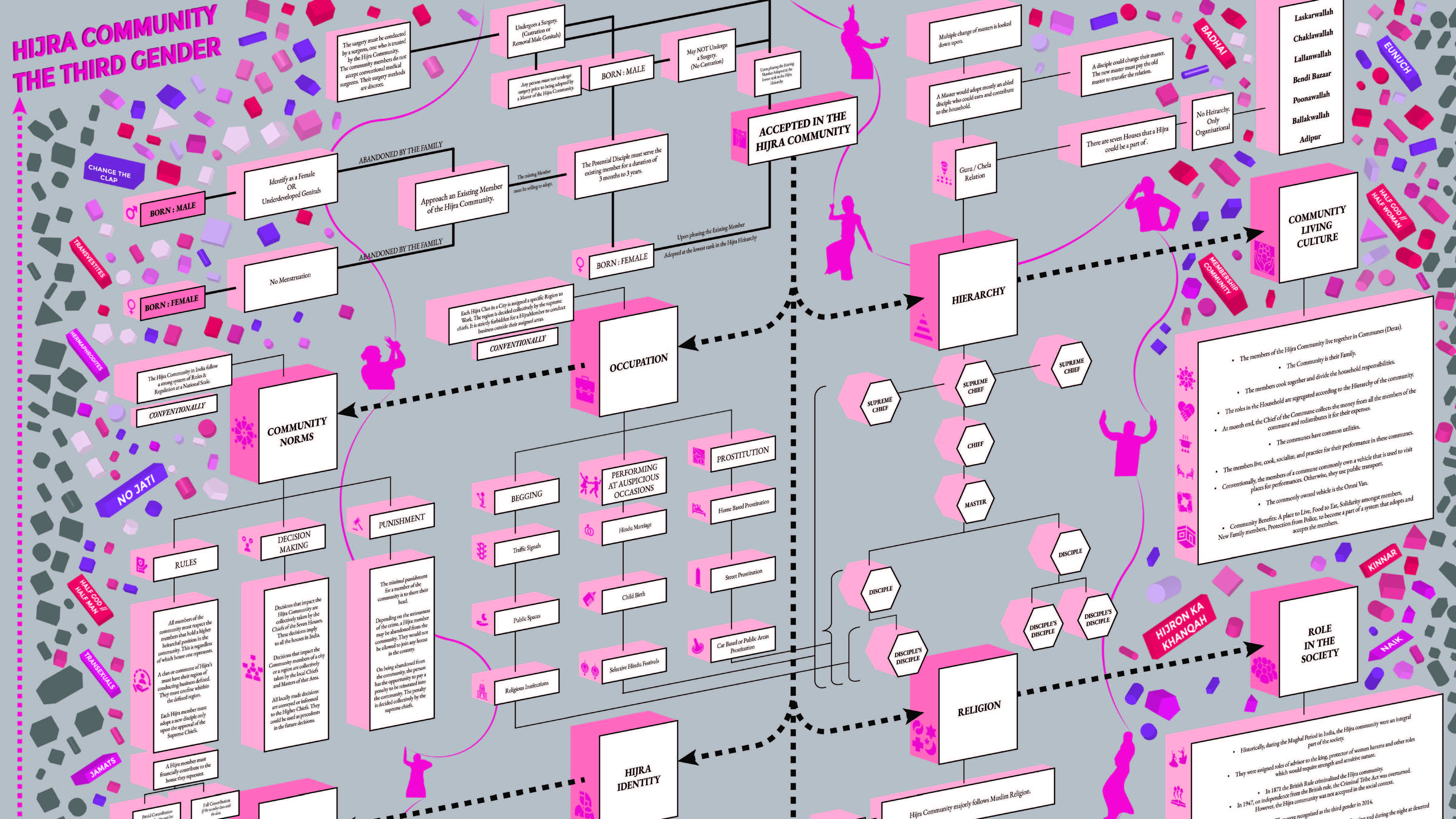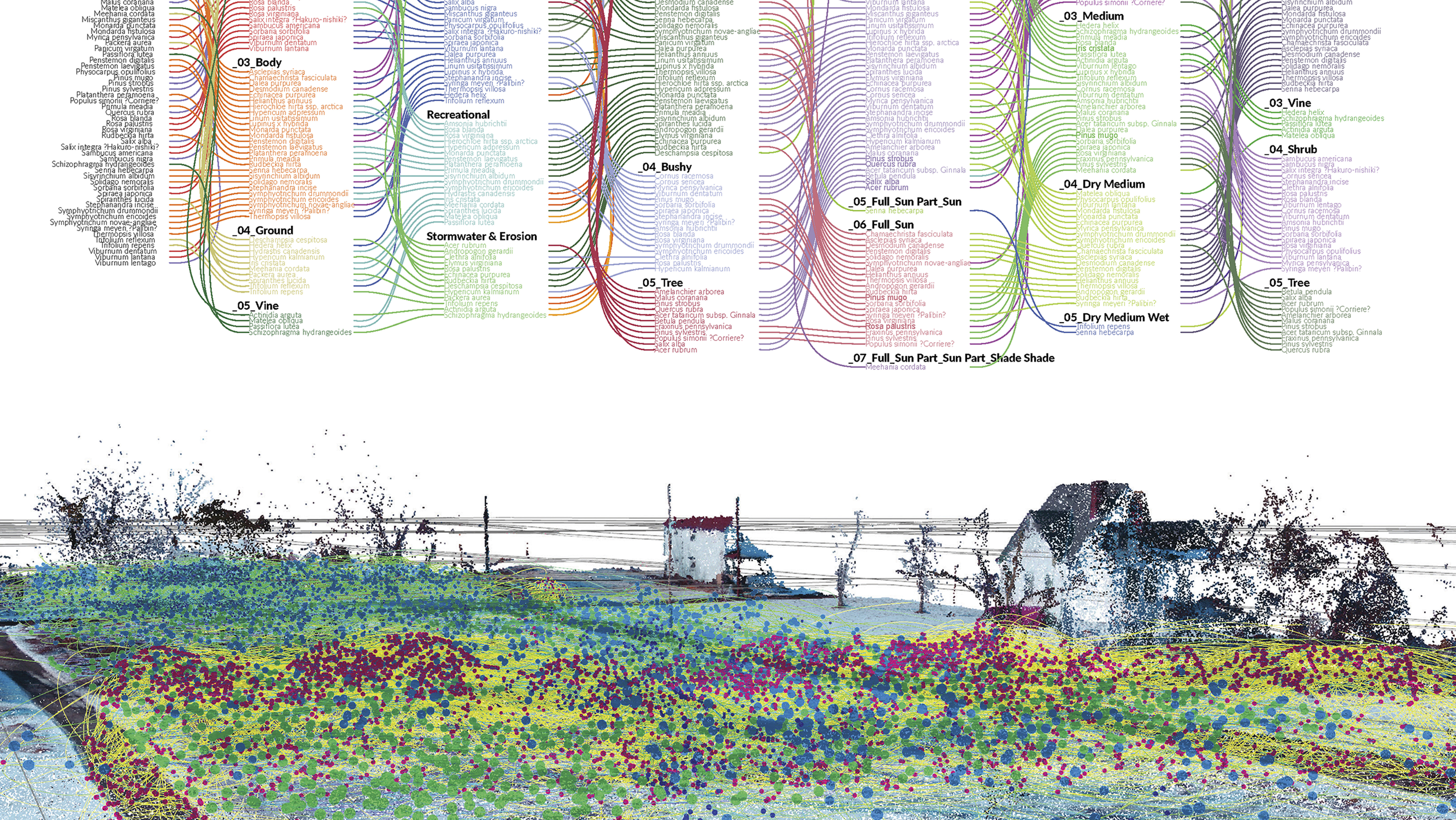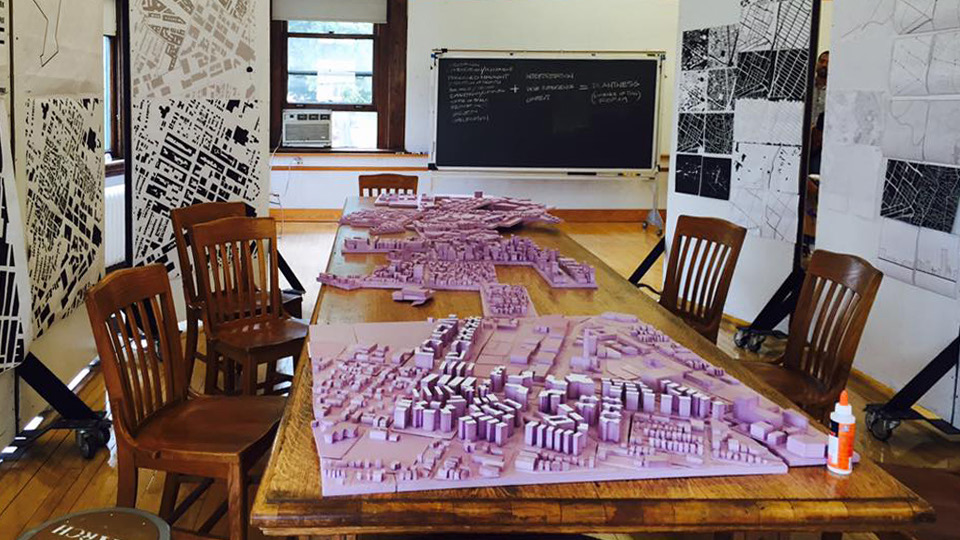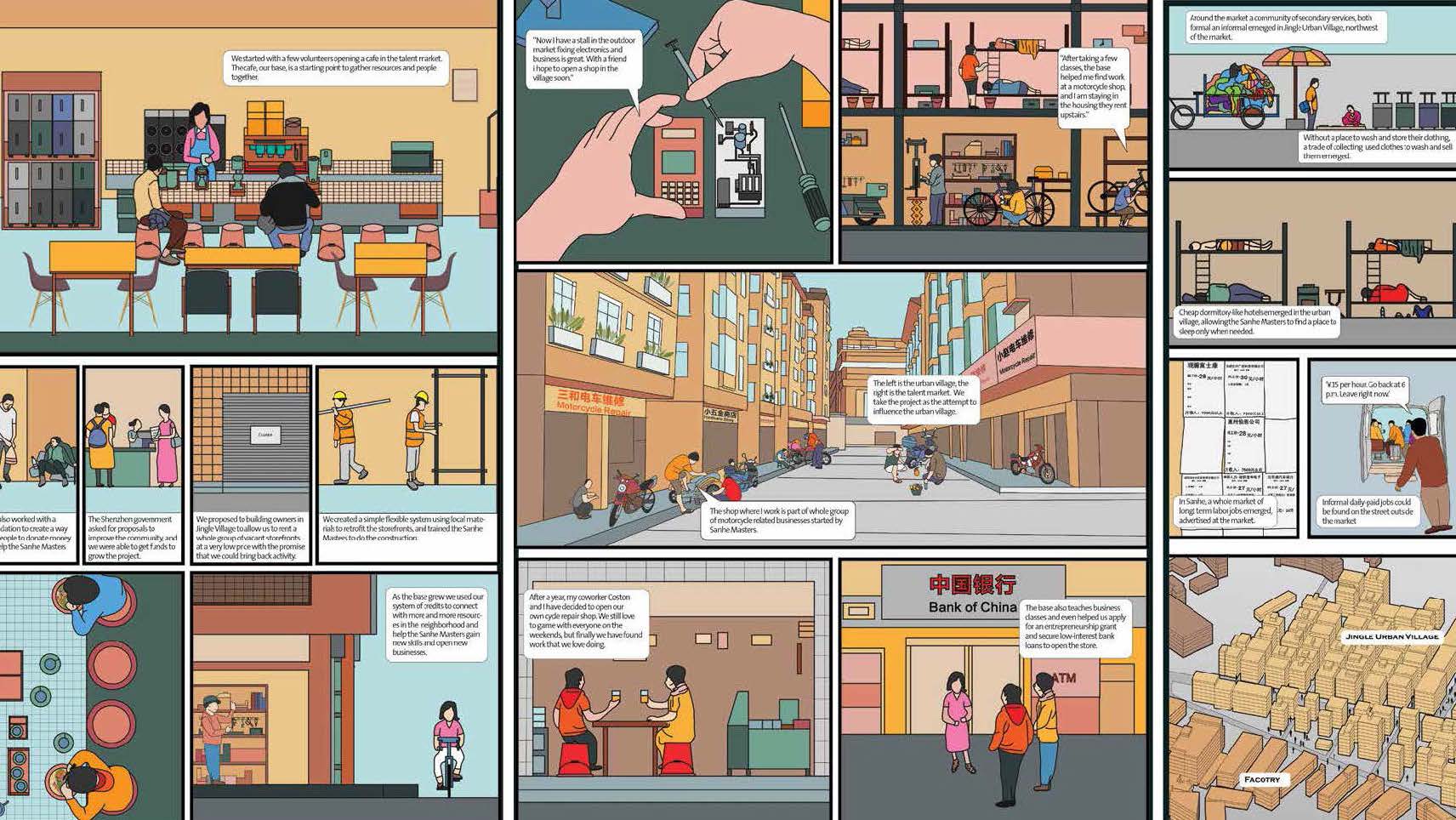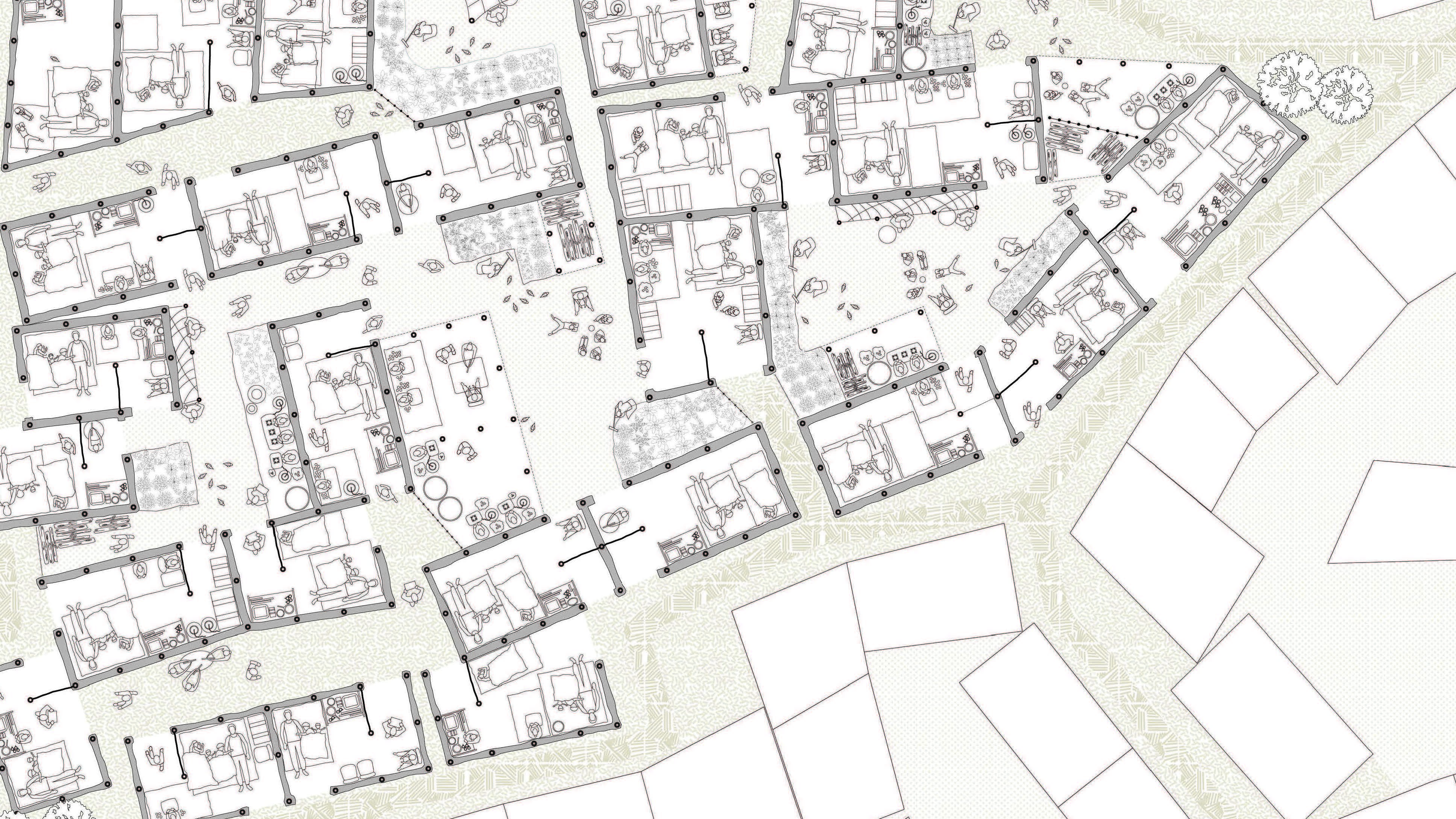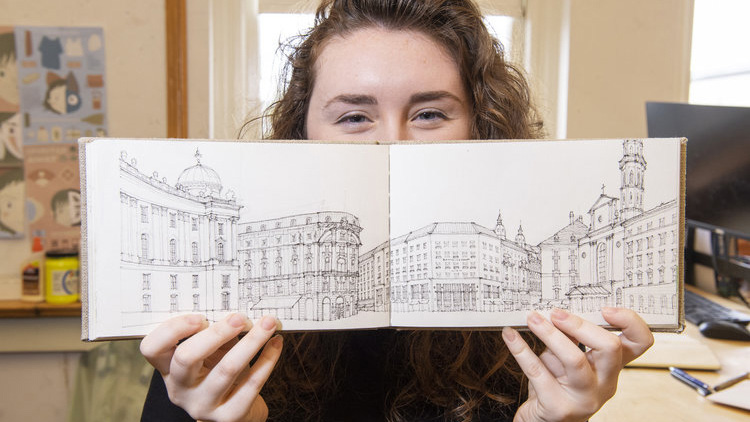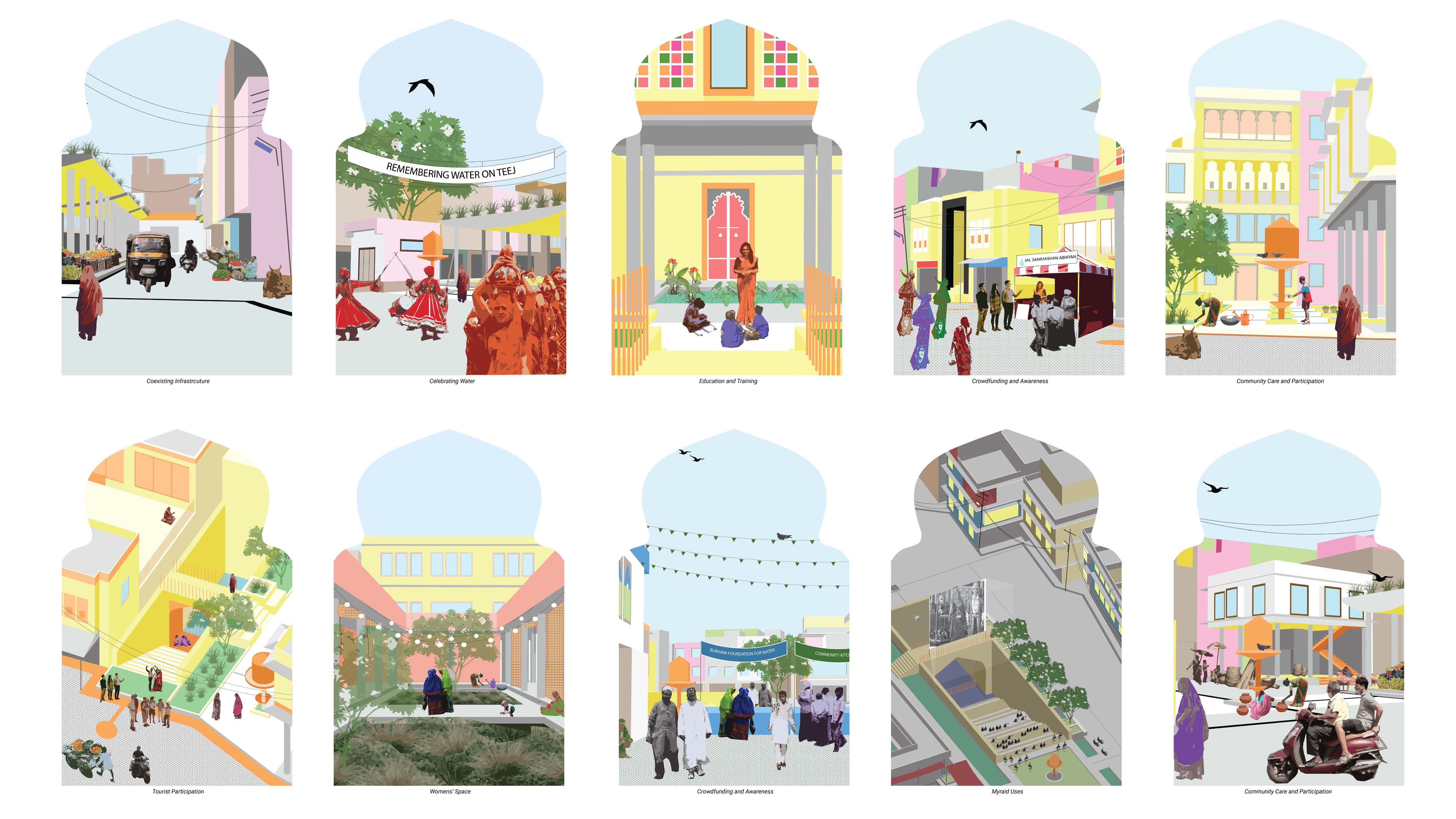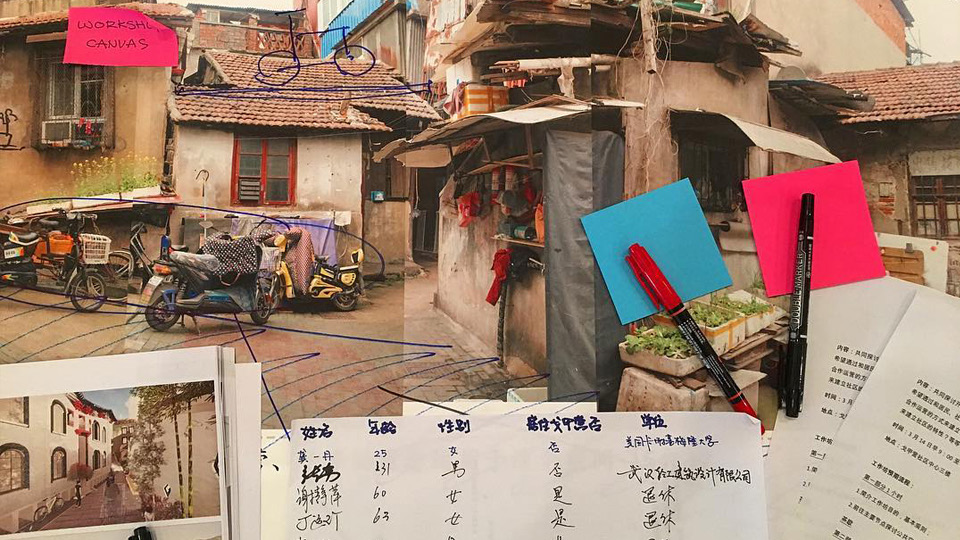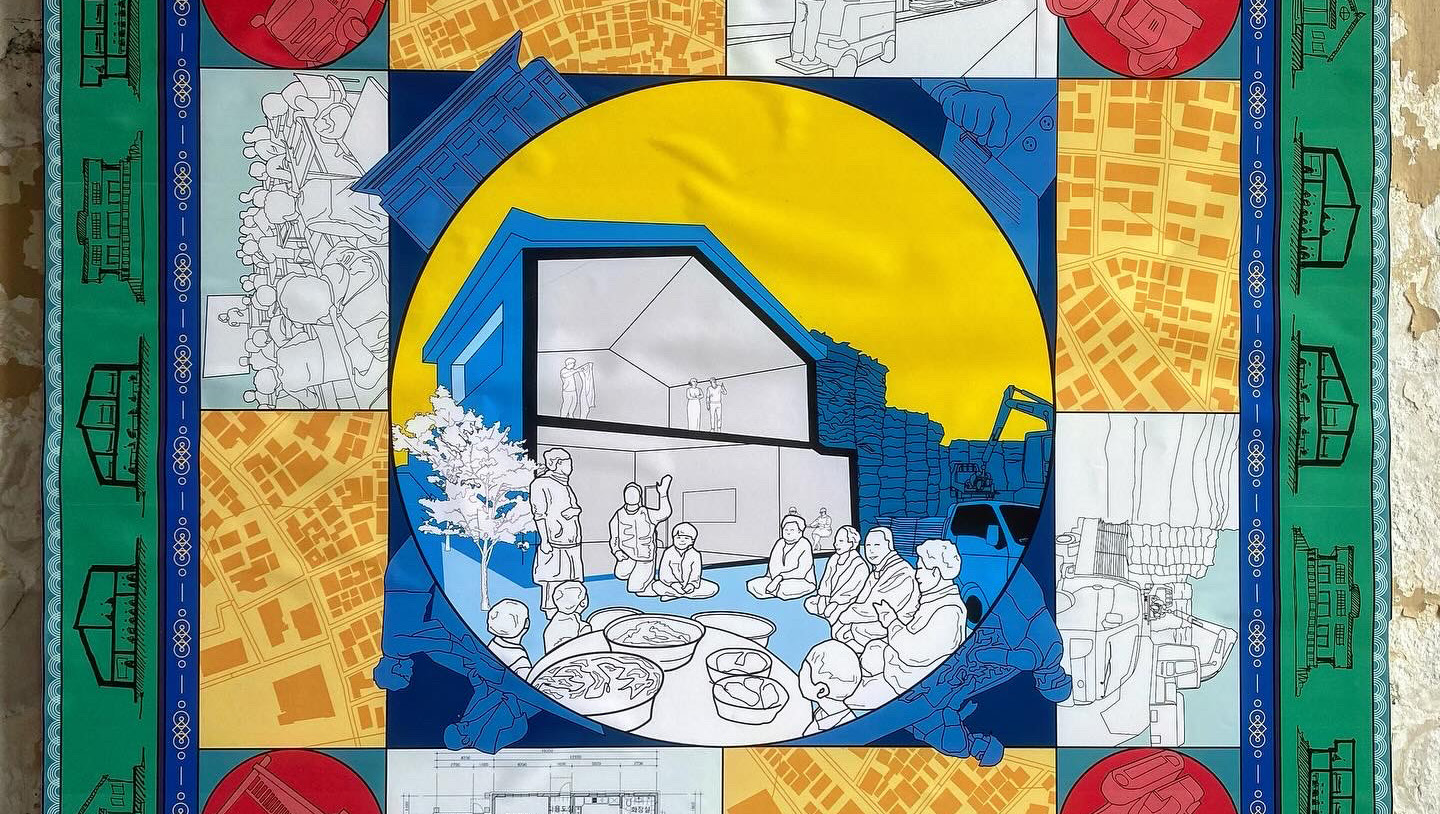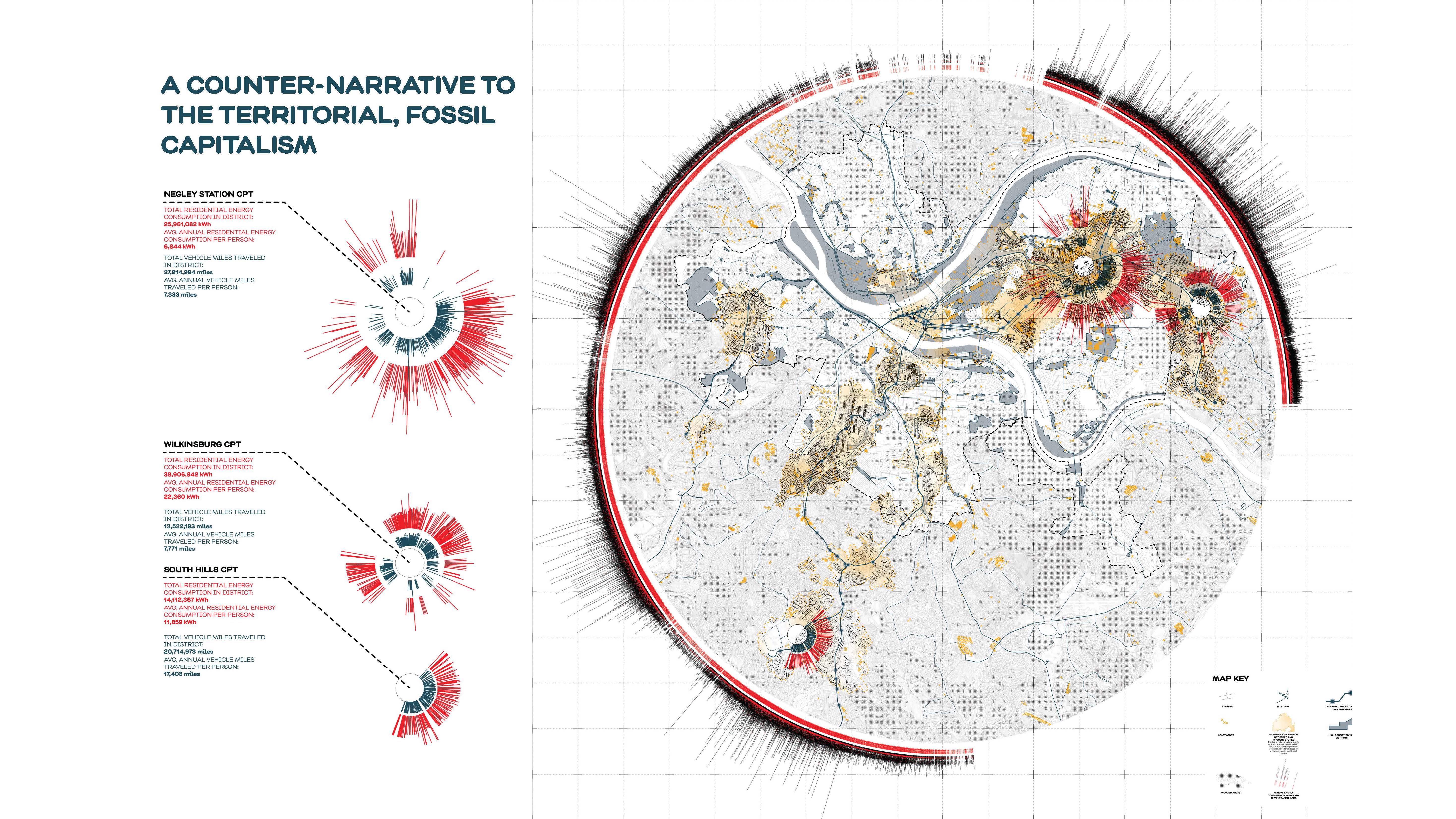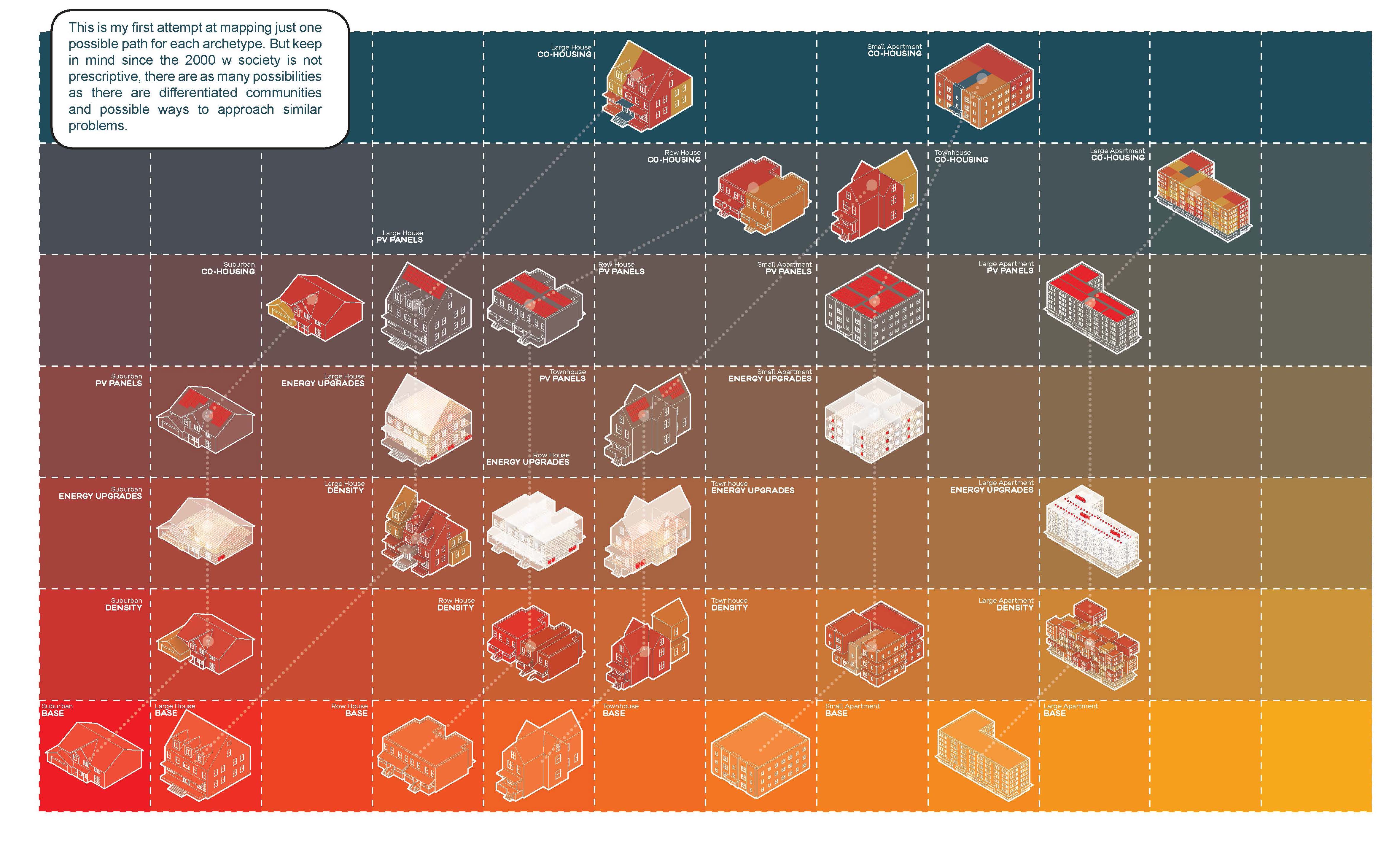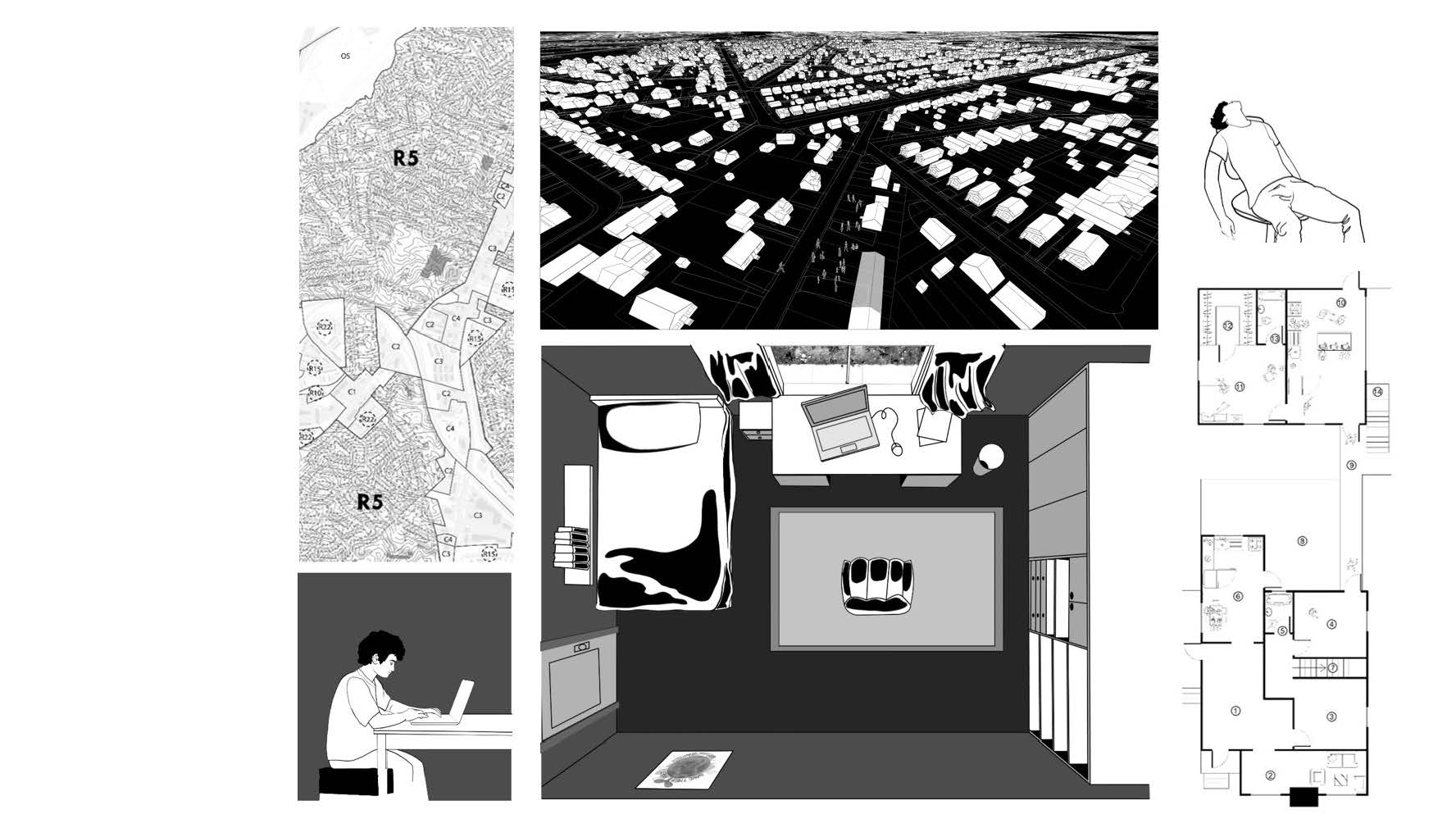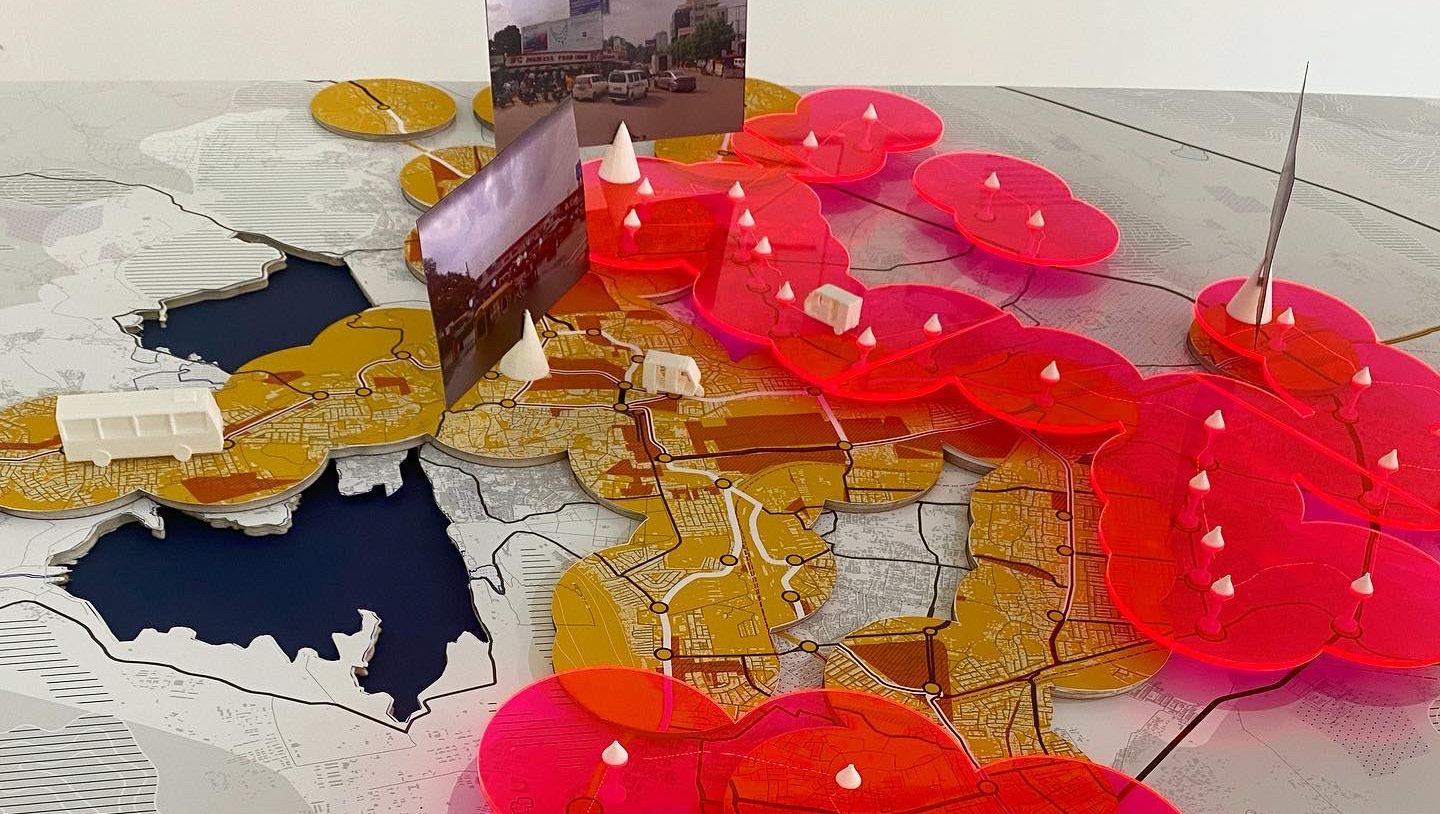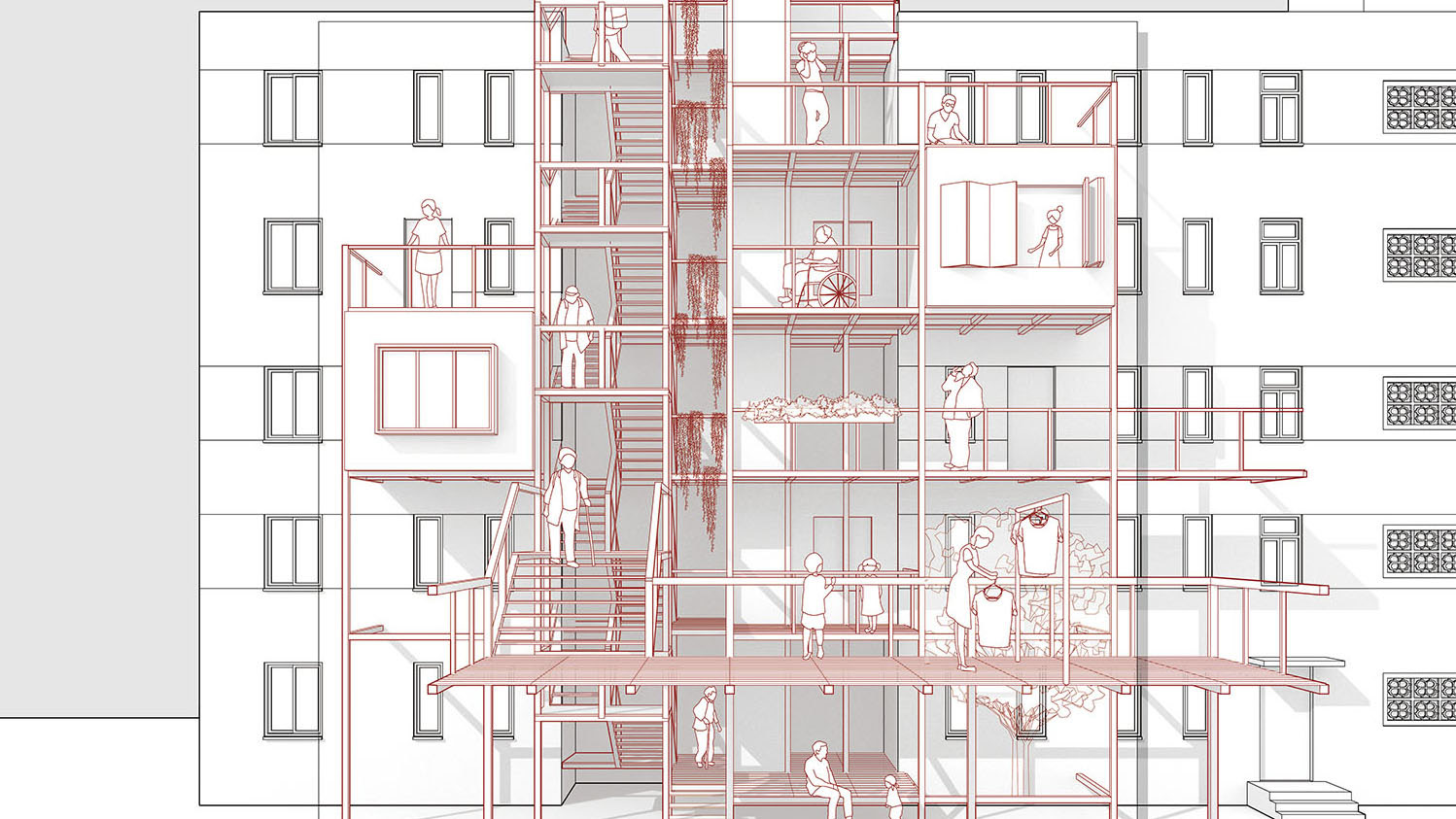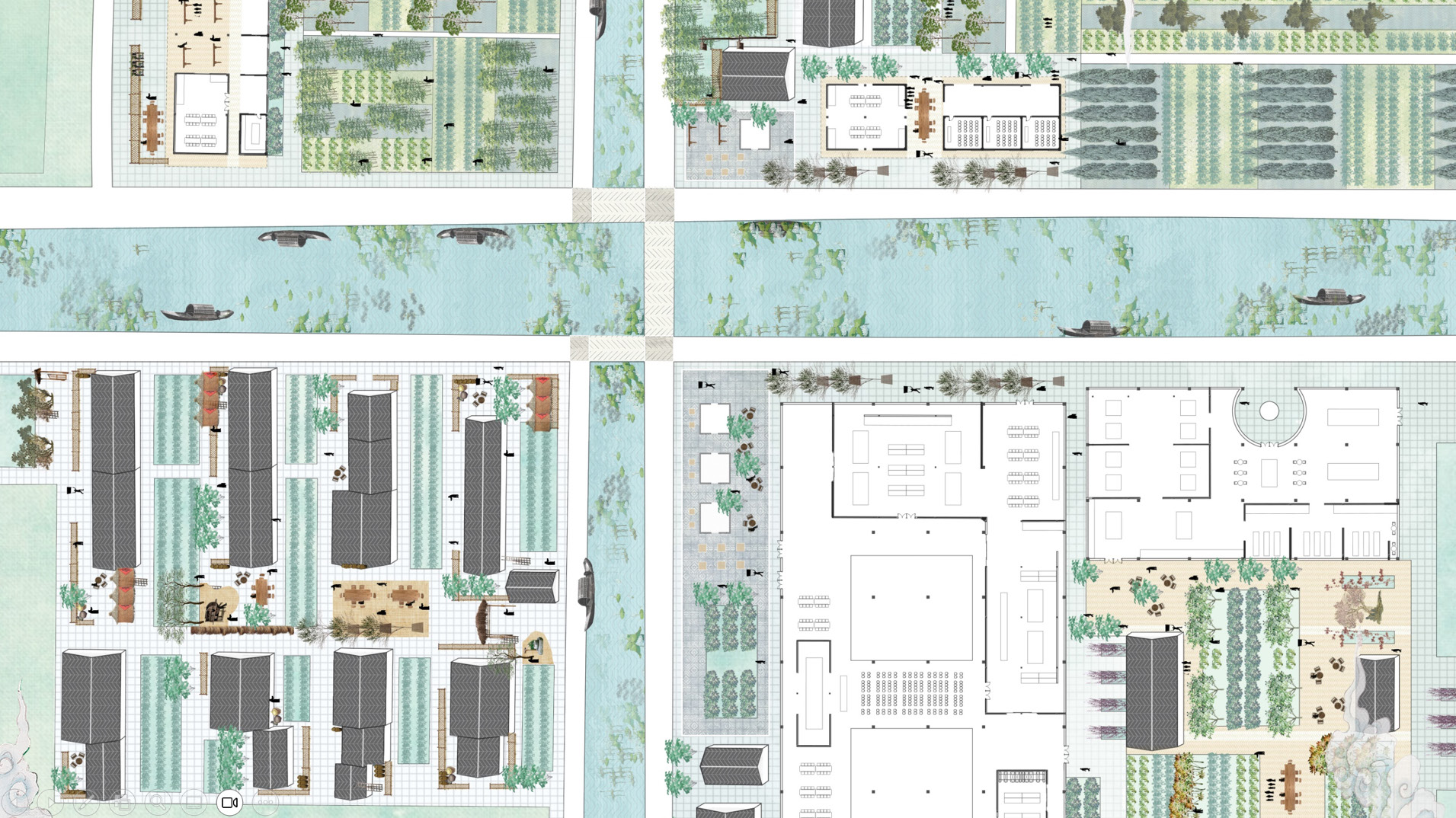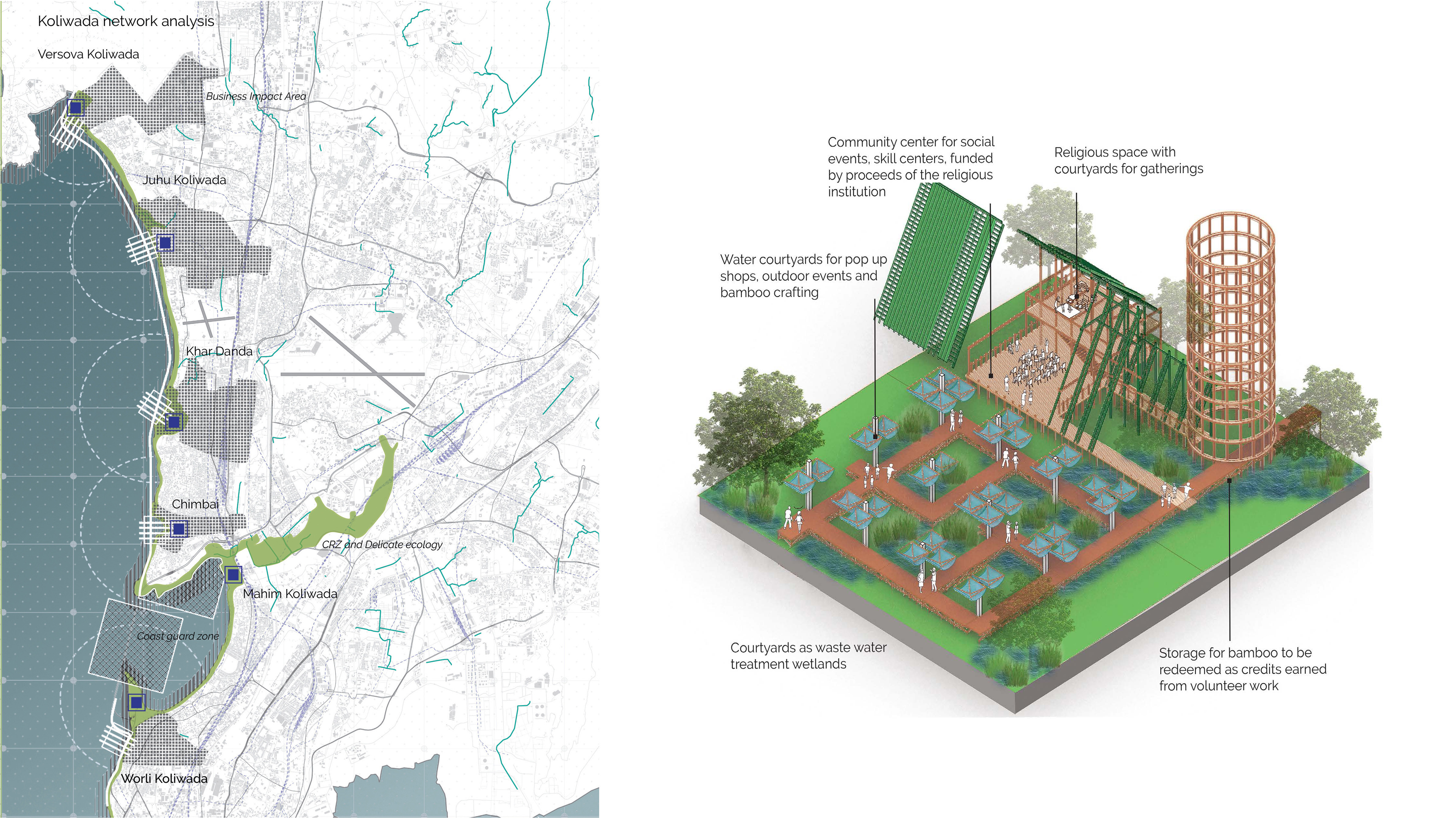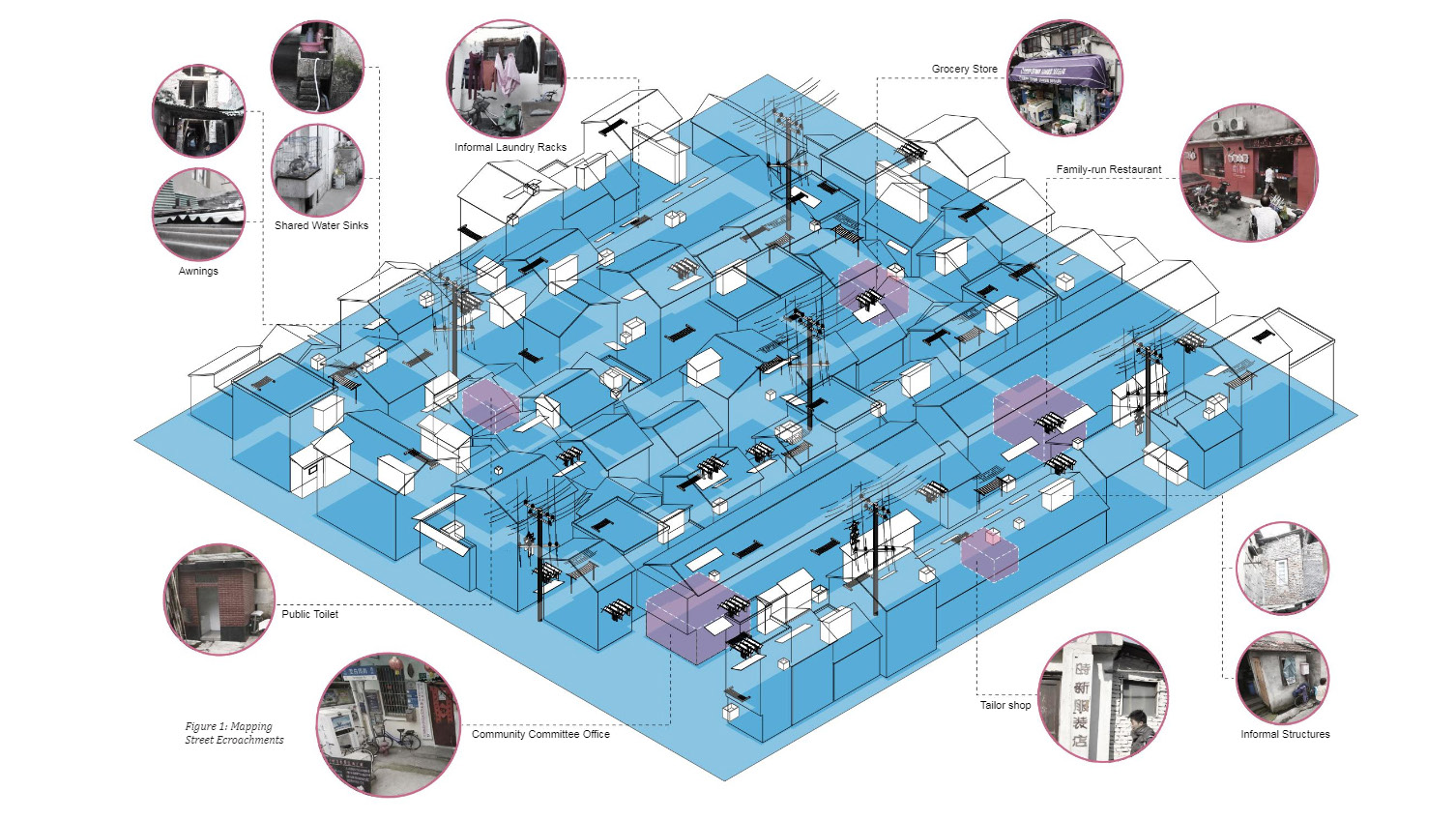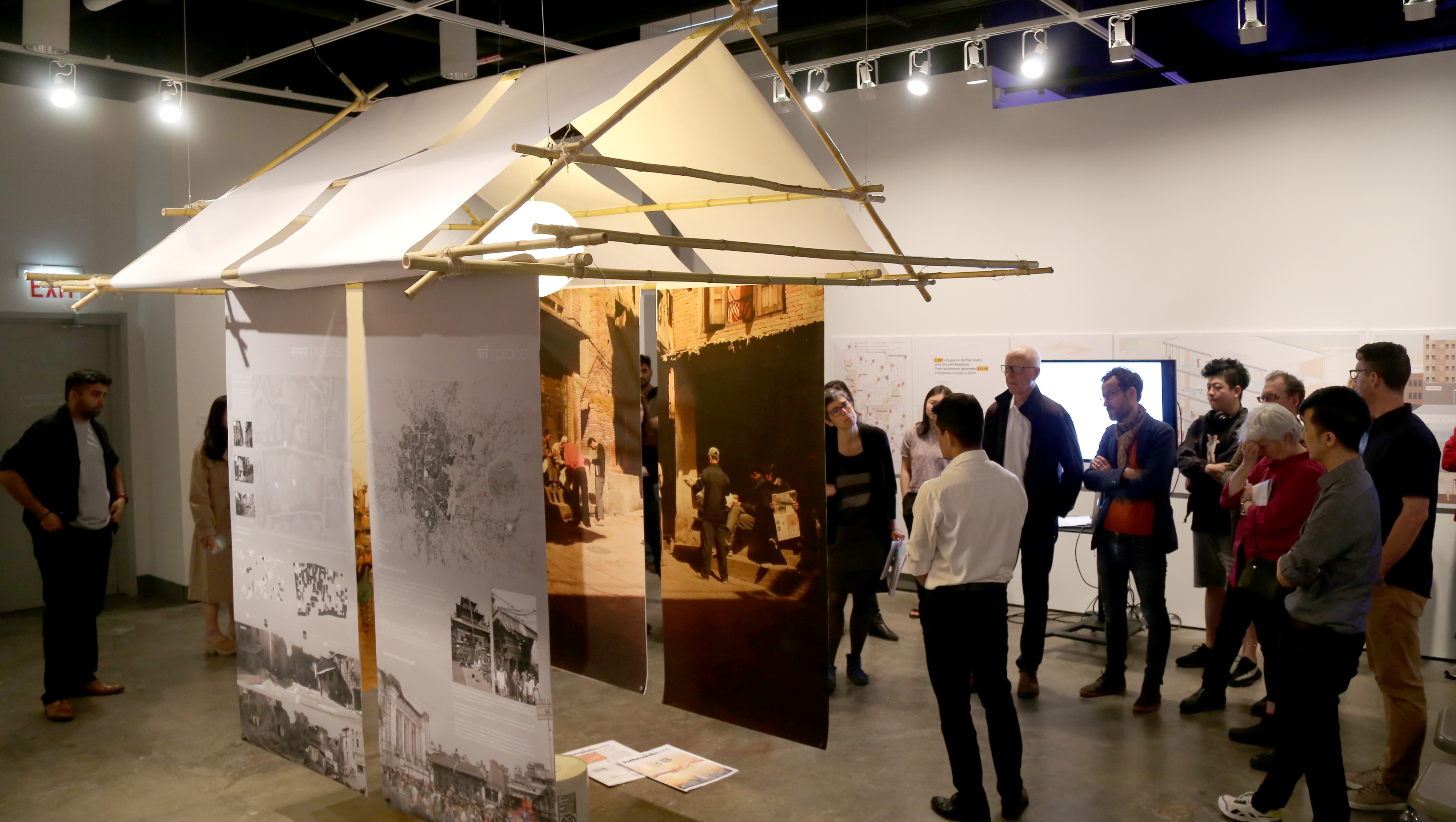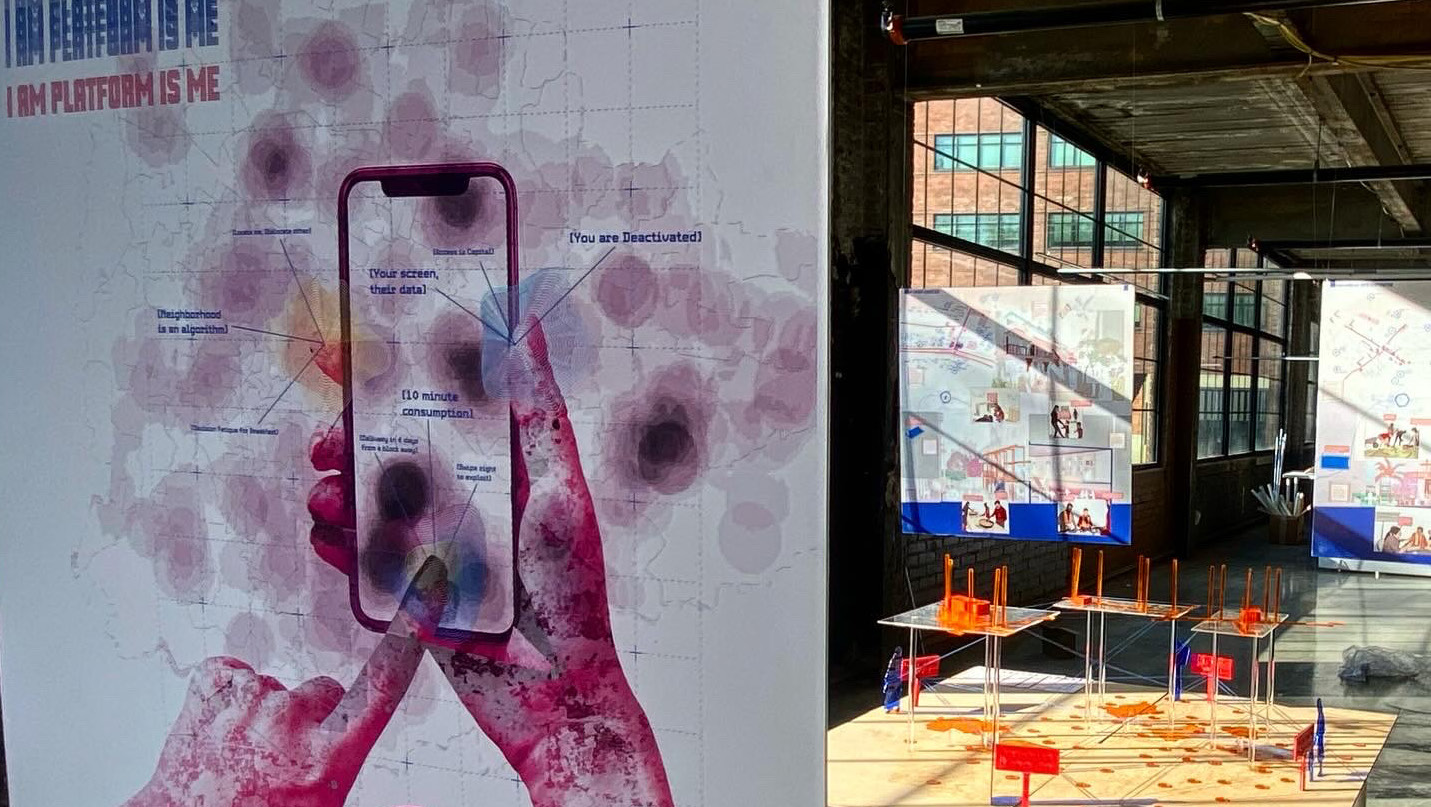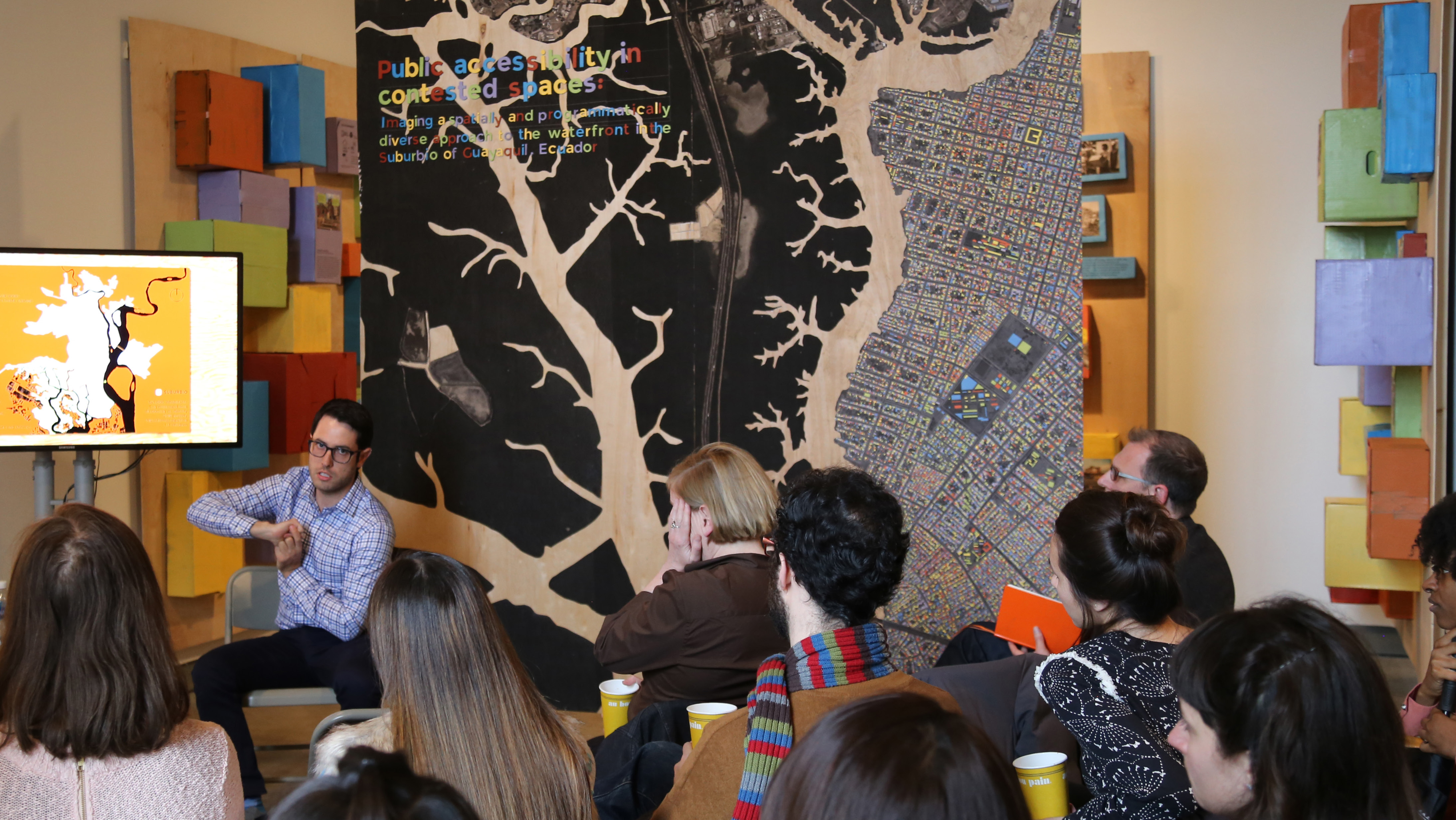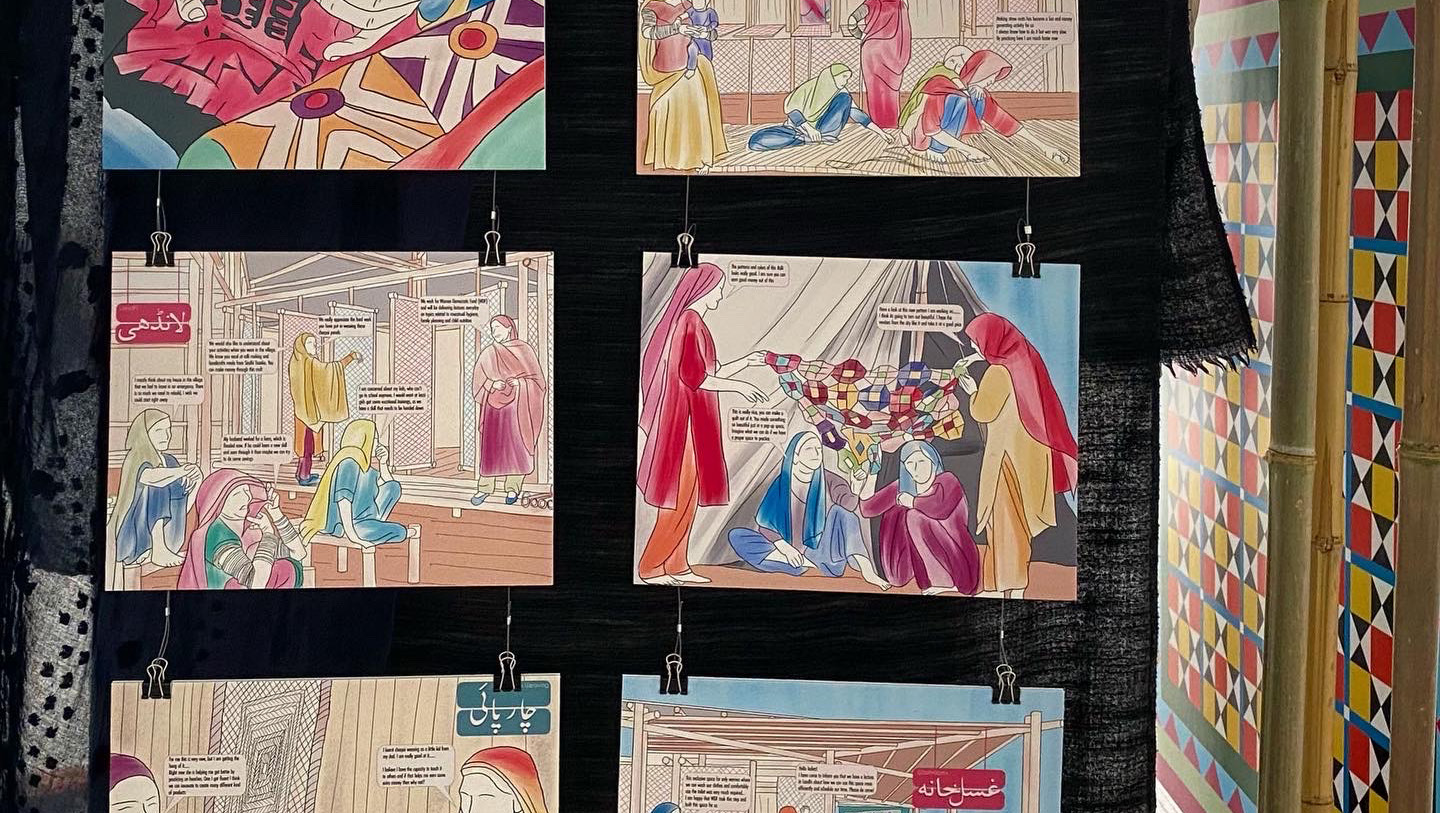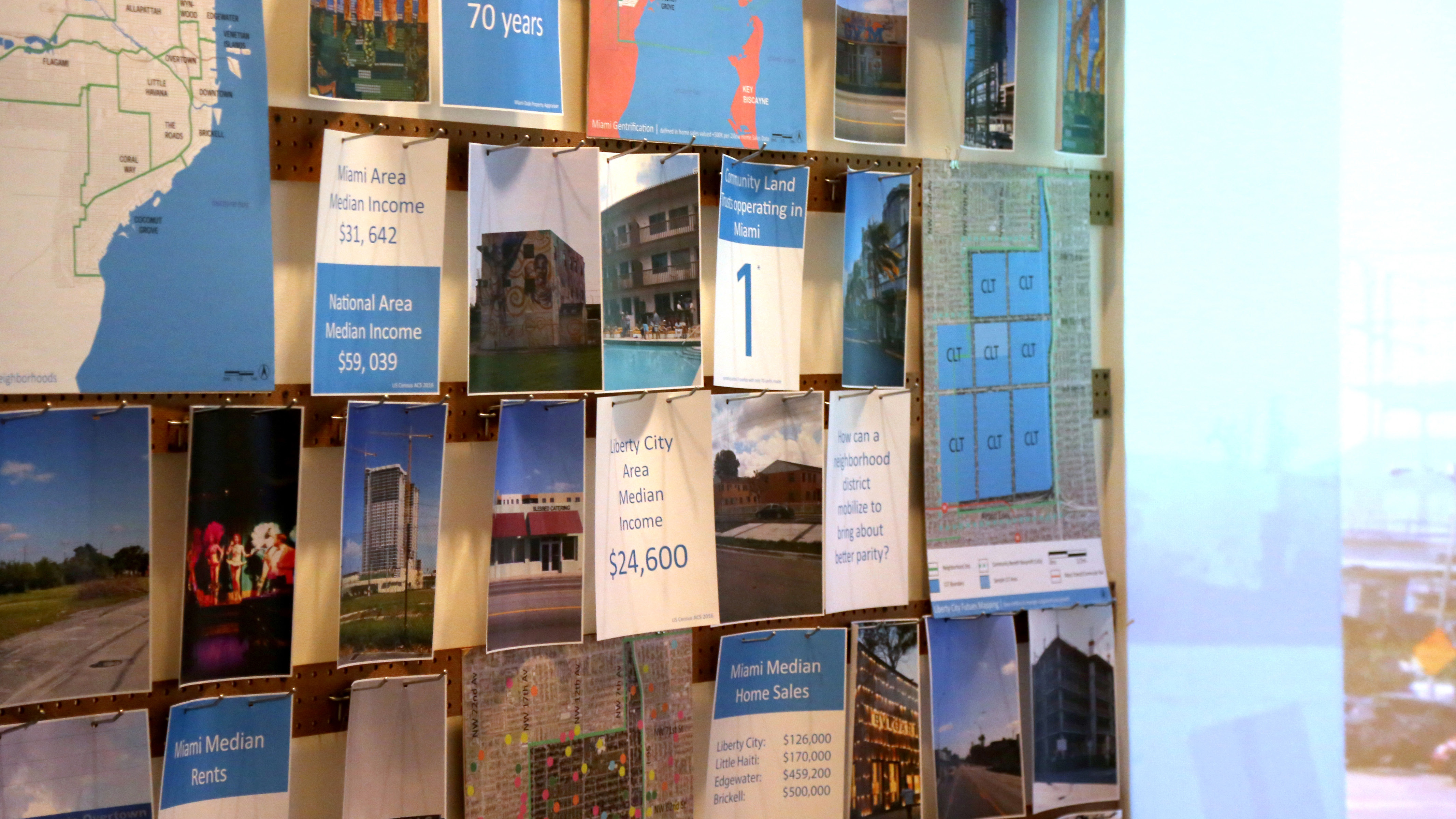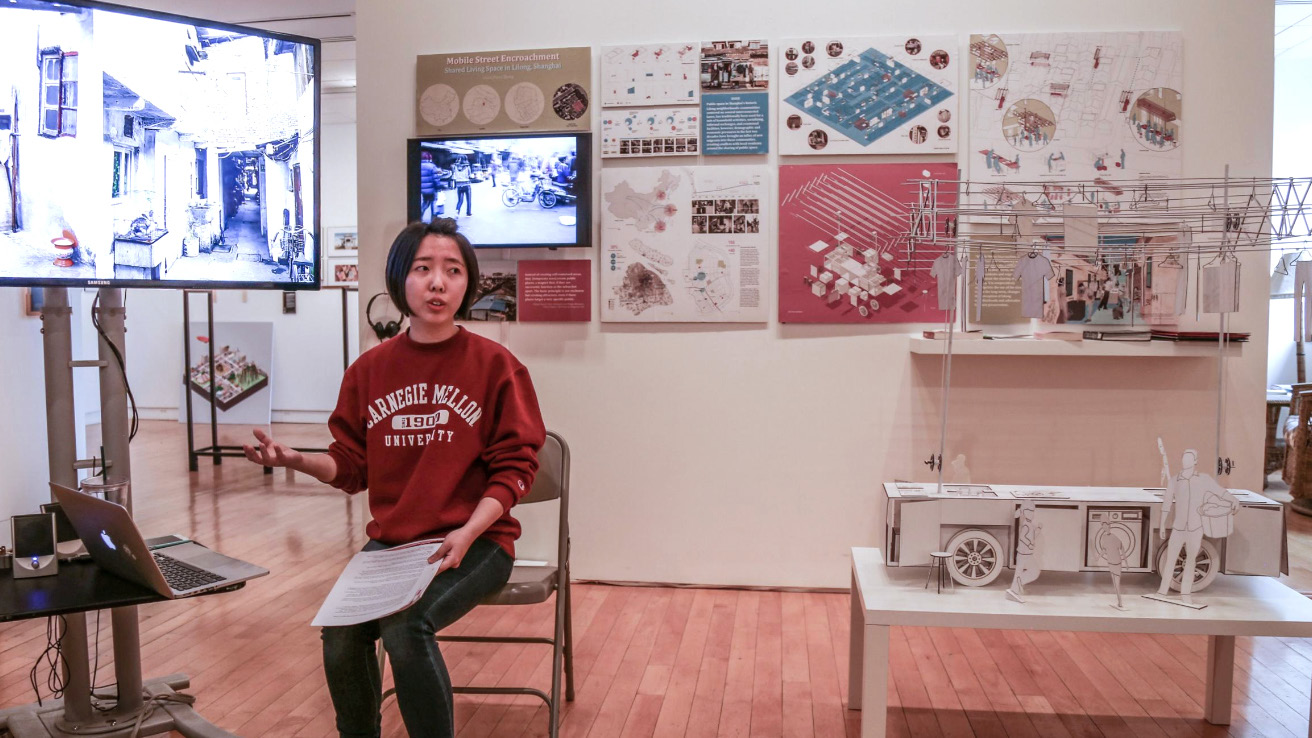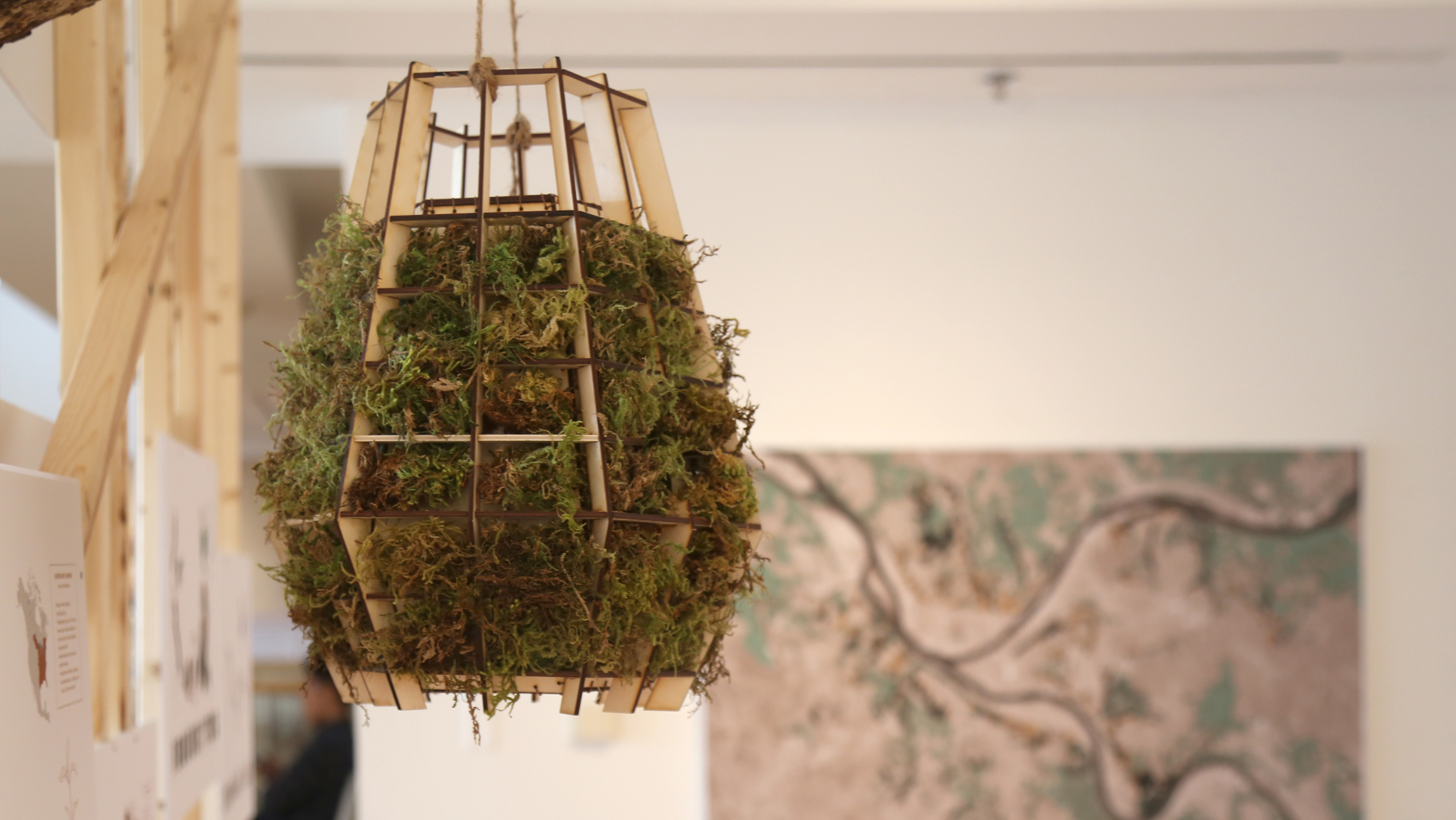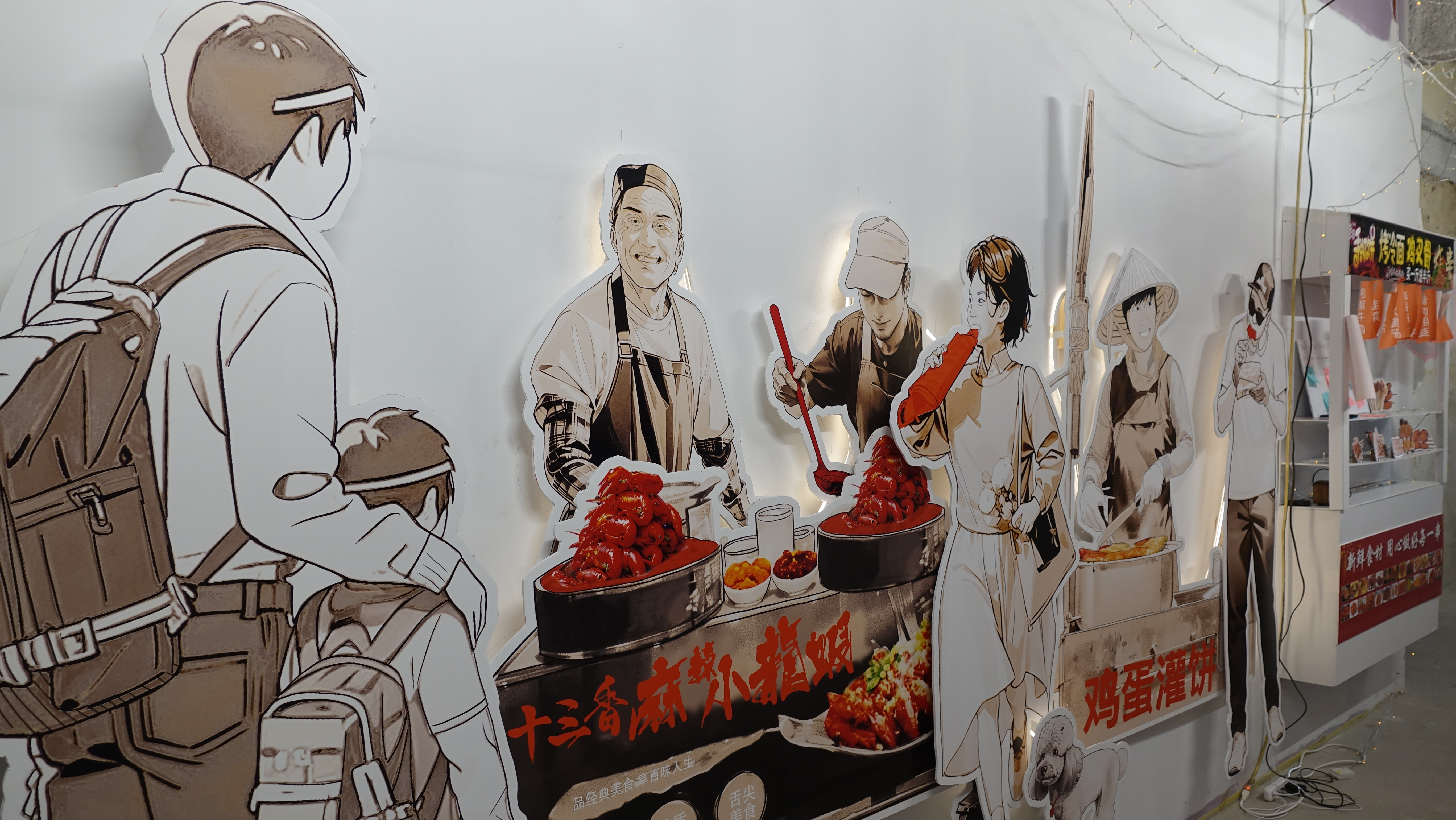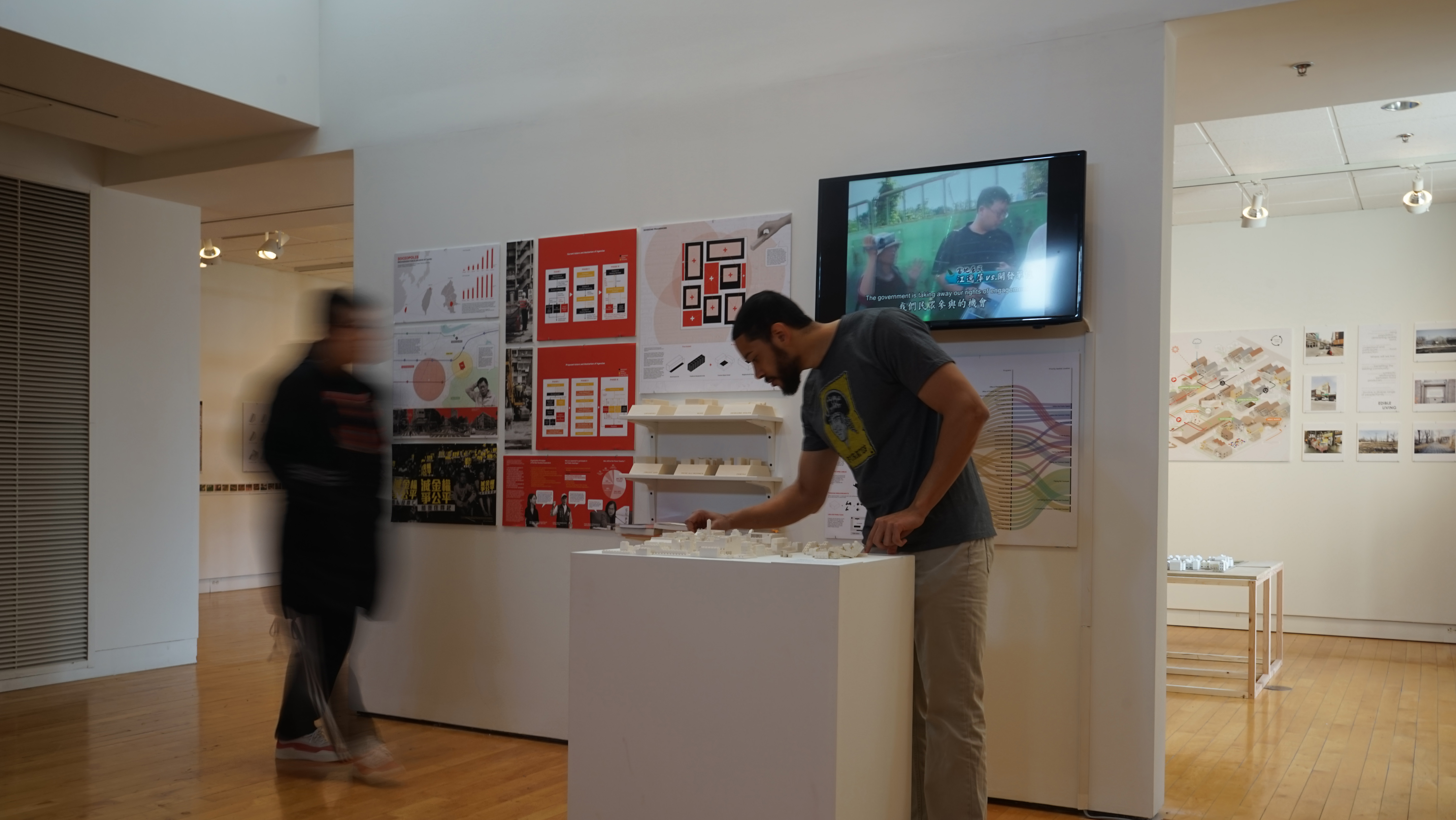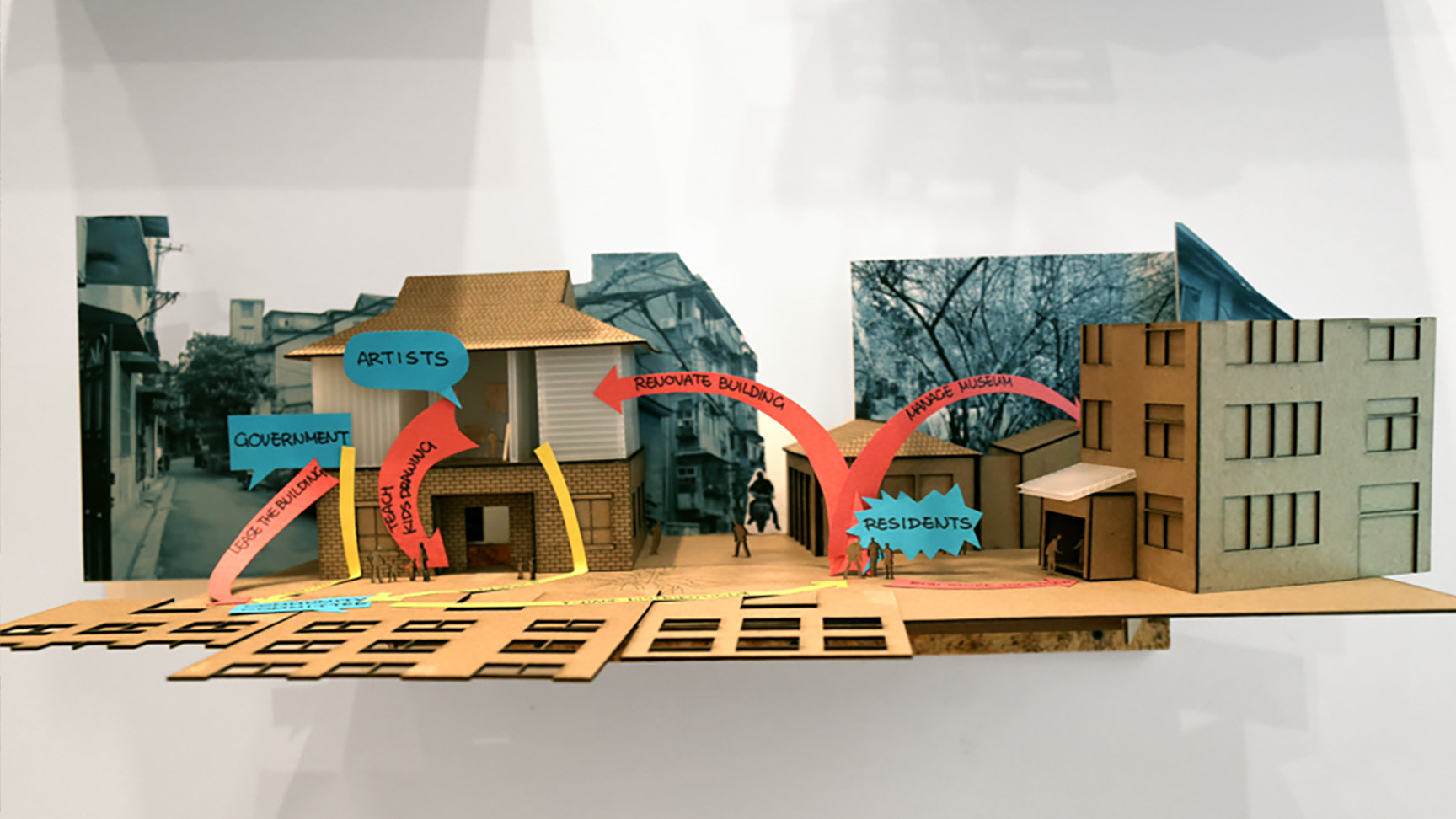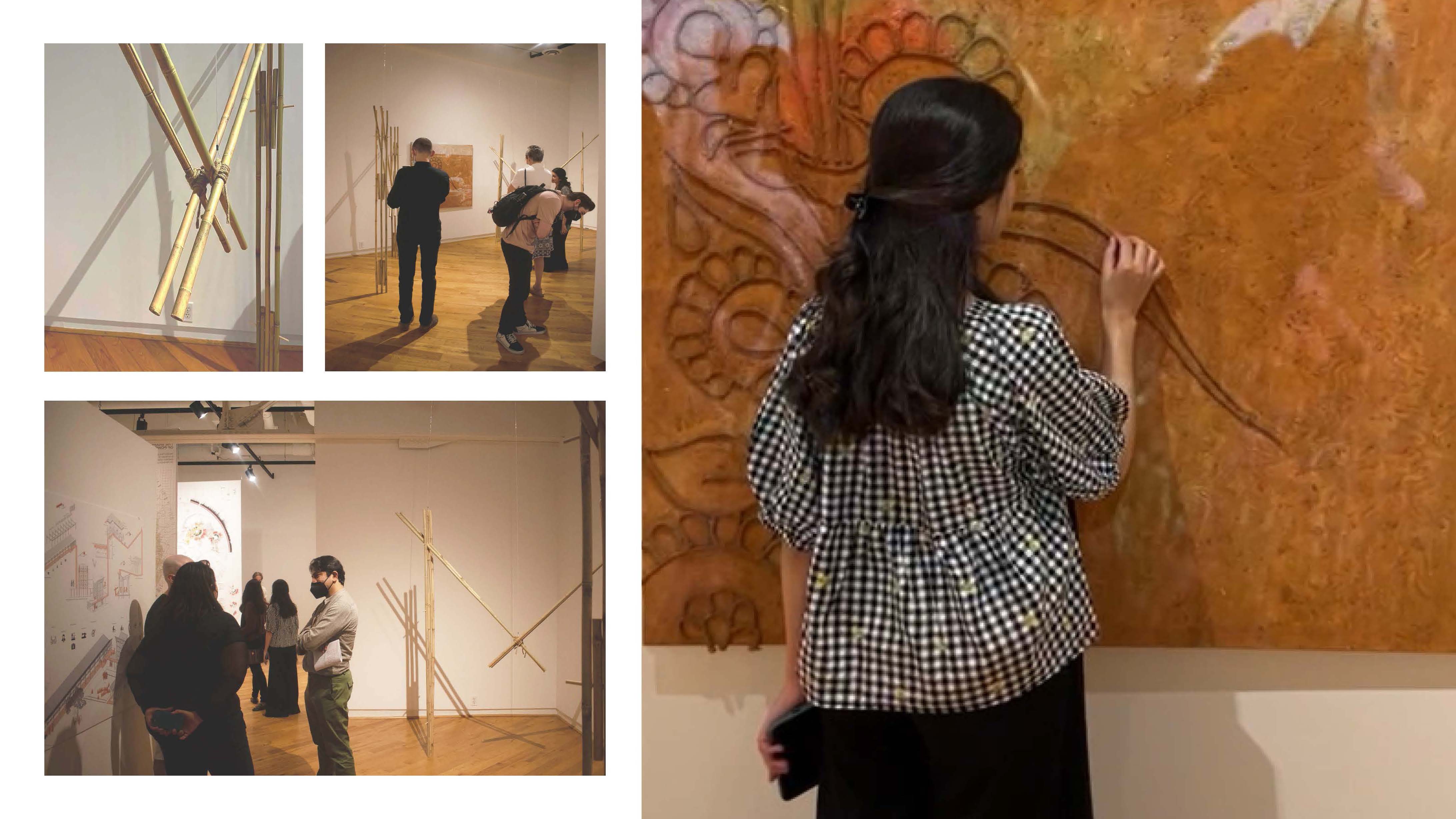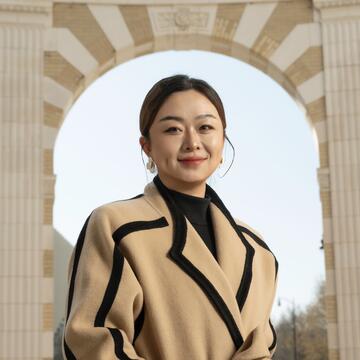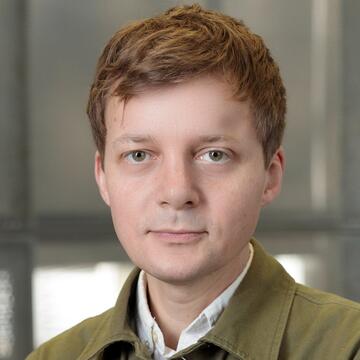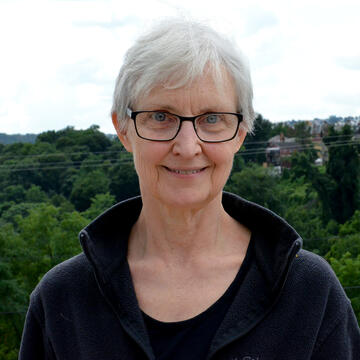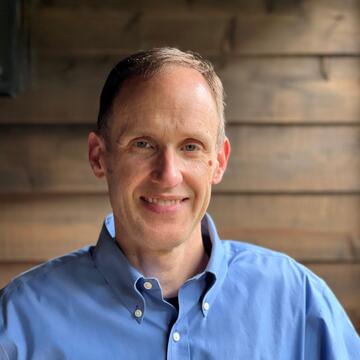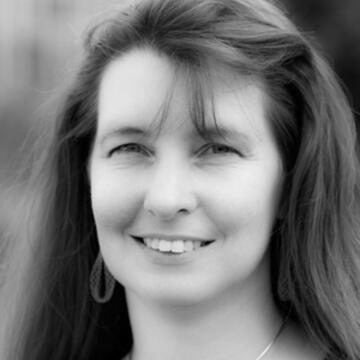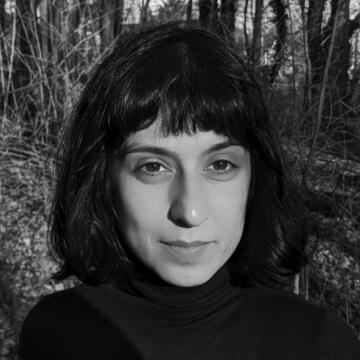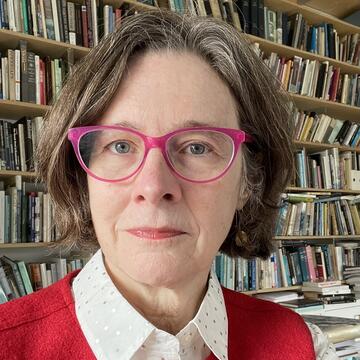The Master of Urban Design (MUD) is a post-professional, two-year program that prepares graduates for careers in urbanism using design, research and community engagement to critically address contemporary societal and environmental challenges and build more equitable and regenerative cities.
Jump To...
Associate Professor, MUD Track Chair & RCI Director
Program Overview
The Master of Urban Design (MUD) program is committed to leveraging design and research in the service of social and environmental justice. We educate future leaders to expand the agency of the urban design field in addressing pressing contemporary challenges. Our focus on community-led urban transformations encourages students to be more ambitious in envisioning socio-ecological change, while fostering humility in their approach to achieving it. Through critical reflection on contemporary urban conditions, students are introduced to a situated spatial practice that is historically informed, theoretically sharp and politically engaged. They work in transdisciplinary teams at the intersection of the arts, humanities and technology, collaborating across departments at Carnegie Mellon. Students integrate new tools and techniques for representing, understanding and designing cities.
Carnegie Mellon’s MUD program is known for several distinctive features:
- A legacy of participatory urban design: Since 1964, the School of Architecture has been a pioneer of the Urban Laboratory concept, in which students and faculty work directly in the field, engaging with communities on neighborhood revitalization projects. Students learn to balance top-down planning with the self-organizing behavior of cities, centering the needs and visions of diverse communities in urban transformations.
- Location in a transformed post-industrial city: Pittsburgh, a quintessential example of a post-industrial city, has transformed itself since 1985 from a declining industrial economy to a vibrant, diverse economy built on technology and education. Here, students study and contribute to building urban resilience through circularity and decarbonization.
- Active participation in Carnegie Mellon's technological ethos: The MUD program benefits from Carnegie Mellon’s unique research culture, redefining socially engaged design practice in the 21st century. Students engage with Design Ethics at the intersections of social equity, climate change and technology.
Student Experience
Program Details
Residency Requirement
The MUD is a two-year program with a minimum residency of four (4) academic semesters at full-time status (36 units). Students take required and elective courses in the School of Architecture and elective courses in other graduate programs at the six other colleges within the university.
The MUD program has been assigned CIP (Classification of Instructional Programs) codes by the Department of Education that are STEM-eligible. This means that in addition to one year of Optional Practical Training (OPT), a student on an F1 visa may apply for a 24-month OPT STEM Extension following graduation. For more information, please refer to the Master’s Student Handbook on the Student Resources page.
Graduation Requirements
In addition to the standard requirements for all graduate students in the School of Architecture, students in the MUD program must satisfy the following:
Students must complete a minimum of 180 units of coursework for graduation.
Each semester requires a minimum of 36 units to achieve full time status; however, the typical semester course load is 45 units.
Core course substitutions are allowed only with the consent of the Track Chair.
Student Work
Curriculum
The studio-based curriculum allows students to explore design strategies in a variety of scales and settings, from the post-industrial city to the dense metropolis, from sprawling suburbia to informal settlements.
Program Structure
In the first year, the MUD studios provide a foundation in place-making and integrated urban systems design, using Pittsburgh as a learning environment and collaborating with local communities. In the second year, the fall and spring studios engage in a research-based design project exploring the negotiation of top-down design and bottom-up transformations of cities. Most recently, the research of the second year Commoning the City studio has been featured at the 2024 International Architecture Biennial Rotterdam and the Tbilisi Architecture Biennial. The collective research on spaces and practices of commoning provides a steppingstone for developing individual thesis proposals that are pursued in the last semester. Previous studios have travelled nationally or internationally for field work.
In the summer between Year One and Year Two, students are encouraged to secure an internship at an architecture, urban design or planning firm, or at a public agency or non-profit organization. Summer internships are valuable for students to utilize newly acquired skills and knowledge in a professional setting. However, an internship is not required.
Our graduates go on to become leaders in urban design and architecture firms, work for community organizations and municipalities, or pursue a PhD and research careers.
Educational & Professional Qualifications
Entering students must possess at minimum a bachelor's degree in a studio-based program in architecture, landscape architecture or urban/city planning (B.Arch, B.L.Arch, BA/BS Architecture, BA/BS Landscape Architecture or BA/BS Planning). Design portfolios are required for the application for admission.
Admitted candidates may apply for advanced standing based on previous coursework or professional experience, thereby eliminating the first semester and allowing them to begin studies in the spring term. Advanced standing is also available to qualified CMU students in the B.Arch program through the Accelerated Master's Program (AMP).
Thesis Show
Program Faculty
Comprised of experienced practicing professionals, researchers and educators, the MUD program faculty spans the fields of urban design, architecture, planning, public policy and digital media. Many MUD faculty work in CMU’s international urban design research center, the Remaking Cities Institute (RCI), which conducts interdisciplinary research in place-making, urban systems, citizen engagement and sustainable development. Students may engage in assistantships in the RCI through faculty-led research projects.
Please feel free to contact Track Chair Stefan Gruber with questions about the MUD program.
PhD-BPD Candidate & Graduate Instructor
Special Faculty in Architectural Design
Adjunct Faculty
Associate Teaching Professor & Lead of CFA Working Group on AI
Professor of Practice
Associate Professor, MUD Track Chair & RCI Director
Adjunct Faculty
Special Faculty in Architectural Design
Professor of Practice
University Professor
Professor of Practice
Affiliated Faculty & IDeATe Associate Dean
Associate Professor & PhD-Arch Track Chair
Associate Professor
Admissions Resources
Are you a current student looking for resources? Handbooks, procedures and other information can be found on the Student Resources page.
